
INSIDE Spring 2024 Man Behind the Show p. 04 | Building BRIDGES p. 17 | Package Deal p. 40 | Driven to Succeed p. 46
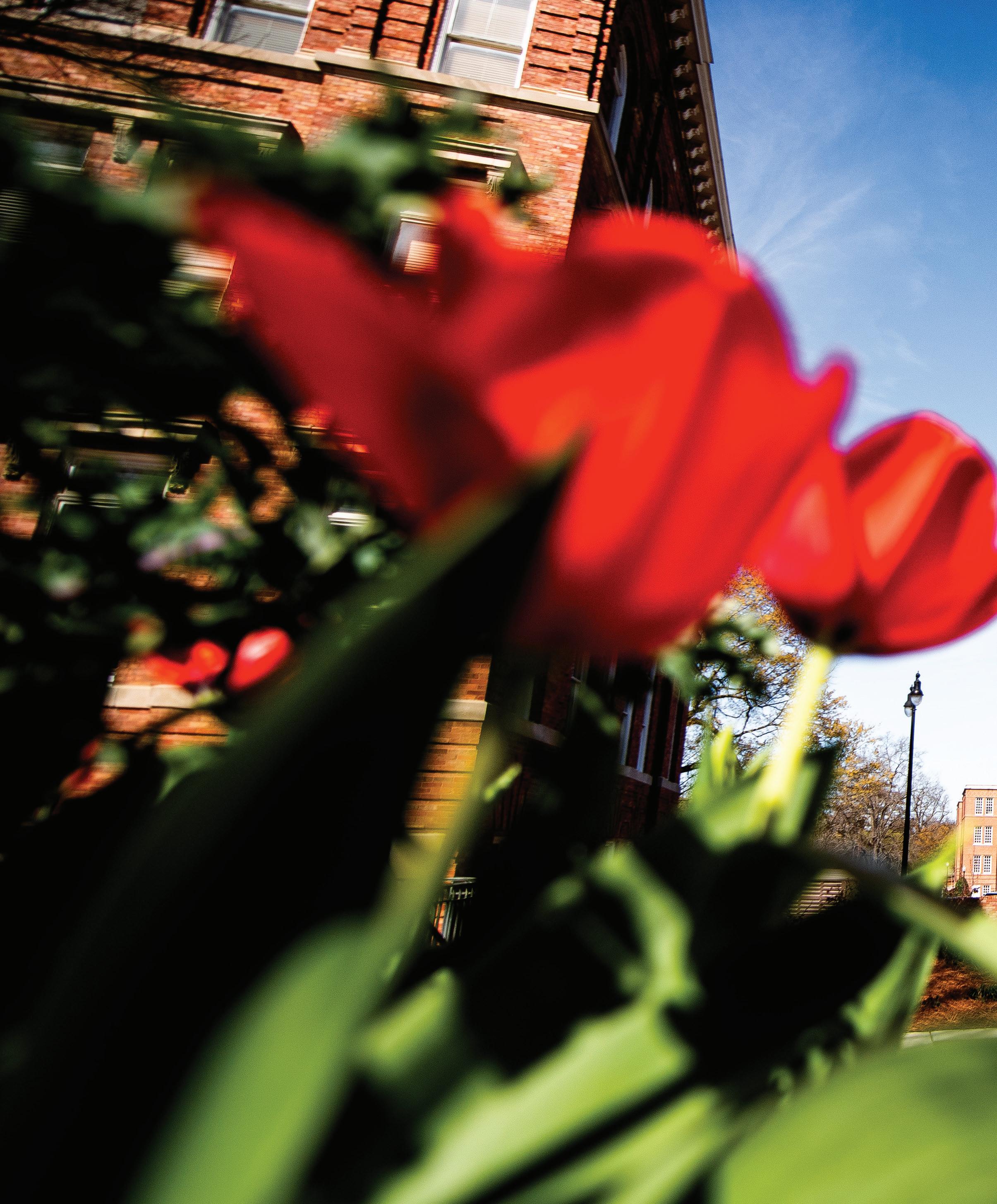
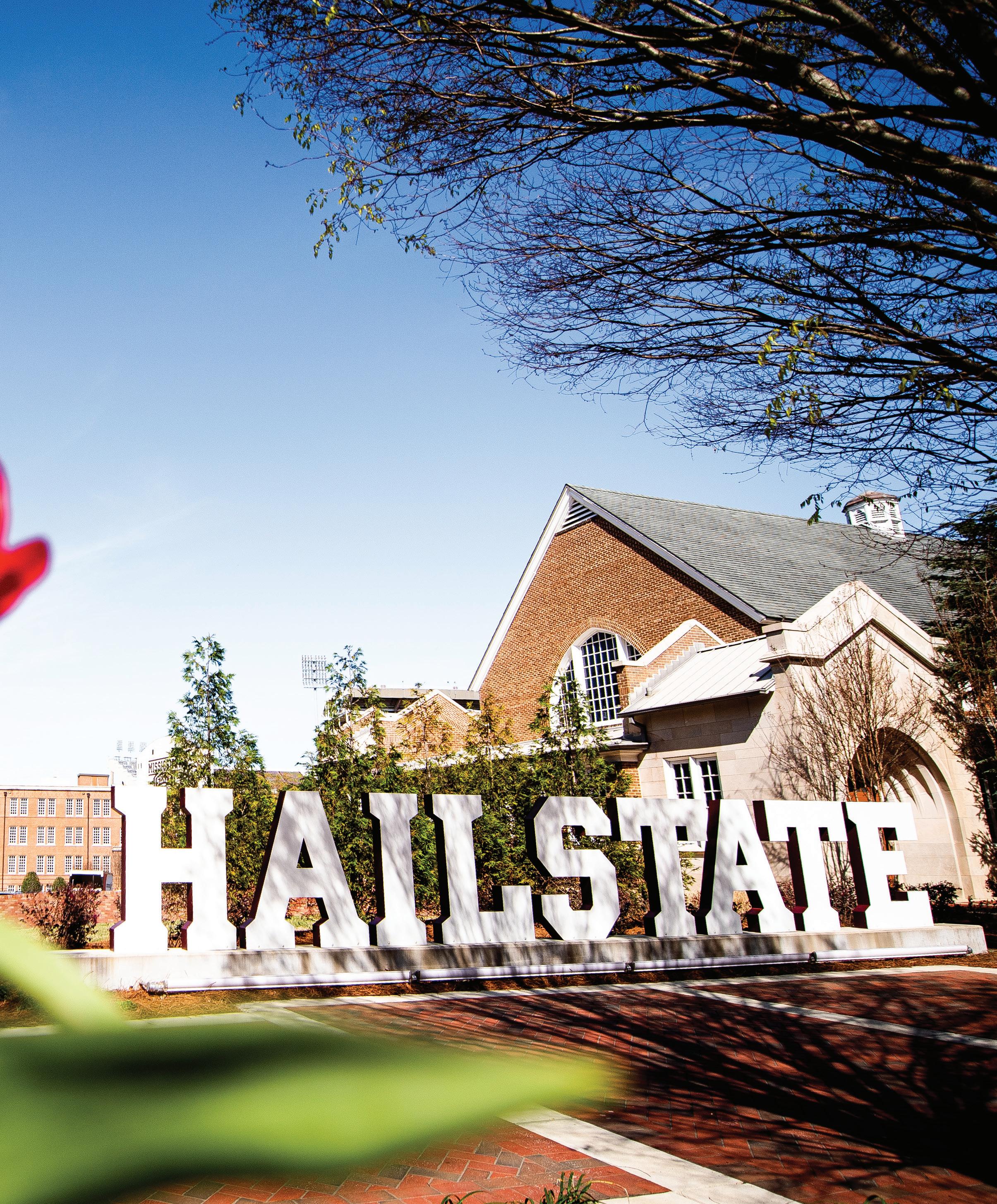
TIPTOE THROUGH THE TULIPS
Spring 2024 saw Mississippi State’s Starkville campus bustling with events, activities and the daily routine of the state’s premier research university. Still, despite the business of the semester, Bulldogs had ample opportunity to stop and smell the flowers thanks to the efforts of the university’s dedicated campus landscape crews. More scenes of MSU in bloom are available online. Photos by Grace Cockrell

Mississippi State’s new College of Professional and Continuing Studies has positioned the university to better serve nontraditional students like Molly Chunn. With an associate degree from Northeast Mississippi Community College, she chose MSU for her bachelor’s because of the flexibility of online learning; the ease of applying her associate credit hours and skills to a bachelor’s degree; and the ability to tailor her course selection to what would best benefit her in her career. Photo
What happens in Starkville, doesn't stay in Starkville. It changes the world.
33 Always Learning
New College of Professional and Continuing Studies positions MSU for the future of higher education.
of CONTENTS Mississippi State University is an equal opportunity institution. Discrimination in university employment, programs or activities based on race, color, ethnicity, sex, pregnancy, religion, national origin, disability, age, sexual orientation, gender identity, genetic information, status as a U.S. veteran, or any other status protected by applicable law is prohibited. Questions about equal opportunity programs or compliance should be directed to the Office of Civil Rights Compliance, 231 Famous Maroon Band Street, P.O. 6044, Mississippi State, MS 39762, (662) 325-5839.
Table
FEATURES 26 Welcome to ResearchVegas
by Grace Cockrell
33

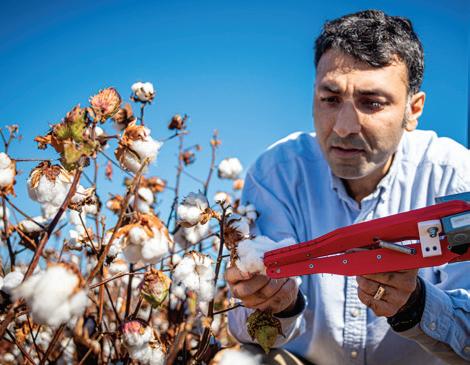
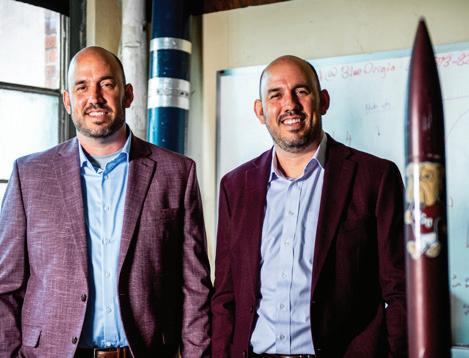
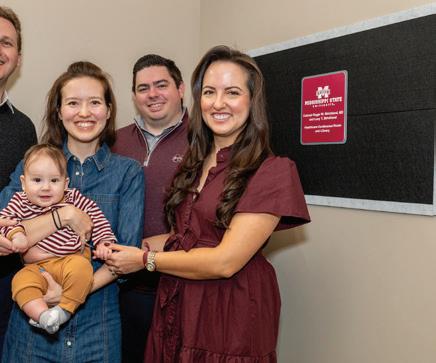

With more than $319.7 million in research expenditures as reported by the latest National Science Foundation report, Mississippi State University is Mississippi’s bustling hub of research and development activity, helping drive the state’s economy and developing solutions for the challenges facing our world. Viva ResearchVegas, Bulldogs. What happens in Starkville changes the world.
SPRING 2024 | VOL. 101 | NO. 1
PRESIDENT
Mark E. Keenum, ’83, ’84, ’88
VICE PRESIDENT FOR DEVELOPMENT AND ALUMNI
John P. Rush, ’94, ’02
ALUMNI ASSOCIATION EXECUTIVE DIRECTOR
Jeff Davis
CHIEF COMMUNICATIONS OFFICER
Sid Salter, ’88
EDITORS
Susan Lassetter, ’07
Harriet Laird
WRITERS
James Carskadon, ’12
Joel Coleman, ’07, ’09
Aspen Harris, ’27
Susan Lassetter, ’07
Addie Mayfield
Carl Smith, ’10
DESIGNER
Heather Rowe
PHOTOGRAPHERS
Grace Cockrell
Jonah Holland
Beth Wynn
EDITORIAL OFFICE
P.O. Box 5325
Mississippi State, MS 39762
662.325.0630
slassetter@opa.msstate.edu
ADVERTISING
Leanna Smith
662.325.3360
lsmith@alumni.msstate.edu
Mississippi State University’s Alumnus magazine is published three times a year by the Office of Public Affairs and the Mississippi State University Alumni Association. Send address changes to Alumni Director, P.O. Box AA, Mississippi State, MS 39762-5526. Call 662.325.7000, or email cturner@advservices.msstate.edu.
CONNECT TWITTER.COM/MSSTATE FACEBOOK.COM/MSSTATE INSTAGRAM.COM/MSSTATE
COVER 40
10 DEPARTMENTS 04 Campus News 17 Discoveries 24 State Snapshot 40 Our People 50 Alumni News 66 Giving Back 72 Class Notes 76 Forever Maroon 78 Back Story 46 44
THE MAN BEHIND THE SHOW
New MSU football coach much more than an offensive guru
By Joel Coleman, Photos by Athletics
On a frigid, lateNovember evening, crowds gathered at Mississippi State’s Leo Seal Jr. Football Complex while, a stone’s throw away, Santa was signaling the end of Starkville’s Christmas parade. The timing was fitting as the Bulldog family was about to receive its first gift of the holiday season–the introduction of new head football coach Jeff Lebby.
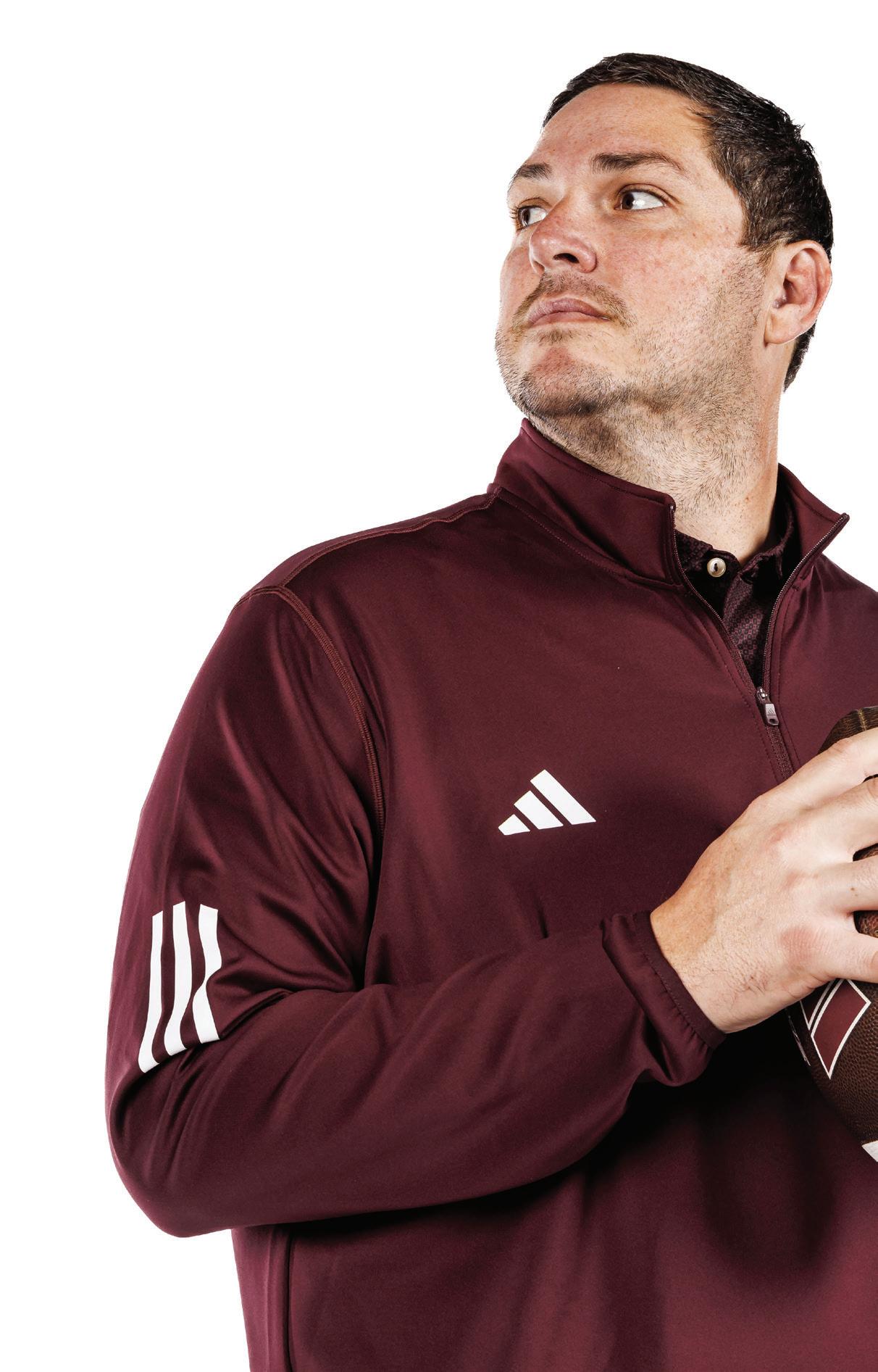
4 SPRING 2024 Campus NEWS

with 13 seasons at the helm. Allyn McKeen, 1939-48, and
"I want our guys to leave Mississippi State equipped and ready to go do life. I want our guys to leave here and say, 'Man, I had an incredible college experience.' I want our guys to be able to chase championships and get a great degree." ~ Coach Lebby
“He’s our guy,” MSU athletics director Zac Selmon proclaimed as he addressed the Bulldog faithful who braved the elements to welcome Lebby.
Lebby soon followed by declaring confidently that Bulldog football is heading in an incredibly exciting direction.
“It will be a show,” Lebby explained. “It’ll be a show that a lot of people are going to want to see, and it’ll be a show that a lot of people are going to want to be a part of.”
It’ll almost certainly be a show once Lebby gets his team on the field this fall. If the best indicator of the future is the past, then everything in Lebby’s career suggests the Dawgs are about to put up points like never before.
The offensive mastermind has been the architect behind some of college football’s most feared offenses for nearly a decade. Big plays, touchdowns and excitement are what Lebby has long been known for.
“When you think of college offense, you think of Lebby,” State’s wide receivers coach and MSU alumnus Chad Bumphis said.
Yet, for all the yardage State will rack up with Lebby at the helm and all the points the Dawgs will score, that’s not why folks believe Lebby is destined for success in Maroon and White.
Sure, college football experts will point to figures like how every one of Lebby’s offenses the last five seasons has ranked inside the top 25 in terms of plays that have gone for 20 or more yards. Or how, since 2019, no offensive coordinator in
the country has had more combined first downs and touchdowns than Lebby’s squads. However, those closest to Lebby say he’ll soon be leading MSU to great heights–not merely because of strategy and the statistics his schemes produce–but because of who he is.
Just ask State quarterbacks coach Matt Holecek, who has worked alongside Lebby since 2020.
“He’s a brilliant offensive mind, but more than that he’s a great person,” Holecek said. “He loves the kids. He invests in the kids.
“That, to me, is ultimately what’s going to separate us,” he continued. “Obviously, the stats and the wins and all that will speak for themselves as far as his success in the past, but who he is and how he sets the culture of the program every day, that’ll be what ultimately separates us."
MSU tight ends coach Jon Cooper is another who’s had the chance to learn how Lebby operates over the years. Cooper and Lebby worked together previously at both the University of Central Florida and Oklahoma.
Cooper describes Lebby as a man who is completely consumed with caring for his guys.
“Jeff Lebby as a football coach is kind of hard to explain because he is unique,” Cooper said. “He’s a connector. He’s a people person more than anything, and that’s who he is as a coach. He’s going to love these guys, these young men, this staff and everybody around before he expects anything out of them. He’s really going to pour into these young men because that’s how he was raised.
“He was raised by a coach and saw it done the right way in so many different places,” he added. “He’s learned so many different things from so many mentors and people he’s been around his whole life that there’s no doubt that he’s going to be successful as a head coach."
Lebby’s care for things beyond the football field can already be seen inside State’s football facility. Since Lebby arrived, MSU has revamped its player development system, now known as the DAWG— Developing A Winning Gameplan—Program. It goes to show how Lebby prioritizes the person over the performer on the path towards game day glory.
“I want our guys to leave Mississippi State equipped and ready to go do life,” Lebby explained. “I want our guys to leave here and say, ‘Man, I had an incredible college experience.’
ALUMNUS.MSSTATE.EDU 5
Jackie Sherrill was the longest tenured Bulldog head football coach
Dan Mullen, 2009-17, are tied at second with nine seasons
each.
I want our guys to be able to chase championships and get a great degree.
“So, when we talk about the purpose of the program, there’s a lot of things that go before winning a championship, but winning a championship is dang sure on there,” he continued. “For our guys, it’s all about growth and connection and having a great experience while we’re on the chase to win a trophy.”
But it’s not just the players Lebby wants to find total happiness and fulfillment. He wants the same for his assistant coaches.
Co-defensive coordinator and safeties coach Matt Barnes said one of the biggest reasons he made the choice to leave Memphis and join Lebby at MSU was Lebby’s focus on family.
Lebby adores his wife and two children, and he plans to make sure his staff has as much time as possible to treasure their families as well.
“Family is a huge part of it,” Barnes said. “I know Jeff to be a wonderful family man and that was his pitch to me. He said, ‘We’re going to do this thing the right way. Our kids will be in the building, at practices and that type of thing.’
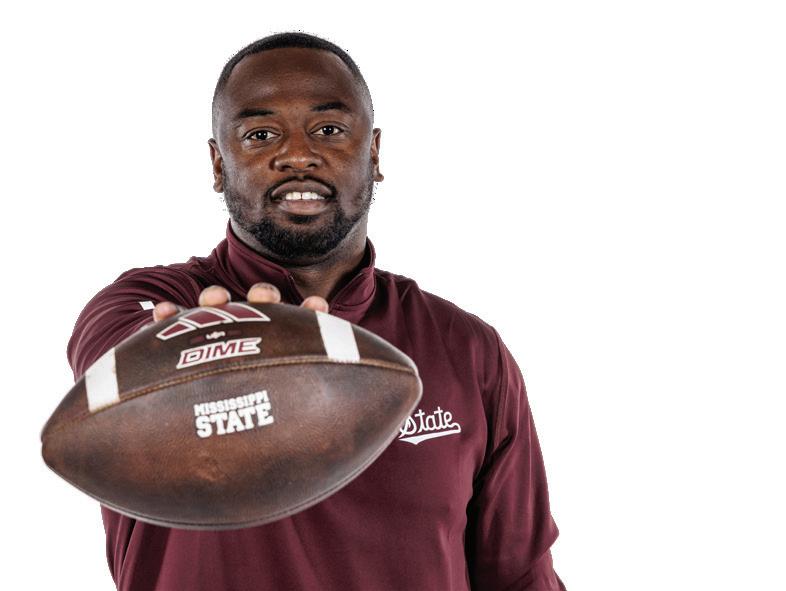
“This job is why I started coaching.” ~ Chad Bumphis
BUMPHIS RELISHING OPPORTUNITY AT ALMA MATER
By Joel Coleman
I"Coach Lebby has an elite offensive mind. He cares for and develops his players. That's a recipe for a lot of great success." ~ Zac Selmon
“A lot of people talk about having a family atmosphere, but it certainly feels that way here, already."
Put simply, there is care in the way Lebby coaches. There is substance behind all of his statistical achievements. His priorities are in order. People come before points. But make no mistake, plenty of points are on the way, too.
Lebby truly seems to be the total package.
“Coach Lebby has an elite offensive mind,” Selmon said. "He cares for and develops his players. That’s a recipe for a lot of great success. I know that the best days are ahead for Mississippi State football.
“I’m beyond confident that Jeff is the perfect leader for the next exciting chapter and will bring an exciting brand of football, elite student-athlete development and a winning culture,” he continued. “In my mind, there’s no better person to lead our program now and into the future." n

f college football ever ranked which assistant coaches are the happiest in their current position, there’s a good chance Chad Bumphis would top the poll. The Mississippi State wide receivers coach–who starred for the Bulldogs as a pass catcher from 2009 through 2012–joined the MSU staff prior to last season and has relished the opportunity to make an impact at his alma mater.
“It’s home, and I’m very, very passionate about wide receivers,” Bumphis said. “You combine the two and this is the perfect job for me.”
Bumphis is charged with helping State’s wideouts shine as brightly as he did during his playing days in the Maroon and White. The man now known as Coach Bump was MSU’s leading receiver in three of his four seasons as a Bulldog player. He still holds the school record for career receiving touchdowns with 24 and ranks second in career receiving yards with 2,270 and receptions with 159.
After earning a communication degree from State in 2013, Bumphis had a three-year professional playing career
before exchanging his helmet for a coach’s headset. He now has eight years of coaching experience under his belt including prior stops at Iowa Wesleyan, Buffalo, Austin Peay and Utah.
Bumphis said he is grateful for all the opportunities he’s had, but the Tupelo native couldn’t turn down the chance to come back to Starkville last year.
Just how valuable has Bumphis been since returning to his old stomping grounds? New State head coach Jeff Lebby’s decision to retain him speaks volumes.
Shortly after Lebby was hired at MSU, he quickly made the call to ensure Bumphis remained a Dawg.
“Obviously, he loves State,” Lebby said. “He had a ton of success as a player. He’s circled back to coach the MSU receivers now and I wanted to give him that opportunity to continue to chase it. He’s done a great job.”
It’s easier to do a great job when you love your job, and there’s no doubt at all that Bumphis loves his.
“This job is why I started coaching,” Bumphis said.
6 SPRING 2024 Campus NEWS
A FOUNDATION FOR SUCCESS
MSU focusing on early years support through ‘Transforming’ cohort
By Carl Smith, Photos by Jonah Holland
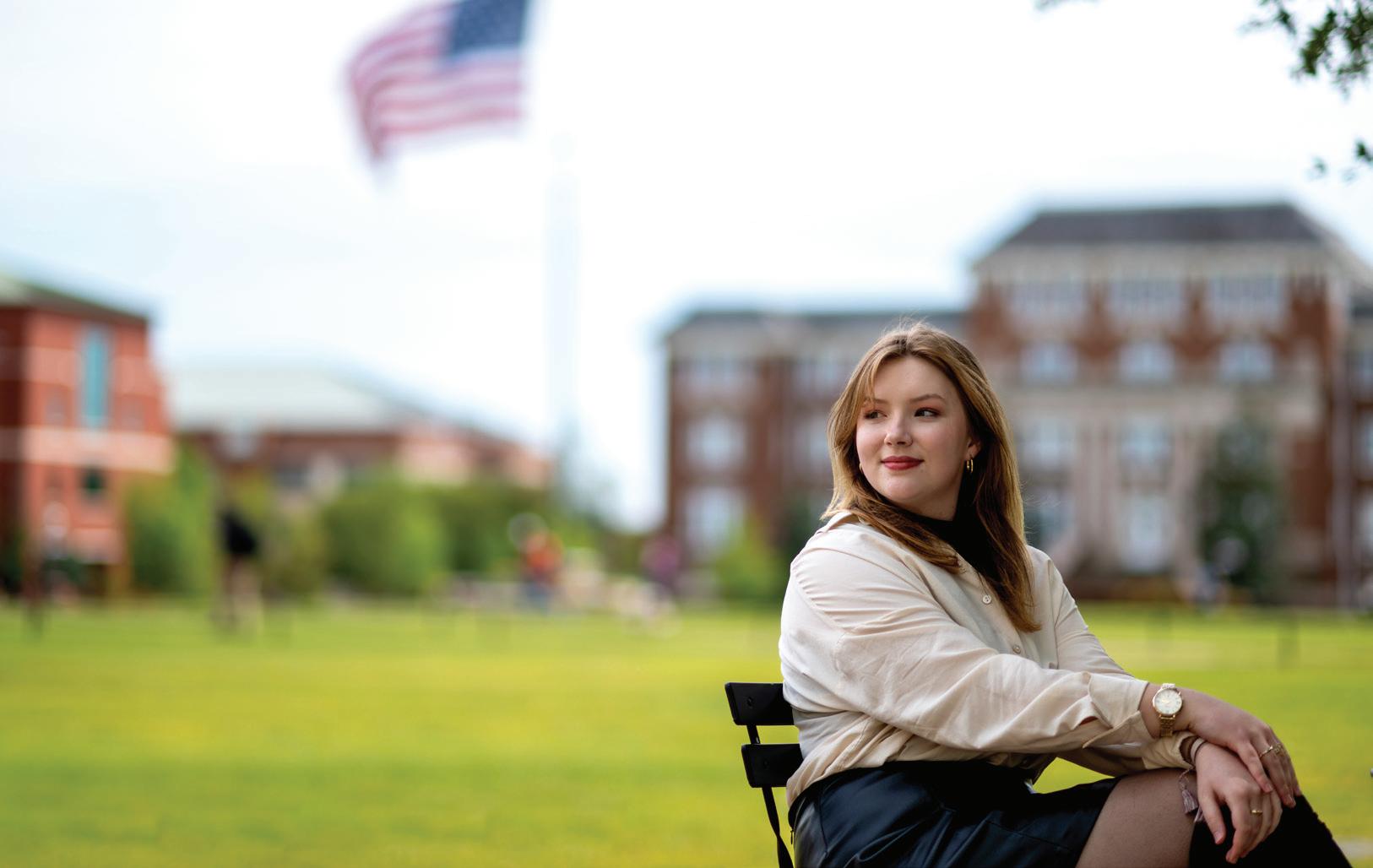
Lexi Holdiness says she didn’t feel like she became a Bulldog until she moved onto Mississippi State’s Starkville campus.
An honors graduate from the Mississippi School for Mathematics and Science, Holdiness chose MSU from a myriad of educational opportunities available. Still, despite being eager to become a Bulldog, the Meridian native says she felt like an outsider—until she came to campus in fall 2023.
Once she began her MSU journey, Holdiness says she quickly felt at home and was welcomed into the Bulldog family with open arms.
During her first semester, Holdiness took part in a variety of programs and experiences aimed at immersing new students in the history, culture and workings of all things Maroon and White.
a sheet of paper, and you don’t know anyone. Mississippi State, however, made me feel like they had my name highlighted. They knew exactly who I was and what I wanted to do.
“Everyone, especially my Shackouls Honors College professors and mentors, has made me feel completely at home and part of the family," she added. "The feeling of being seen made my super-challenging classes less daunting because I felt less alone.”
"Everyone, especially my Shackouls Honors College professors and mentors, has made me feel completely at home and part of the family."
~ Lexi Holdiness
“It’s easy to feel alone when you first come to a new place," Holdiness said. "You think you’re just a name on
Increasing student success through holistic support is paramount to MSU, and the university is focusing its efforts on building both community and academic opportunities—especially for freshmen and sophomores—as part of the Transforming the Foundational Postsecondary Experience cohort.
MSU, along with 10 other universities, is partnering with the Gardner Institute, a leading national, student success nonprofit organization, to analyze and transform
ALUMNUS.MSSTATE.EDU 7
Lexi Holdiness, a biochemistry and psychology double major from Meridian, attributes a variety of community-building programs and MSU's supportive staff and faculty to making her feel welcome in Starkville and part of the Bulldog family.
the experiences of students during their first two years in college—the most important period of time in which young learners establish foundations for success in both academic and social settings.
Over the next five years, MSU will develop innovative strategies to enhance teaching and learning practices, and promote student success and retention.
“Instead of expecting students to be college-ready, we have to shift our mindset so that Mississippi State is student-ready,” said Regina Hyatt, vice president for student affairs. “We have to provide an environment in which students can flourish.
"Academically, we’re looking at how we design classes and the ways to get students the academic foundation they need. We’re taking a serious look at the support students need along the way, including tutoring and supplemental instruction opportunities through the MSU Center for Academic Excellence."
~ Eric Moyen
“Students have to feel like they’re members of a community—that they’re part of something happening, comfortable with their peers and that people care about them," she continued. "They need to be able to look around and see peers who
look like them or come from similar backgrounds and experiences, and they need to have a sense of belonging in the classroom, with faculty really setting high expectations and giving positive feedback about their progress. If they don’t feel these things, they’re going to retreat. Students have to see a clear connection to why they’re here and working so hard to get a degree.”
Currently, MSU is in the “sensemaking phase” of the initiative, working to identify strengths and weaknesses in terms of student support and where opportunities exist to build better individual relationships, said Eric Moyen, assistant vice president for student success.
“In higher education, we get tripped up with student success by focusing on the numbers. We talk about retention, persistence and graduation rates—those are metrics, not student success,” Moyen said. “If we focus on creating
MSU Center for Advising Executive Director Sawyer Bowering (left) and Eric Moyen, assistant vice president for student success, are part of an MSU team identifying areas where the university can holistically support students in and out of the classroom.
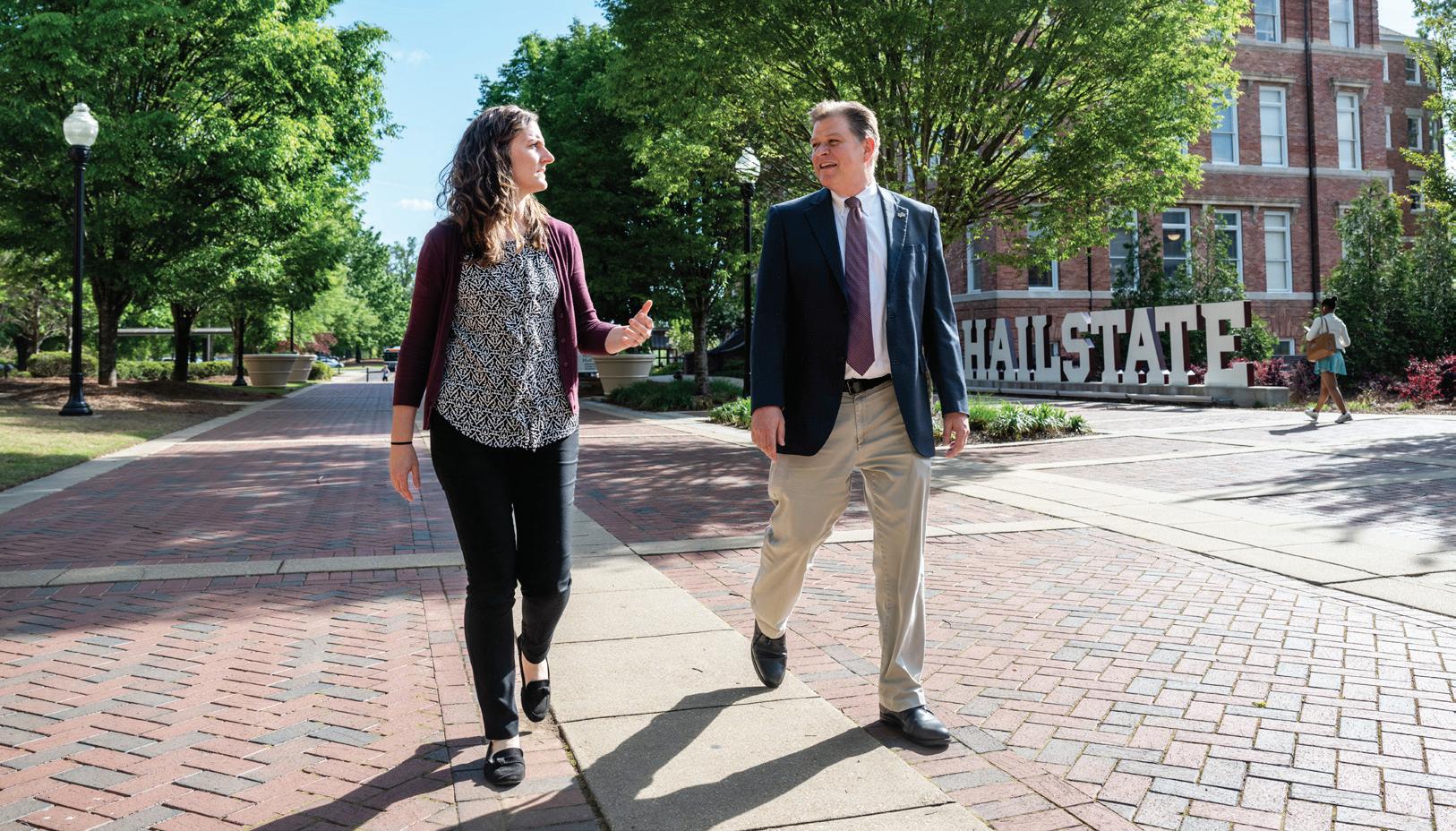
8 SPRING 2024 Campus NEWS
active learners who have a sense of belonging and engagement, the numbers will take care of themselves.
“We’re looking at everything," he continued. "Academically, we’re looking at how we design classes and the ways to get students the academic foundation they need. We’re taking a serious look at the support students need along the way, including tutoring and supplemental instruction opportunities through the MSU Center for Academic Excellence. Our goal is to get students to experience success in challenging courses without lowering the bar. We’re saying, ‘Mississippi State takes ownership in your success. We’re going to give you the tools to be successful.’”
To further support freshmen, the MSU Center for Advising is piloting a program that executive director Sawyer Bowering describes as “proactive, hands-on, individualized advising.”
Eight student success coordinators serve students across MSU’s colleges to help them with not only traditional advising but also navigating situations they’ve never experienced outside their home.
GROWING Maroon & White ROOTS
“Advising freshmen is completely different from advising others. We’re looking at things like how to save a Word document as a PDF or getting enough rest so your brain has the energy it needs the next day,” she said. “Incoming freshmen have grown up with their home support system, and that’s all they know. They’re doing things they’ve never done before and haven’t developed problem-solving skills as they relate to college and life on their own.
“This relationship-building approach helps create successful students, and you have to be intentional with that approach,” Bowering added.
To truly take care of what matters, Moyen said MSU has to look beyond simply awarding degrees and focus on creating good citizens and stewards of society.
“The ultimate goal for students is to get a degree, but what that means to me is they were successfully able to navigate all aspects of college life—they were able to learn, think critically and be able to change their lives and make a positive impact on others. That is student success, and that’s where our hearts and minds are.” n
Participating in campus activities is an important part of students establishing roots at Mississippi State University. And with clubs, social activities, service projects and shared learning opportunities, there is something for every Bulldog.
Lexi Holdiness took advantage of many of these activities during her first semester in an effort to find her place in the Bulldog family, including:
• NEW MAROON CAMP –a multiday, student-led retreat welcoming freshmen to campus;
• FRESHMAN YEAR EXPERIENCE –an honors-level class, integrated into Professor Tom Carskadon's general psychology course, that highlights the university and the resources and support it offers students;
• MIXING WITH THE 2023-24 PRESIDENTIAL SCHOLARS COHORT–a group of 21 students, including Holdiness, who received the Louis A. Hurst Jr. Presidential Endowed Scholarship. These are the university's most prestigious undergraduate awards.
Holdiness, a sophomore biochemistry and psychology double major, said these opportunities piqued her interest and spoke to the kind of college experience she wants to have. She encourages all incoming students to explore the wide variety of activities, classes and programs available at Mississippi State to find their place on campus.
Orientation is a great place to get information about available opportunities. Students can also visit the Office of Student Affairs' website and follow it on social media to learn about opportunities as they arise.
ALUMNUS.MSSTATE.EDU 9
new maroon camp presidential scholars freshmanyear experience
Computers & Crops
MSU launches Agricultural Autonomy Institute
By James Carskadon, Photos by David Ammon and Dominique Belcher
Imagine a farm where autonomous vehicles herd dairy cows into the milking parlor and a small robot uses artificial intelligence to pick a cotton boll at the exact right moment. Overhead, a drone determines how much water and pesticide each soybean plant needs, triggering a response from devices on the ground. Meanwhile, the data collected during these tasks sparks algorithm updates that will drive changes to improve yield in the next crop.
While these ideas may not be ready for widespread adoption, a new multidisciplinary institute at Mississippi State University is working to develop these technologies and more to help feed a growing global population and position MSU as a hub for advanced agriculture.
The MSU Agricultural Autonomy Institute is the vision of Alex Thomasson, head of MSU’s Department of Agricultural and Biological Engineering. He saw the potential of a universitylevel institute to bring together Bulldog faculty and research centers in a shared mission–advancing autonomous agricultural systems.
The new institute received startup funds from the Robert M. Hearin Foundation and officially opened in 2023 with Thomasson as the director. Madison Dixon, formerly research director at MSU’s Raspet Flight Research Laboratory, is the institute’s associate director.
Thomasson said a lot of autonomous agriculture work is being done to address chronic labor shortages in the world’s food production systems. As the field develops over the coming years, the Agricultural Autonomy Institute can make Mississippi State a hub for this research and development, driving economic activity in the state’s largest industry.

“I really hope to see Mississippi become the Silicon Valley of agricultural autonomy. We want to help attract corporations that are interested in working in this space and potentially license technologies we develop for commercial use. We also have the opportunity to enhance the farming workforce through training programs, allowing the people in the field to be more productive.”
~ Alex Thomasson
10 SPRING 2024 Campus NEWS
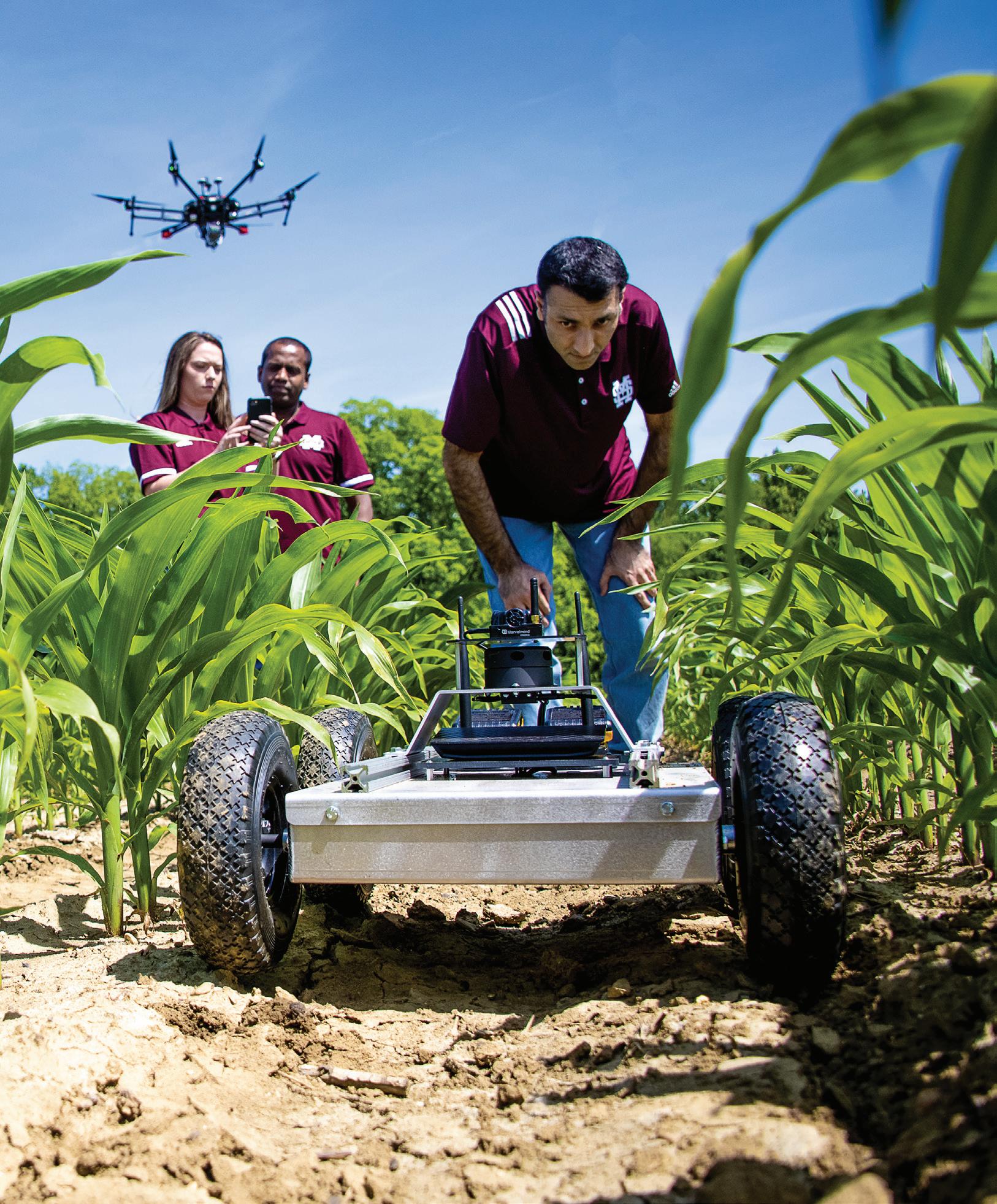
ALUMNUS.MSSTATE.EDU 11
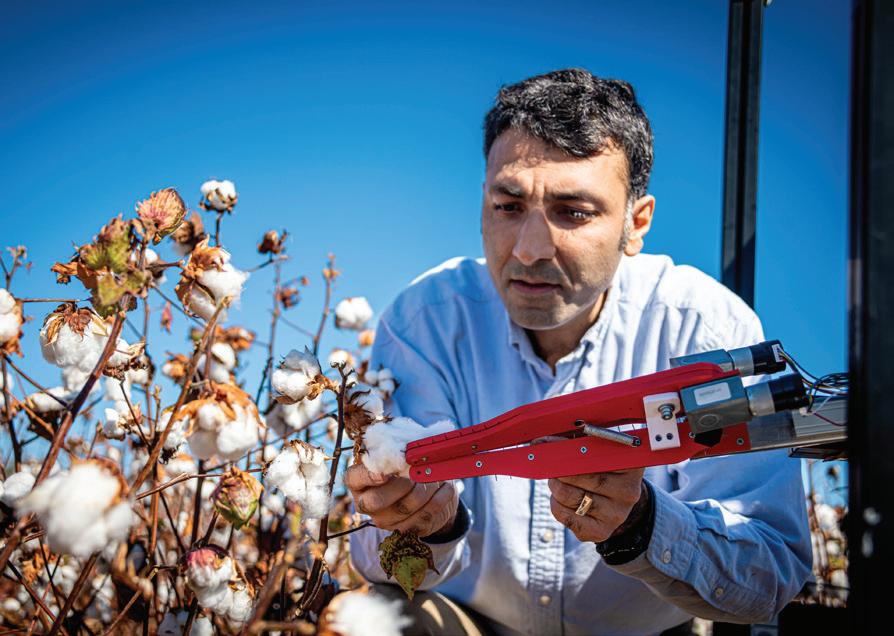
“I really hope to see Mississippi become the Silicon Valley of agricultural autonomy,” said Thomasson, who holds the William and Sherry Berry Endowed Chair. “We want to help attract corporations that are interested in working in this space and potentially license technologies we develop for commercial use. We also have the opportunity to enhance the farming workforce through training programs, allowing the people in the field to be more productive.”
KEEPING MSU AT THE FOREFRONT OF AGRICULTURE
The Agricultural Autonomy Institute builds on over a century of applied agricultural research at MSU. For decades, the university has ranked nationally among the top 15 universities in agriculture and natural resources research and development expenditures. That research has often integrated high-end, emerging technologies such as uncrewed aircraft systems or even supercomputers.
“The field of agriculture is rapidly changing, and Mississippi State has long been a leader in driving innovative change to meet new challenges. This institute will enhance our capacity and capabilities as we develop new solutions and technologies that agriculture needs,” said MSU President Mark E. Keenum, who previously served as an Under Secretary of the U.S. Department of Agriculture and is the current chairman of the Foundation for Food and Agriculture Research.
“It is exciting for our students as well," he continued. “They’ll have new opportunities to engage in groundbreaking research with our world-class faculty. There will also be many positives for producers in Mississippi and beyond who will benefit from all of the insights gained through this research.”
While each advancement has its initial challenges, Dixon said farmers are often open to new technologies once the potential benefits outweigh the costs.
“Farmers are extremely progressive with their understanding and application of technologies when it benefits their operations,” Dixon said. “They have really bought into precision agriculture, and I
view autonomous agriculture as the next generation of that. It is exciting to be a part of making that next step happen for growers across our state and even the country.”
TAKING PRECISION AG TO ANOTHER LEVEL
MSU has a long history of advancing research in precision agriculture, the broad term used to describe agricultural practices that use precision measurements and observations to inform the actions taken at any stage of the growth and harvest cycle. Those precise measurements result in higher yield and lower costs as growers can be more efficient with resources such as water and pesticide. Globally, precision agriculture is viewed as an important strategy for producing enough food to feed a growing population and adapting to shifting climate conditions.
Dixon said robotics and artificial intelligence can take that concept to the next level, allowing even more precise growing strategies while addressing farm labor challenges. As an example, a team of MSU researchers have developed a small robot for harvesting cotton. The researchers have trained the device to recognize mature cotton bolls and pick them at the right time by using machine learning, which is the learning and adaptation of a computer system based on collected data.
Hussein Gharakhani, an assistant professor in the Department of Agricultural and Biological Engineering, is leading the project as an extension of doctoral work he recently completed with Thomasson’s guidance. While the tool is not yet ready to operate at a large scale, Gharakhani and others are working toward that goal.
Among the many challenges in advancing autonomy in agriculture is the need for robotic systems to navigate offroad terrain. MSU’s Center for Advanced
12 SPRING 2024
Campus NEWS
Hussein Gharakhani working with the newly developed “end-effector,” a two-fingered robotic arm created as part of an autonomous agriculture focus at Mississippi State.
Vehicular Systems has made off-road autonomy a major focus of its research, which Thomasson said is another example of why MSU is a perfect place to launch the new institute. Last year, CAVS researchers partnered with the Mississippi Agricultural and Forestry Experiment Station to conduct pilot studies on the effectiveness of using robots to herd dairy cows.
“The institute will help secure funding for projects, administer those projects and work the economic and workforce development angles, but what we really want to do is be a hub that connects different experts on campus,” Thomasson said. “If someone in electrical and computer engineering is doing work in remote sensing that has potential applications in agriculture, we want to make that connection.”
The institute works closely with faculty and researchers in the College of Agriculture and Life Sciences and Bagley College of Engineering, as well as the Mississippi Agricultural and Forestry Experiment Station and MSU Extension Service.
Having grown up in a Mississippi Delta farming family, Dixon said that as the institute continues to grow, he is excited about helping solve the very challenging problems farmers face.
“Our state’s producers have the impossible task of trying to increase their productivity and yield to keep up with rising global demand, all while struggling to find labor and dealing with input costs that are higher than they have ever been,” Dixon said. “They are also battling severe impacts of climate change that threaten some of the more traditional agricultural practices.
“They really have the deck stacked against them, but this institute is one of the ways that MSU has their backs,” he continued. "We want to do everything we can to ensure they can continue to be successful and that more generations of farming families, like the one that I came from, can thrive in the future.” n
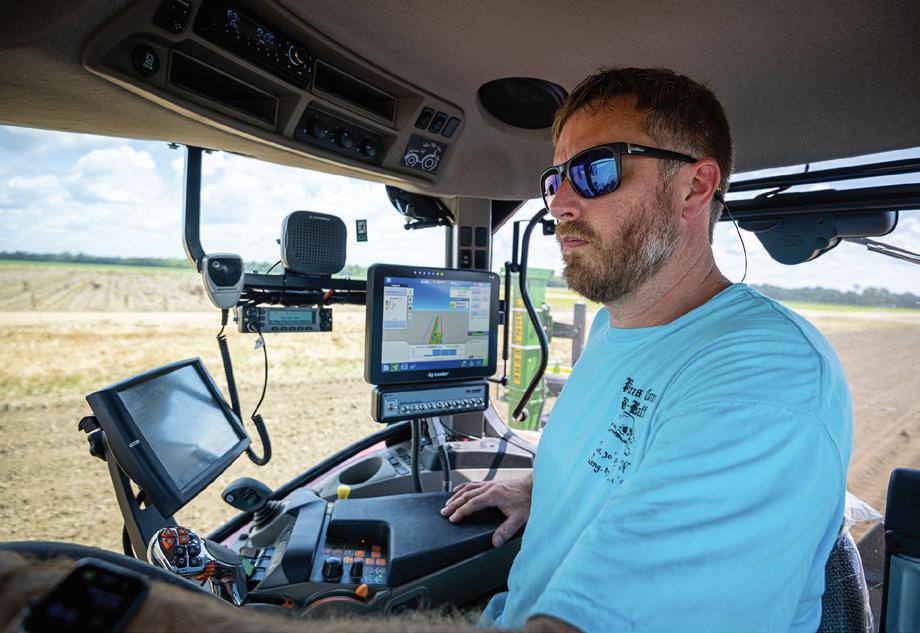
MSU REMAINS NATIONAL AGRICULTURE LEADER
Mississippi State’s leadership in agricultural autonomy is just the latest chapter in the university’s storied history of being at the forefront of research to advance agriculture, natural resources and forestry.
For more than a century, Bulldog scientists and researchers have devoted their efforts to making the ag industry sustainable, profitable and a worthwhile investment for producers and landowners.
“Every day our researchers are studying new ways to better feed, shelter and clothe our world, and our outreach and Extension efforts help to ensure that Mississippi producers can stay at the forefront of agricultural production and be positioned for success,” said Keith Coble, MSU’s vice president for the Division of Agriculture, Forestry and Veterinary Medicine.
Nationally, Mississippi State ranks 97th in the National Science Foundation’s latest Higher Education
Research and Development survey, which covers data from fiscal year 2022. Broken out by discipline, the survey puts MSU at No. 11 for spending on agriculture research and No. 14 for natural resources. Aerospace engineering rounded out MSU’s top 15 disciplines in the FY 2022 survey.
Coble explained that Mississippi State’s research efforts in agriculture and forestry have a direct impact on the state, as those industries are responsible for more than $16 billion of value added to the economy and account for 17% of all jobs in Mississippi.
“The MSU Agricultural Autonomy Institute is essential to us maintaining our leadership position both nationally and internationally,” Coble said. “Labor needs in agriculture are driving the demand for ag autonomy. This institute creates solutions to challenges the industry faces, while also training a skilled workforce and attracting new business to our state.”
ALUMNUS.MSSTATE.EDU 13
John Wallace, a research associate, operates the precision planter in a soon-to-be field of soybeans at the Northeast Mississippi Branch Experiment Station in Verona.
with developing the first tractor to operate without an on-board driver in the 1940s.
Frank W. Andrew, a graduate of a land-grant institution,
is credited
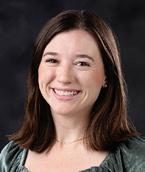
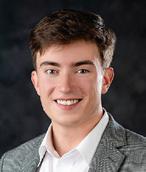
PAYTON DAVIS, a sophomore majoring in environmental economics and sustainability, and DEVIN HUTCHINS, a junior double majoring in philosophy and economics joined other high-performing undergraduates from across the country for an immersive networking and graduate school-preparatory experience at the Harvard University Kennedy School’s 23rd annual Public Policy Leadership Conference.
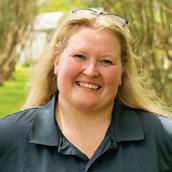
JENNY RYALS , a Mississippi State College of Agriculture and Life Sciences doctoral student studying horticulture, is the recipient of competitive academic scholarships from the American Floral Endowment and the Sidney B. Meadows Fund. Her award through the Richard T. Meister Scholarship is one of 22 scholarships given through the organization’s endowment fund this year. It supports graduate students in floriculture who intend to pursue a research, Extension or teaching career in the land-grant university system.
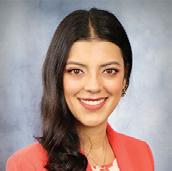
ZONIA CARO CARVAJAL , a master’s student in MSU’s Department of Food Science, Nutrition and Health Promotion participated in the Norman E. Borlaug International Dialogue in Des Moines, Iowa. She received the invitation because of her past work with the World Food Prize Foundation, a WFP nonprofit focused on sustainably increasing food quality, quantity and availability.
ANGUS L. CATCHOT JR. is now director of the Mississippi State University Extension Service. The three-time MSU alumnus previously served as associate director of the Mississippi Agricultural and Forestry Experiment Station and a professor in the College of Agriculture and Life Sciences. With degrees in agricultural pest management and entomology, he worked for Monsanto Co. for six years before returning to his alma mater as an Extension faculty member specializing in row crop entomology.
KARYN BROWN , a longtime Mississippi State instructor and communicator with 30-plus years of experience in broadcasting and public relations, is now the College of Arts and Sciences’ assistant dean for communication and media.
Mississippi State G.V. "Sonny" Montgomery Presidential Endowed Scholar ANN OLIVIA
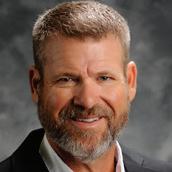
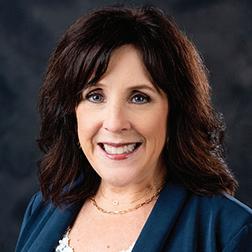

RADICIONI is the university’s newest Rhodes Scholarship finalist. The senior political science major and Shackouls Honors College student from Clinton also was honored by the university as Miss MSU and was introduced alongside other members of the Homecoming Court. Criteria for selection as a Rhodes Scholar include demonstrated scholarly achievement, character, and commitment to others and the common good, as well as leadership potential. Radicioni is MSU’s seventh finalist in the last 12 years.
MADISON BRODE , a senior biological sciences major at Mississippi State, is the university’s first recipient of the Marshall Scholarship, a prestigious award annually providing a select 50 American students graduate-level study in the United Kingdom. Brode, a native of Memphis, Tennessee, will study biodiversity, conservation and management at the University of Oxford in England, where she completed two previous study-abroad sessions. A portion of her overseas experiences was funded by scholarships from MSU’s Turner A. Wingo Honors College Excellence and Dr. Nancy Hargrove Study Abroad endowments.
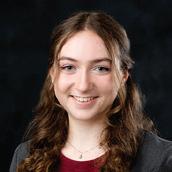
Mississippi State University-Meridian’s ANGELA SAVAGE , director of the MSU-Meridian social work program and an assistant clinical professor, was recognized as this year’s Social Work Educator of the Year by the Alabama/Mississippi Social Work Educators Conference. Established in 1972, the conference is the oldest regional social work education conference, last year celebrating its 50th anniversary.
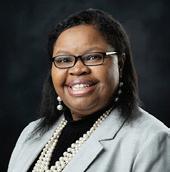
Mississippi State University faculty member TARA E. SUTTON , an assistant professor in MSU’s Department of Sociology, has been recognized as an emerging scholar by the American Society of Criminology’s Division on Queer Criminology for her in-depth criminology research with a focus on women, Black families and LGBTQIA2S+ young adults.
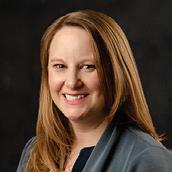
Experienced landscape architect and educator ANNE SPAFFORD has been named head of the Department of Landscape Architecture at Mississippi State University. Spafford, who most recently was professor and associate department head of the Department of Horticultural Science at North Carolina State University, has 25 years’ experience in higher education teaching and research.
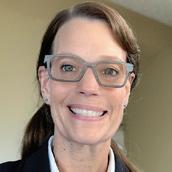

Mississippi State University School of Architecture Associate Professor ALEXIS GREGORY is the recipient of the 2023 PCI Foundation Community Engagement Award. Gregory, who also was awarded a $100,000 grant in 2020 from the nonprofit organization to incorporate precast and prestressed concrete projects into MSU architecture courses, was nominated for the award by PCI Gulf South Executive Director Dan Eckenrode.
Mississippi State Grisham Master Teacher JACOB TSCHUME is the university’s newest Luckyday Scholars Program Faculty Fellow. Tschume joins the program to help facilitate its growth on campus, including the addition of sections of the Lucykday Seminar course open to the incoming freshman class of scholars. His 11-year MSU career in the classroom includes a focus on making students successful while in college and also after graduation.
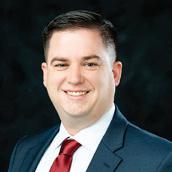
14 SPRING 2024
NEWS
Campus

Mississippi State-grown sweet potatoes have gone to the dogs, literally. Scientists in the Mississippi Agricultural and Forestry Experiment Station at MSU have created locally sourced sweet potato dog treats now available for purchase at the MAFES Sales Store.
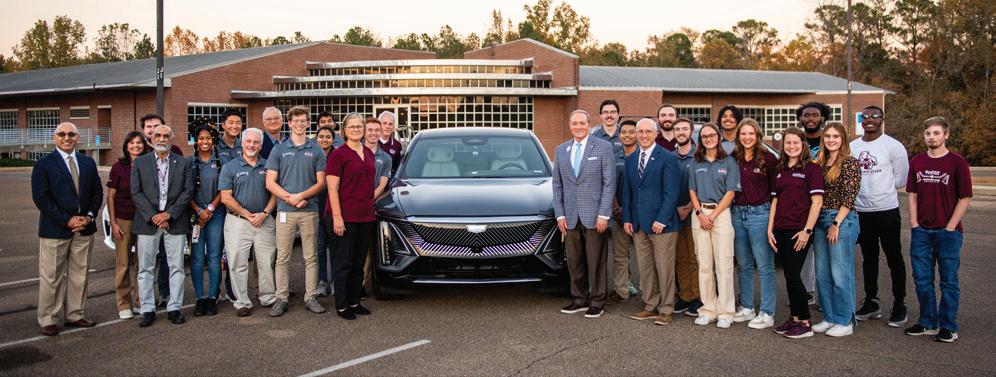
MSU’s EcoCAR Electric Vehicle Challenge team officially unveiled its new Cadillac LYRIQ at the university’s Center for Advanced Vehicular Systems. The EcoCAR team has spent over a year developing designs to implement an all-electric powertrain, as well as connected and autonomous features into the vehicle. The interdisciplinary team of students will now implement these designs and compete against some of the top universities in the country beginning next May and through the remainder of the four-year competition.

A mile-long trail featuring a raised boardwalk now offers the public access to a nature-focused amenity in Ocean Springs thanks to a partnership between Mississippi State’s Gulf Coast Community Design Studio and the Land Trust for the Mississippi Coastal Plain. The groups have partnered on projects since 2010. Their most recent work was completed on Land Trust property, which meanders through an upland forest and crosses over marsh wetlands, providing educational opportunities and stunning views of Old Fort Bayou.
Mississippi State has been awarded a $150,000 cash prize from the U.S. Small Business Administration to bolster the university’s work in Vicksburg to support the launch, growth and scale of STEM/research and development-focused small businesses. The funding is from the SBA’s 2023 Growth Accelerator Fund Competition, marking the second time this year MSU has been awarded a cash prize in the contest. Winners were selected through a multi-tier review panel process by experts in entrepreneurship, business, innovation, and strategic planning.
Strengthening ties between Mississippi State and the Food and Agriculture Organization of the United Nations, MSU hosted FAO Director General Qu Dongyu as he learned more about the university’s research capabilities. During his visit, Qu toured MSU’s Feed the Future Innovation Lab for Fish and aquaculture research facilities, as well as the High Performance Computing Collaboratory, in addition to meeting with senior MSU officials.
More first-time students attended Mississippi State last fall than ever before. The university announced an 11.4% increase in first-time students for fall 2023, the largest entering class in the school’s 145year history. MSU also recorded its highest number of freshman applications, as the university remains the No. 1 college choice for Mississippi’s high school graduates with 14,296 from the Magnolia State. This totals 63.1% of the student body.
A new music performance degree program builds upon Mississippi State University’s long-standing tradition of providing students with a comprehensive education in the arts. Introduced last fall, MSU’s Bachelor of Music in Performance degree prepares students for careers as professional musicians or music studio teachers, or for advanced graduate studies in music. As the demand for creative skills continues to increase in today’s job market, this degree program equips students with the training to succeed in a competitive field while fostering creativity and artistic growth.
ALUMNUS.MSSTATE.EDU 15


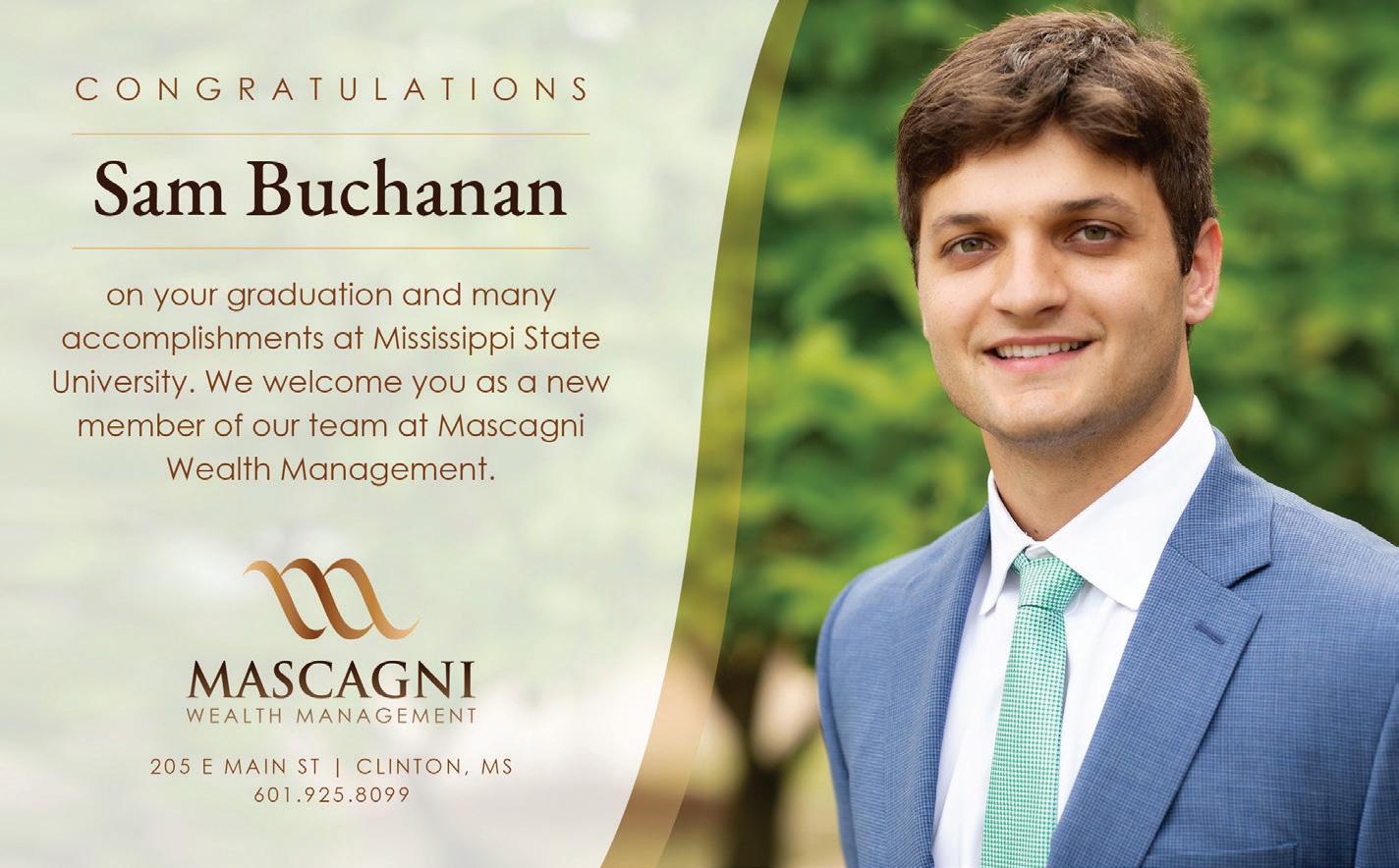
16 SPRING 2024
BUILDING BRIDGES
New program connects underrepresented students with world-class research opportunities
By James Carskadon, Photo by Beth Wynn
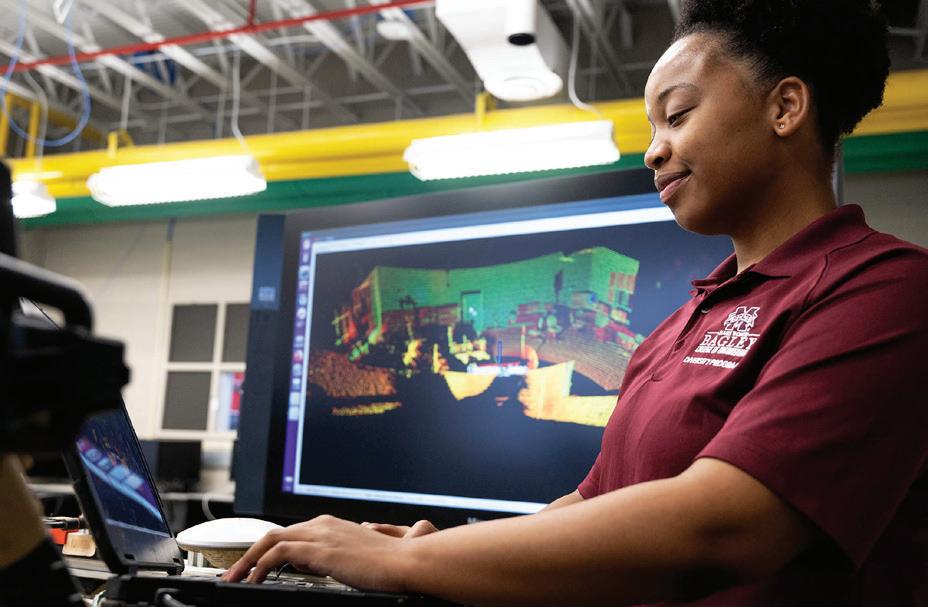
When Kennedy Keyes arrived at Mississippi State in fall 2022, her knowledge of student opportunities in research was limited. However, within a few months, she was knee-deep in an MSU Center for Advanced Vehicular Systems study meant to improve accessibility in virtual reality applications. It was one of multiple opportunities that presented itself after Keyes learned of a new program designed to increase the participation of minority and underrepresented students in research at Mississippi State University. Building Relations that Intentionally Develop Generations of Excellent Scholars, or BRIDGES, was jointly launched in 2022
by MSU’s Office of Research and Economic Development and the Division of Access, Opportunity and Success.
“I wasn’t too sure if I could do research because I didn’t really see many people that looked like me doing it,” said Keyes, a software engineering major who transferred to MSU from Holmes Community College. “It kind of put my confidence a bit down until I learned about BRIDGES and they were like, ‘we actually have a program dedicated to helping you get into a research lab you want to work in.’ I was pretty excited because I realized this is an actual opportunity and a door opening for me.”
BRIDGES connects students with paid opportunities to work in MSU research
ALUMNUS.MSSTATE.EDU 17
Discoveries
MSU is an R1-Very High Research Activity Doctoral University.
Discoveries
centers and academic units. Because of the wide-ranging nature of MSU’s endeavors, students can work in centers that focus on engineering, social sciences, materials, uncrewed aircraft systems, high performance computing, clean energy and more, allowing students to be paired with research that matches their interests. The program also fosters a sense of community by bringing together BRIDGES students for regular meetings that include advice to help them navigate working as part of a research team.
Timothy Hopkins, executive director of MSU’s Holmes Cultural Diversity Center and a mentor for the BRIDGES program, said those sessions focus on career readiness skills such as communication and teamwork, as well as tips for poster presentations, publishing and other facets of research.
“I think it’s really important for students to engage in high-impact practices such as research because it helps them dive into their passion and develop these essential skills they need in a constantly evolving world,” Hopkins said. “This program was created to help eliminate barriers to these opportunities, whether those barriers are financial, social or just a lack of awareness.
Judy Middleton, assistant director for operations in the Office of Research and Economic Development, said student feedback from the program has been positive, largely because of the immersive experiences provided.
“The students really value the opportunity,” Middleton said. “They recognize that it is more than a typical student worker job where they are answering calls or running errands. They are contributing to an overall product, and if they are working in one of our research centers, there is typically a sponsor outside of the university, so they are in an environment driven by deadlines, budgets and other pressures, which is more of a real-world situation.”
The BRIDGES program has grown every year since the program launched, with this spring’s group consisting of 31 students. While the program lasts
a semester for the students, it often serves as a springboard to other opportunities, both within MSU and elsewhere. The summer after she went through the BRIDGES program, Keyes participated in a fully funded research experience at the University of California, Los Angeles, where she studied artificial intelligence and machine learning.
When Keyes returned to MSU last fall, she continued to work for CAVS on research to advance the algorithms powering the center’s autonomous offroad driving software. Her connections with CAVS have allowed her to visit the U.S. Army Corps of Engineers’ Engineer Research and Development Center in Vicksburg, a major funder of CAVS research. Now on the cusp of graduation, she is eyeing a career with the federal government and continuing her studies in graduate school.
“I got to ask them questions about working in research for the government and for the Army, and it was all really exciting,” Keyes said. “So I hope to get into that field after I graduate and use my computer skills in a way that helps people.”
Hopkins and Middleton said there are multiple examples of students going through the program and then pursuing graduate school or other educational and professional tracks because of their exposure to different research, which is why BRIDGES was created.
Middleton credits Julie Jordan, MSU’s vice president for research and economic development, and Ra’Sheda Forbes, vice president for access, opportunity and success, for having the vision to create a program that expands access to MSU’s world-class research opportunities.
“They recognized the value of these hands-on experiences for students and the impact it can make if we are intentional about exposing underrepresented students to research opportunities in our centers and institutes,” Middleton said. “It is exciting to see students embracing this opportunity and realizing that there is a future for them in research if they want to go down that path.” n
“I
think it’s really important for students to engage in high-impact practices such as research because it helps them dive into their passion and develop those essential skills they need in a constantly evolving world. This program was created to help eliminate barriers to these opportunities, whether those barriers are financial, social or just a lack of awareness.”
~ Timothy Hopkins
18 SPRING 2024
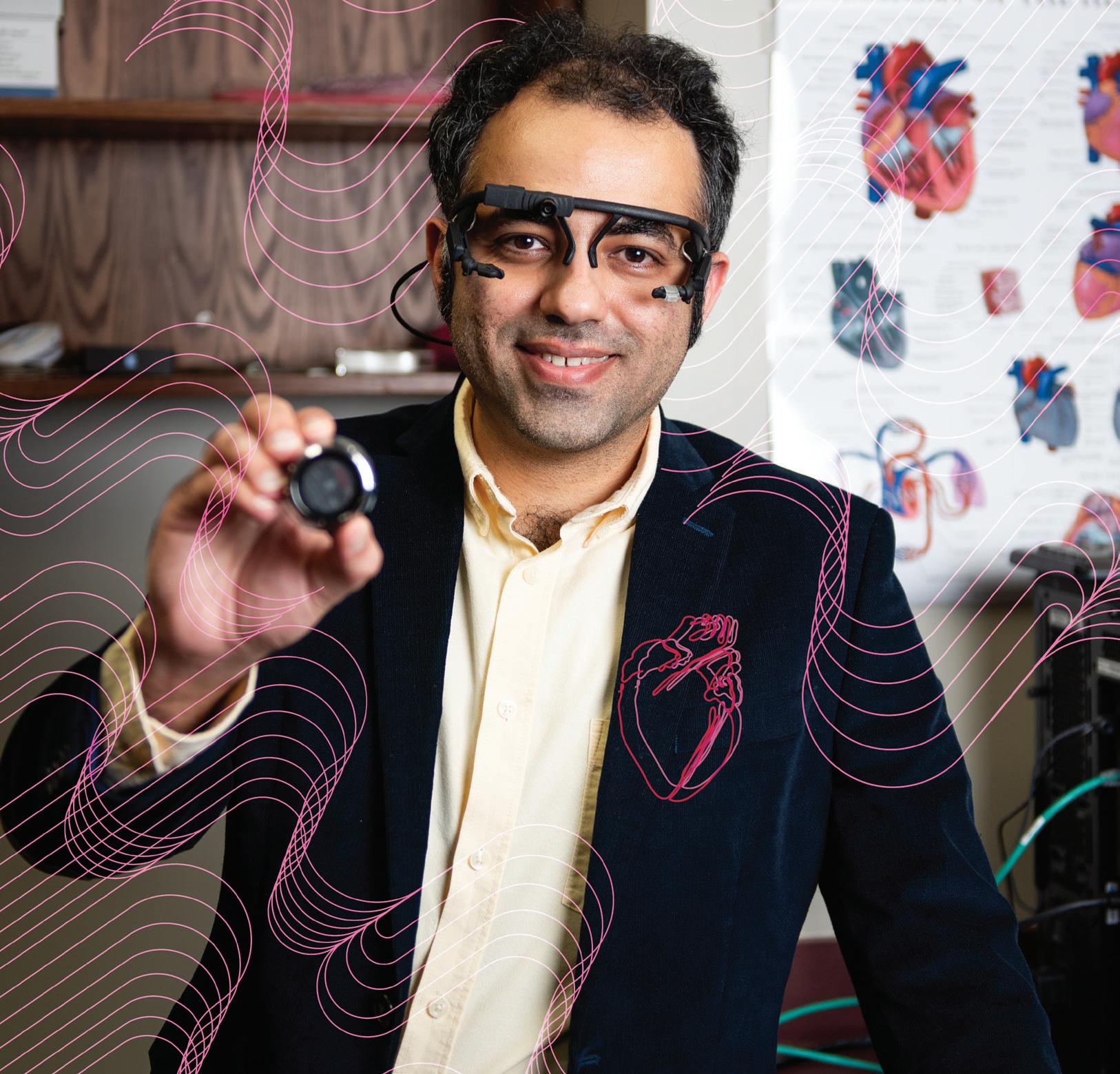
Amirtahà Taebi, an assistant professor in biomedical engineering, wears an eye-tracking headset and holds an electronic stethoscope, both used to help develop new products and test methods in Taebi Lab.
VIBE CHECK
VIBE CHECK
By
MSU researchers making advances in fight against cardiovascular
When Amirtaha Taebi joined Mississippi State’s biomedical engineering faculty in 2021, he also joined the fight against the world’s leading cause of death—cardiovascular disease.
Encompassing all conditions that affect the heart and blood vessels, including problems
disease
present at birth and those that develop over time, these diseases directly affect over half a billion people worldwide and cause cascading effects throughout families. For Taebi, cardiovascular disease is the reason he never met his grandfather and is something his mother is currently fighting.
ALUMNUS.MSSTATE.EDU 19
Aspen Harris, Photos by Grace Cockrell
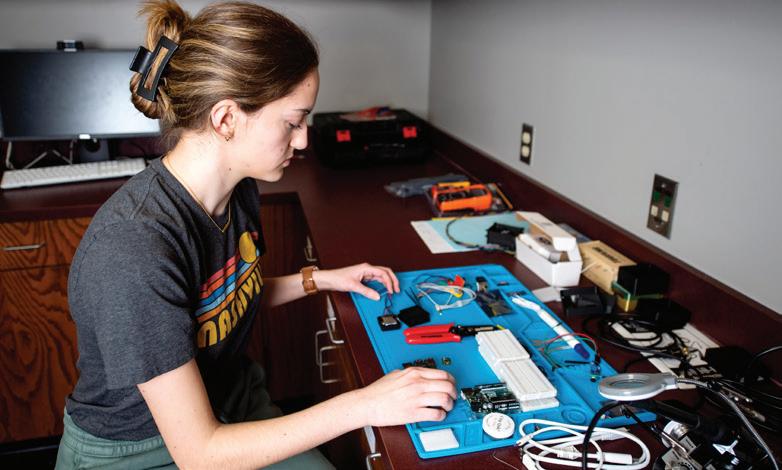
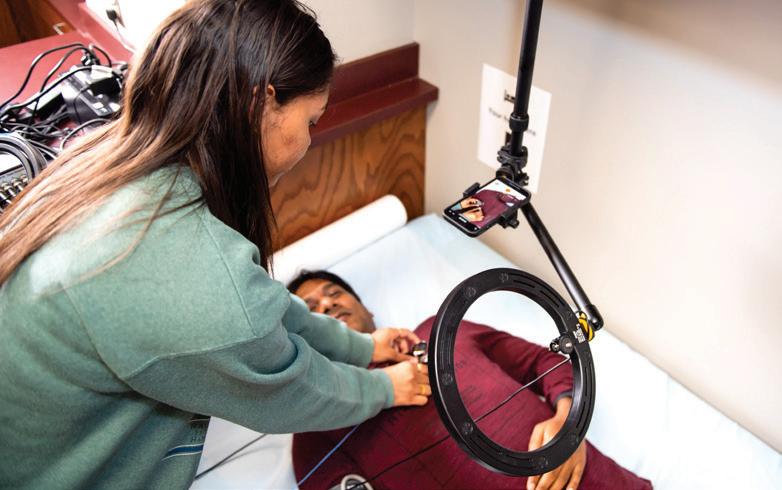
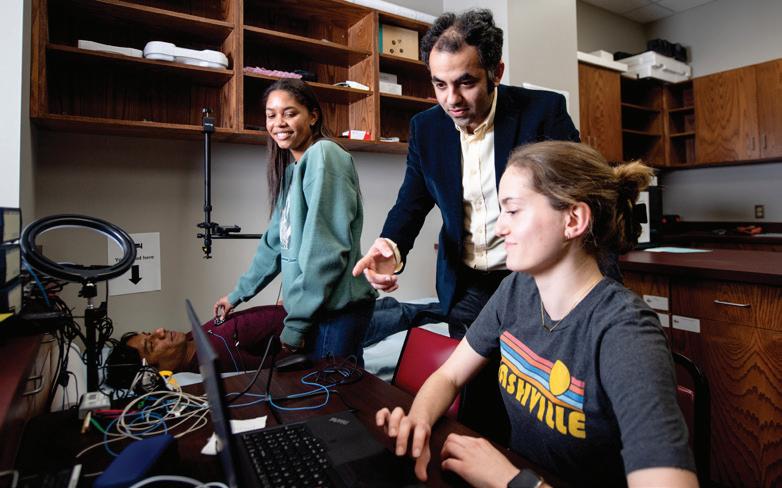
“A few years ago, I realized my mother has a congenital heart disease. People often won’t notice these diseases until they are 50 to 60 years old,” said Taebi, an MSU assistant professor of biomedical engineering. “Once I heard about her condition, it made me even more motivated to work in the area of cardiovascular engineering.”
Using his personal connections to cardiovascular disease as motivation, Taebi is working to find solutions to the global, heart-health crisis. With funding from Mississippi State, he established Taebi Lab, which is dedicated to developing tools to improve cardiac health.
Housed in the Department of Agricultural and Biological Engineering, the lab includes graduate and undergraduate student researchers. Under Taebi’s direction, the team is working to develop new and more affordable methods for the early detection and monitoring of cardiovascular disease to improve the care of those in rural and low-income areas like Mississippi.
“We focus on cardiovascular diseases because they are not only the leading cause of death in United States but also in the world. One American dies from cardiovascular disease every 33 seconds,” Taebi explained, noting that Mississippi has the country’s second highest mortality rate from congenital heart diseases.
Taebi said his research also focuses on health equity because low-income, underrepresented populations are often more affected by cardiovascular diseases. By creating low-cost, easy-to-use tools, the researchers hope to make monitoring, as well as diagnostic and preventative care, more accessible.
“That’s why we want to create methods for cardiovascular monitoring that are accessible, low-cost and widely available to the general public, so even low-income individuals and those based in rural areas can use these devices to monitor their or their loved one’s cardiovascular activity," Taebi said. "If something is wrong, they can know as soon as possible and see a doctor to determine their next steps.”
Taebi explained that vibrations in the human body, which are caused by one’s heartbeat, can be used to detect cardiovascular abnormalities. He said the lab is studying these vibrations to understand what cardiac events are represented by the pattern, or waveform, of the vibrations.
“If you place your hand on your chest, you will feel vibrations as a result of your heart pumping blood to different organs in your body. We can measure those vibrations using sensors,” Taebi explained.
“By analyzing those vibrations, we aim to help determine if your heart is working normally or atypically and, if it’s atypical, whether it’s a sign of disease and something that should be referred to a doctor," he continued. "We want to detect problems as soon as possible to get medical intervention quickly.”
20 SPRING 2024
Discoveries
heart beats more than 2.6 billion times during the average lifetime.
The
TOP: Senior biomedical engineering major Sophia Ruckman of Hoover, Alabama, joined the Taebi Lab to research monitoring methods for some of the same cardiovascular diseases she lives with. MIDDLE: Oakfield, Tennessee, native Aysha Mann, a graduate student in biomedical engineering who earned a bachelor’s in the field from MSU in 2023, joined the lab as a junior to expand her knowledge of noninvasive screening methods on her path to becoming an immunology or oncology researcher. BOTTOM: Taebi, middle, researches detection and monitoring methods for cardiovascular disease with Mann, left, and Ruckman, right, in Taebi Lab.
The ultimate goal, he said, is to reduce mortality rates, optimize medical therapy, reduce hospital stays and improve the lives of patients.
Sophia Ruckman, a senior biomedical engineering major from Hoover, Alabama, works as a student researcher in Taebi Lab, researching methods to monitor some of the same cardiovascular diseases she lives with.
As a child, she was diagnosed with and underwent surgery to repair a coarctation of the aorta and transposition of the great arteries—two potentially fatal congenital heart diseases.
“Whenever I would go to my doctor, he would always tell me about the cardiovascular research being done, because it was a very hard surgery to survive at the time,” Ruckman recalled. “I was one of those people who was able to go play soccer and be active, but a lot of people who came back from those surgeries were living very minimal, limited lives.”
She said she appreciated learning about the science that allowed her to live her life fully, and after telling Taebi her story, he invited her to join his research team.
She joined the lab in 2022 and began researching how to create a low-cost heart monitor that individuals can keep at home to track cardiovascular activities, including the electrical and mechanical aspects, blood oxygen levels and heart sounds.
Ruckman said the first step in creating the monitor was determining the feasibility of such a device using inexpensive sensors and a microcontroller—a small computer designed to perform a specific task.
“We tested our first prototype on a few human subjects in spring 2023,” Ruckman said. “Then, we were able to write a paper and present our research at a few conferences this past semester.”
Ruckman said that after their initial research, the team was able to determine the feasibility of the device and develop a plan to make it wireless. The team also plans to survey doctors and patients for feedback on the appearance of the monitor, which can affect patients’ willingness to use the device.
“We hope to create a device that can give patients information they would be able to understand,” Ruckman said. “Patients could use the information and go see a doctor if they needed more care.”
Along with developing a low-cost heart monitor, the Taebi team is working on an accessible smartphone app for cardiovascular monitoring.
“Around 80% of Americans have a smartphone, meaning that in most households, there is at least one person with one,” Taebi said. “Once we release the app, most Americans will have access to a cardiovascular monitor in their pocket or in their home.” n
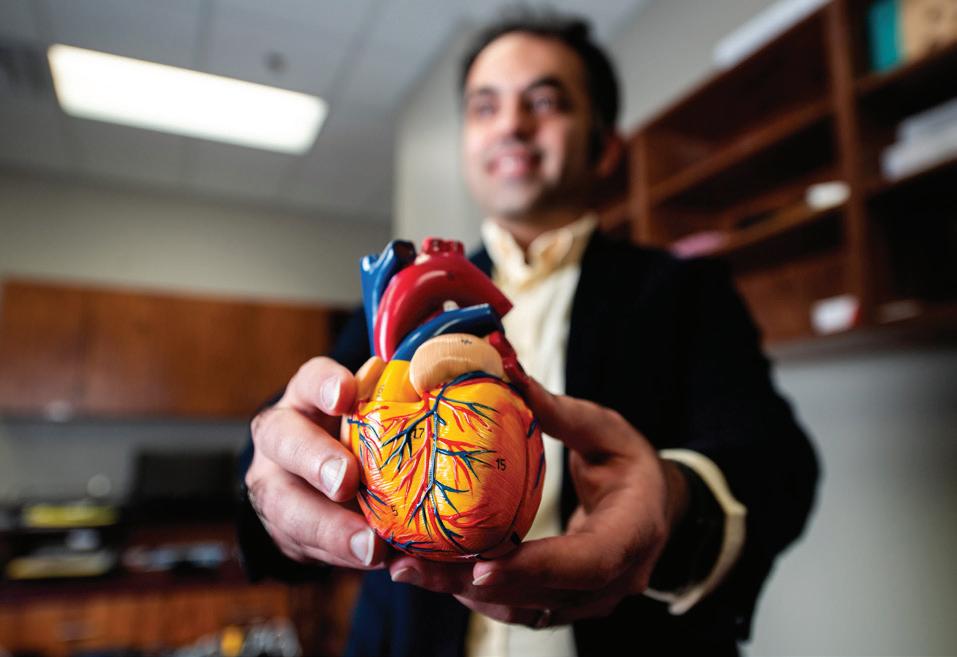
KNOW YOUR HEART
While there is no substitute for regular checkups and monitoring by a health care professional, the Cleveland Clinic offers the following tips to identify compromised cardiovascular health.
The following could be signs of heart disease:
• Chest pain, called angina in health care settings
• Chest pressure
• Shortness of breath
• Dizziness or fainting
• Fatigue or exhaustion
Symptoms of blood vessel blockages include:
• Pain or cramps in the legs when walking
• Leg sores that are not healing
• Cool or red skin on the legs
• Swelling in the legs
• Numbness in the face or a limb, often on one side of the body
• Difficulty talking, seeing or walking
It is recommended you seek medical care or call 911 if you or someone you love is experiencing any of those symptoms. The Cleveland Clinic also provides the following lifestyle management tips for lowering the risk of cardiovascular disease.
• Avoid all tobacco products
• Manage other health conditions such as diabetes, high cholesterol and high blood pressure
• Maintain a healthy weight
• Limit intake of saturated fat and sodium
• Exercise at least 30 to 60 minutes most days
• Reduce or manage stress
ALUMNUS.MSSTATE.EDU 21
Discoveries
ALLISON JAEGER, a Mississippi State University psychology faculty member, is using part of a $1.5 million National Science Foundation grant to study how analogies may help—or hinder— student learning.
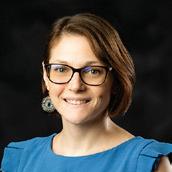
NATHAN WISNOSKI, MSU assistant professor of biological sciences, is principal investigator of a $615,000 twoyear project, “Transport and fate of bacterial communities in Mississippi coastal ecosystems,” to study the ecological impacts of bacteria in the Mississippi Sound and functions of the microorganisms.
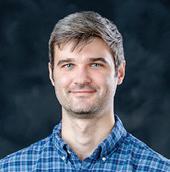
More than a half million dollars from the National Science Foundation will provide Mississippi State University faculty members and research students a new piece of equipment—a high-resolution mass spectrometer—to strengthen research capabilities at the land-grant university and for the entire state. The $540,737 grant is jointly funded by NSF’s Major Research Instrumentation Program, the Chemistry Research Instrumentation Program, and the Established Program to Stimulate Competitive Research.
Mississippi State University was recently awarded a grant to join the NSF I-Corps Hub: Southwest–one of only 10 Hubs in the nation dedicated to recruiting, training, and supporting researchers as they translate their work into commercial goods and services. MSU is one of nine institutions in the Southwest Hub tasked with regional outreach across five states.
Mississippi State is launching a new Gulf Coast Aquatic Health Laboratory to further enhance the university’s efforts to improve the health of aquatic animals and environments in the Gulf of Mexico, particularly in the Mississippi Sound. The new lab is under the Global Center for Aquatic Health and Food Security or GCAHFS, which is affiliated with the College of Veterinary Medicine, and is made possible by $1.8 million in funding from the National Oceanic and Atmospheric Administration.
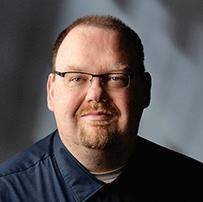
MICHAEL R. NADORFF, professor and director of the clinical Ph.D. program in MSU’s Department of Psychology, is principal investigator for “Healthy Transitions Mississippi,” a project funded through a $3.75 million U.S. Department of Health and Human Services grant to help reengage 16- to 25-year-olds—not currently in school or the workforce. The five-year grant is administered by the DHHS Substance Abuse and Mental Health Services Administration Center for Mental Health Services.
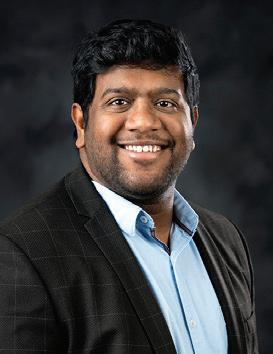
Mississippi State University researchers are honing in on next-generation LED technology with a $708,506 grant from the U.S. Department of Energy to study tailoring the brightness of lead halide perovskites—solid-state inorganic materials— which show promise in LEDs, solar cells and photodetectors. Mahesh K. Gangishetty, an MSU assistant professor with appointments in both the Department of Chemistry and the Department of Physics and Astronomy, leads the three-year grant in collaboration with co-principal investigator Neeraj Rai, an MSU professor of chemical engineering. The funding source is the DOE Office of Science’s Basic Energy Sciences program.
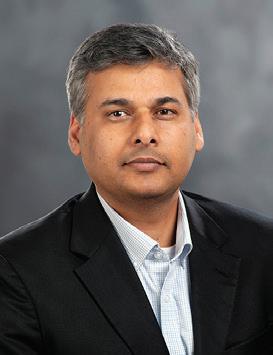
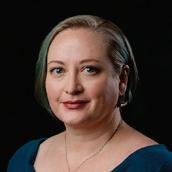
ANNA OSTERHOLTZ, an associate professor in the Department of Anthropology and Middle Eastern Cultures, provided bioarchaeological analysis and bone samples from ancient Roman burial sites that were crucial in the development of new research regarding Roman and Balkan migration featured in Cell, a prestigious peer-reviewed journal.

Mississippi State University researchers are pioneering a new way to detect the local presence of chronic wasting disease , a fatal disease threatening the nation’s deer populations.
22 SPRING 2024
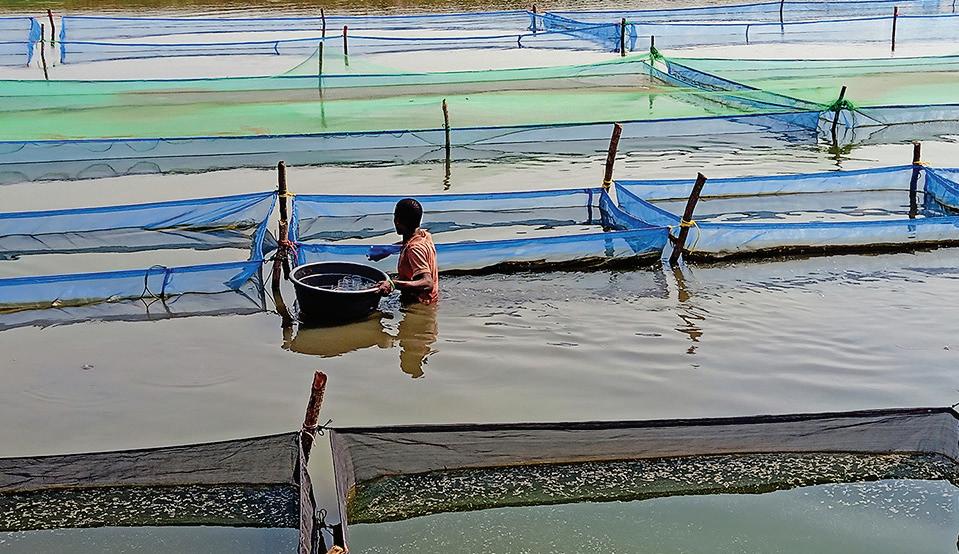
Mississippi State University has received a five-year, up to $15 million extension for the Feed the Future Innovation Lab for Fish to address global food security challenges through aquatic food systems.
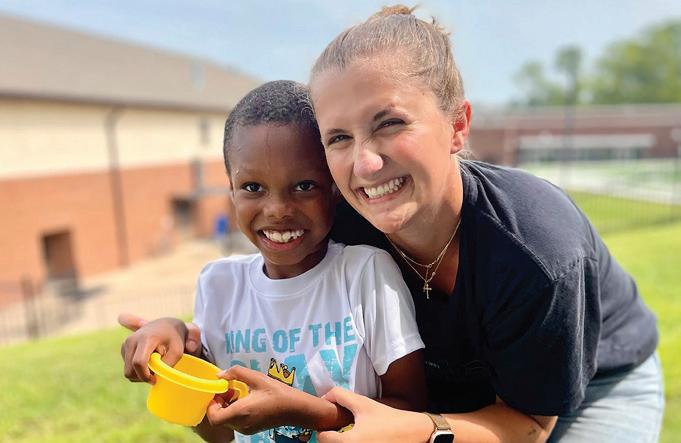
Mississippi State University is increasing access to behavioral health services in rural communities across the Magnolia State thanks to a $943,000 grant from the Health Resources and Services Administration . Awarded to MSU’s Applied Behavior Analysis program in the College of Education, the two-year funding addresses the shortage of behavioral health service providers in Mississippi through stipends and support to ABA master’s students and existing providers who serve in rural areas of the state. The ABA degree is offered by the Department of Counseling, Higher Education Leadership, Educational Psychology, and Foundations.
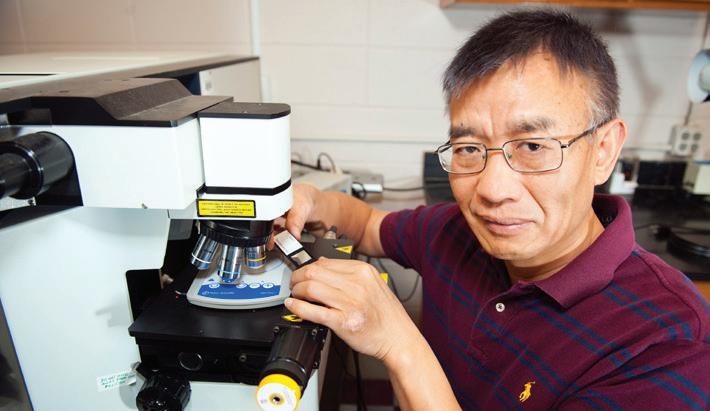
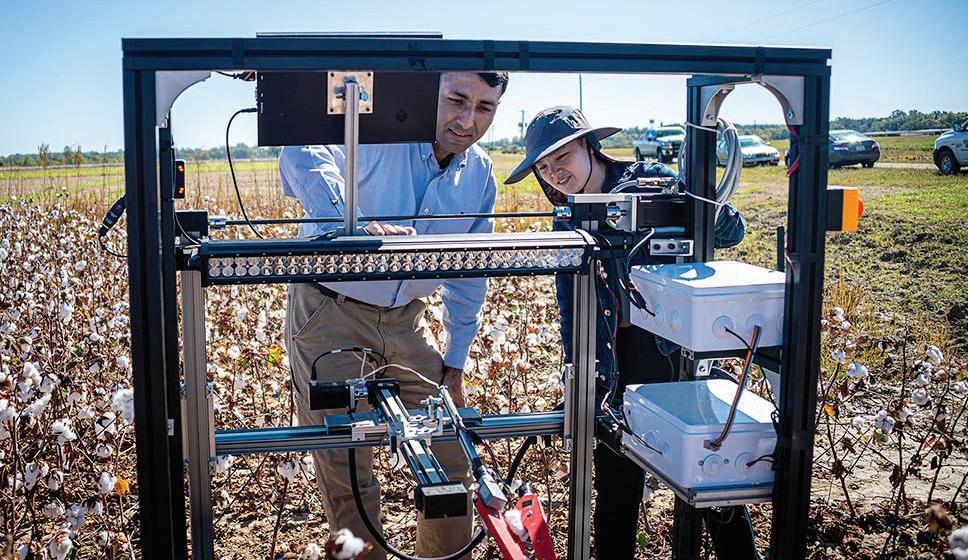
An MSU-developed robot is a potential game-changer for agriculture not just in the Cotton Belt—but worldwide—and could bring the more than $38 billion global industry away from the farm labor shortage to artificial intelligence-based autonomous systems.
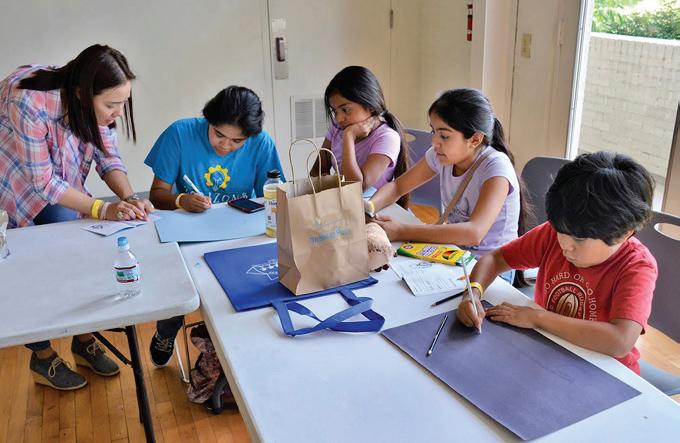
More than $4 million in federal funding is enabling Mississippi State University to continue meeting the educational needs of migrant children across the state through the Mississippi Migrant Education Service Center. Administered by the Mississippi Department of Education, the five-year grant supports MSU’s ongoing efforts to provide supplemental academic and support services to agricultural migrant families throughout the state. Anchored in MSU’s College of Education, the service center has received federal funding since 2006 to ensure migrant children have access to all opportunities offered by a public education.
Mississippi State’s Department of Chemistry is touting another prestigious grant—$1.4 million—from the National Science Foundation, positioning faculty to advance scientific exploration at the land-grant university through NSF Major Research Instrumentation Program-funded projects. Professor Dongmao Zhang is the third chemistry faculty member this year to receive a grant from the NSFMRI Program, Chemistry Research Instrumentation Program, and the Established Program to Stimulate Competitive Research, or EPSCoR. He is the first MSU faculty member in recent years to acquire MRI funding specifically for instrument development. The other two chemistry projects with MRI funding are for instrument acquisition. All three 2023 grants total more than $4 million.
ALUMNUS.MSSTATE.EDU 23
EN POINTE
Mississippi State hosted The Hiplet Ballerinas Company as part of the university’s annual Lyceum Series. The professional dance troupe out of the Chicago, Illinois, Multi-Cultural Dance Center combines traditional ballet techniques with elements of African, Latin, hip-hop and jazz dance styles. The dancefusion style evolved from the “Rap Ballet” of the 1990s and is specifically designed to make ballet accessible to all people and relatable to modern audiences. — Photo by Grace Cockrell

24 SPRING 2024 State SNAPSHOT

ALUMNUS.MSSTATE.EDU 25
STATE’S PREMIER RESEARCH UNIVERSITY DRIVES ECONOMIC GROWTH IN MISSISSIPPI
By Susan Lassetter

26 SPRING 2024

VIVA RESEARCHVEGAS, BULLDOGS!
What happens in Starkville, doesn’t stay in Starkville. It changes the world.
“We have scores of people from all over the country— really, the world—who visit MSU. When we show them our capabilities and how we share what we do, it changes their perception of Mississippi,” explained Julie Jordan, MSU’s vice president for research and economic development. “When companies and agencies realize what we’re capable of and the ways we innovate, they want to be in business with Mississippi and MSU.”
As head of Mississippi State’s research activities, Jordan supports more than 4,000 Bulldogs—equal to the population of many small Southern towns. Together, this group, which only includes MSU faculty, staff and students engaged in the research sector, was responsible for directly putting more than $319.7 million into the economy during fiscal year 2023.
Put into context, it is more than a 5% increase over the FY 2022 number that ranked Mississippi State in the National Science Foundation’s Top 100 research universities. It also accounted for more than half of the $565.3 million spent by Mississippi universities for research and development. And while the national FY 2023 reports and rankings for higher education R&D expenditures will not be available until later this year, Jordan is already proud of the university’s impact.
“This is the most Mississippi State has ever reported for R&D expenditures, and we lead all of the universities in the state,” Jordan said. “But what’s important here isn’t just that we’re reporting our largest ever research spending—it’s what we’re spending it on.
“We’re not just doing projects to gain prestige,” she continued. “We’re working to solve problems, and we’re putting those innovations out into the world to make businesses more profitable and keep jobs in Mississippi.”
A CATALYST FOR ECONOMIC
GROWTH
Like any economic hub, the impact of ResearchVegas doesn’t stop at the university’s borders—it branches out to help raise the profile of the entire region.
Beyond MSU’s direct spending on R&D, there’s a ripple effect. For example, the university’s 4,000 research-related employees mean more people in Starkville purchasing goods and services. And much like Bulldog sporting events bring tourist dollars to StarkVegas during home games, ResearchVegas helps fill hotels, restaurants and stores with conference attendees, visiting scholars, funding agency representatives, and current and future MSU faculty, staff and students.
The ripples continue as ResearchVegas’ students disperse into the region as interns and cooperative education
ALUMNUS.MSSTATE.EDU 27
employees ready to use their knowledge and problem-solving skills to address realworld challenges. These students then become graduates who become a highly sought after workforce for highly sought after, competitive jobs.
Joey Deason, executive director of the Madison County Economic Development Authority, said access to these top-tier minds is one of the ways proximity to MSU helps recruit new industry to the Magnolia State.
“When we’re recruiting industry, we’re looking to create jobs and an investment for the community,” Deason said. “And it’s not just any jobs, we’re looking to bring in business that will create jobs that pay more than the average Madison County wage is today. That means we’re looking to recruit those companies that will pay above $26 per hour.”
Deason explained the presence of MSU and the university’s reputation as a scientific leader helps reassure those companies that they will be able to fill those high paying jobs if they locate to Mississippi. He pointed to the game-changing arrival of Nissan in the early 2000s and the recently announced $10 billion Amazon Web Services data center as examples of how Mississippi State contributes to securing new business.
He cited the university’s Center for Advanced Vehicular Systems as a key component of attracting both Nissan to Madison County and Toyota to Blue Springs. The arrival of the former helped cement Mississippi State as a leader in applied research when the Mississippi Legislature and the university created CAVS-Extension in Canton, a ready-made resource for addressing issues that arise in manufacturing and product development.
Similarly, the Amazon Web Services investment—which is more than four times the size of the previous largest capital investment in Mississippi—will help MSU become one of the South’s go-to universities for technological advancement.
“AWS understands the value of partnering with universities and our ability to provide a well-educated, technical workforce,” Jordan said. “This proves that the kinds of companies we are attracting, and will continue to attract in the future,
are high tech. And in preparing the hightech workforce for the future, we will expand our capabilities and research in these areas, which will not only help these new arrivals but existing Mississippi businesses as well.”
‘FUTURE PROOFING’ THE ECONOMY
Considering economic indicators, developments in technology and what types of research are being supported globally, Jordan said it’s easy to see that the jobs of the future will be more and more technical—and that will affect how everyone operates.
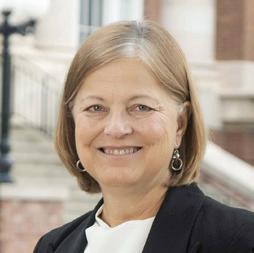
can help today’s manufacturers avoid in the future.
“I’m old enough to remember when the industry that supported most small, Southern towns was textiles,” Jordan explained. “Our economy ran on cut-andsew, so when those plants shut down, those people lost their jobs and the buildings sat empty. It was a huge loss to those communities.”
Today, she said, Mississippi has approximately 1,500 companies that selfidentify as manufacturers. Many have fewer than 100 employees but are the backbone of their rural communities. Jordan said it’s essential to protect those jobs, which are very important not just to the employees but also their families and the communities in which they live.
"If these companies want to remain competitive, they’ve got to automate. And using our research and our researchers, we can help them find ways to use these emerging technologies to be more efficient and remain competitive." ~ Julie Jordan
“How we apply technologies like artificial intelligence, automation and robotics will change almost every business, in every sector, over the next 20-30 years,” Jordan explained. “The university is positioned to be a leader in that. With the work that we do, we can increase the competitiveness of our state, create new opportunities for our citizens, and help existing business and industry to be more successful.”
Jordan calls it “future proofing”— helping small and medium enterprises embrace emerging technologies to make their operations more efficient, resilient and competitive with larger businesses that traditionally adapt more quickly to a changing marketplace.
Jordan said she remembers when the South’s economy was rocked due to a failure to evolve with the changing economic climate. It’s something she thinks MSU
“A lot of these businesses are still doing things by hand the way they were when they started 30, 40 or 50 years ago. But within those industries—almost all industries— automation is changing things,” Jordan continued. “If these companies want to remain competitive, they’ve got to automate. And using our research and our researchers, we can help them find ways to use these emerging technologies to be more efficient and remain competitive.”
Mississippi State’s “future-proofing” research efforts start with developing new technologies and exploring new uses for emerging technology in applied settings. This crosses many academic disciplines, involves numerous research centers and includes building artificial intelligence platforms, advances in autonomous machines and vehicles, and performance enhancing products and methods meant to improve worker safety and productivity.
28 SPRING 2024

ALUMNUS.MSSTATE.EDU 29

These research projects receive funding from state and federal agencies, as well as grants from organizations and private enterprises. The work results in peer-reviewed
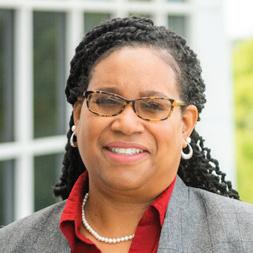
businesses to help them make sense of and apply these cutting-edge advances.
Tonya McCall said CAVS-E, which is part of the Mississippi Manufacturers
“We work with manufacturers of all sizes who are interested in making improvements to their operations. We provide pragmatic solutions to issues they are facing, bridge communication between our industry partners and academic partners, and assist with the implementation of new manufacturing processes.” ~ Tonya McCall
academic publications and conference presentations, which can earn researchers additional funding for future projects. And while these academic results are great, they’re not easily accessible to everybody. That’s why Mississippi State has partnerships with area industry and reaches out to incoming
Association Manufacturing Extension Partnership, helps connect companies with MSU resources that can support their enterprise. That can mean identifying scientists who can find solutions to a production problem, providing workforce training, or helping implement new,
best practices for improved resource management.
“We work with manufacturers of all sizes who are interested in making improvements to their operations,” explained McCall, who is director of CAVS-E. “We provide pragmatic solutions to issues they are facing, bridge communication between our industry partners and academic partners, and assist with the implementation of new manufacturing processes.”
ABB Motors and Mechanical Inc.’s Columbus facility is one of dozens of groups that partner with CAVS-E each year. Formerly known as Baldor Electric Co., ABB manufactures electric motors and sought the university’s expertise in smart connectivity and ways to use ergonomics to improve the on-job experience of its 300 employees.
While the company can’t publicly release specific outcomes, operations site manager Suzanne Mitchell said the work with MSU has improved efficiency and employee satisfaction within the facility. The partnership has also helped ABB find new employees.
30 SPRING 2024
“There are students working on our projects at MSU as undergraduates and we’re able to hire them once they graduate,” Mitchell said. “They’re able to walk in the door, know what we do and get started.”
McCall said having these relationships with businesses in Mississippi is at the heart of the center’s mission. Since its creation, CAVS-E has had an estimated $7 billion impact on the state’s economy, including helping to create or retain more than 7,000 jobs.
“In everything we do, our focus is helping Mississippi businesses be successful and competitive,” she added.
BETTING ON THE FARM (AND FOREST)
Industrial manufacturers aren’t the only ones who benefit from access to ResearchVegas. The state’s agricultural and forestry industries also reap big rewards, with MSU-based science as their ace in the hole.
Keith Coble, vice president for MSU’s Division of Agriculture, Forestry and Veterinary Medicine, explained that the Magnolia State’s agriculture and forestry industries are responsible for adding more than $16 billion to the Mississippi economy annually. So, when it comes to the success of producers in the state, they’re not betting the farm—they’re betting on the farm’s ability to bring financial stability to the table.
“Agriculture and forestry are a big part of the Mississippi economy,” Coble said. “It is responsible for more than 18% of the state’s economic activity and affects the daily life of almost every Mississippian, from the people employed directly by farms, foresters and processing facilities to the people who consume the goods and products they produce.”
As an example, Coble points to the university’s research in avian influenza, commonly called bird flu. Carried by wild fliers, the virus can infect the flocks on poultry farms leading to sickness and death among the livestock. This ultimately impacts not only the bottom line of poultry producers but also leads to scarcity and higher prices for both meat and eggs at the grocery store.
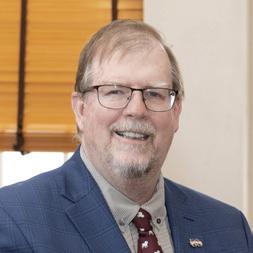
“We do very applied research as part of our land-grant model, and then we disseminate it to the people of the state. That’s what makes the partnership we have between our researchers and Extension faculty and staff unique. We do the research, then our Extension partners make it available to the people who can benefit from it.” ~ Keith Coble
Recognizing the impact of such diseases, scientists in MSU’s Department of Poultry Science and College of Veterinary Medicine worked to find ways to aid poultry farms in protecting their flocks. Mark Leggett, president of the Mississippi Poultry Association, said these efforts were imperative in the continued success of the state’s 1,430 poultry farms, which employ more than 25,000 people.
“MSU’s faculty and staff are involved in educating both poultry companies and growers about the best research-based practices,” Leggett said. “The testing done by the College of Veterinary Medicine is a key factor in identifying poultry diseases to quickly prevent their spread.”
Coble said that is just one example of MSU’s research-based impact on the state’s commodities, from the fields to the ponds to the forests.
Mississippi’s soybean industry continues to benefit to the tune of more than $1 billion annually thanks in part to the late 1990s intervention of MSU scientists that changed the way soybeans were grown in the Magnolia State. The science developed at MSU, which was then shared with growers by MSU Extension Services, turned a lowyield, economically risky crop into an annual $1.5 billion economic driver.
“We do very applied research as part of our land-grant model, and then we disseminate it to the people of the state,” Coble explained. “That’s what makes the partnership we have between our researchers and Extension faculty and staff unique. We do the research, then our Extension partners make it available to the people who can benefit from it.”
Bulldog researchers have developed vaccination technology to protect the state’s farm-raised catfish from a commonly occurring bacteria that was wiping out whole ponds. And a new MSU-developed production system has more than doubled catfish production in the Delta.
Meanwhile, MSU faculty-developed Mill Site software is improving productivity in the wood products industry by identifying the best locations for processing facilities. Weighing factors including raw materials, transportation, utilities and labor, the software can in minutes provide the decision-making insights it would take days to compile by hand. This helps economic developers in the state know when their municipality would be a good fit for a company and produce incentive packages to help draw new business to the area.
“The Mill Site software is an excellent addition to our economic development toolbox that has helped attract new forestry manufacturers to Mississippi,” explained Casey Anderson, executive director of the Mississippi Forestry Association. “We are confident this technology will help us recruit even more manufacturers to our state in years to come.”
Yes, there’s something for everyone in ResearchVegas, the South’s scientific playground, where MSU is investing in the future and letting it ride.
“At MSU, we support our research because our research supports the state,” Jordan said. “It’s part of our mission as a land-grant university and a good steward of the public’s investment. We’re here to raise the profile of our state and our people and secure a better future for tomorrow.”n
ALUMNUS.MSSTATE.EDU 31
MISSISSIPPI STATE UNIVERSITY—THE RESEARCH CAPITAL OF MISSISSIPPI

Before a university can put money into the economy in the form of research expenditures, it must first secure financial investments to support that work.
Mississippi State leads all eight members of the Mississippi Institutions of Higher Learning in bringing research dollars into the state.
In the latest IHL report, all Mississippi four-year universities reported $636 million in research funding earned in fiscal year 2023. More than 33% of that was brought in by Mississippi State University.
As the state’s most successful university at securing research dollars, the Bulldogs’ $278.3 million was over $100.8 million more than the next closest reporting institution— the University of Mississippi, whose numbers include projects from the University of Mississippi Medical Center.
Mississippi State also accounted for more than a third of the state’s 2,127 funded, research projects reported for FY 2023.
“When someone is ready to invest in research, whether it’s in the ag
sector, engineering or social sciences, we want them to know that Mississippi State University is here and ready to do the work,” explained Julie Jordan, MSU’s vice president for research and economic development.
“We have valuable expertise and leading-edge capabilities that allow us to use these investments to create jobs in Mississippi and produce results that will improve people’s lives and solve the challenges of today’s world,” she added.
In FY 2023, foundations and nonprofit groups were responsible for the biggest investment at Mississippi State with $12.5 million for 165 different projects. The U.S. Department of Transportation came in second with $9.3 million for nine projects.
These grants and awards, which often account for millions of dollars each, typically cover work that will occur over several years’ time. This means a $5 million grant secured in FY 2023 for a five-year project could influence research expenditures through FY 2027.
“We’re conscious of making sure
that our sponsor’s investment is spent in a way to have the biggest impact,” Jordan explained. “Being good stewards of that funding means making sure each dollar is spent wisely and with purpose, all in service of finding answers and advancing science to the next level.”
Jordan said the breadth of MSU’s capabilities and its dedication to applied work that has real-world impacts makes the university an ideal partner for private and governmental organizations alike.
When it comes to securing a better future and addressing the needs of today, MSU is taking care of what matters.
“As a land-grant institution, we live by three principles: service, learning and research. And our research division takes all three to heart,” Jordan said. “We’re not just conducting research. We’re using that scientific discovery to ensure our students learn latest developments in their fields, and we’re serving communities by getting those advances in the hands of people who can use them to improve lives and livelihoods across the globe.” n
32 SPRING 2024
“I was able to customize my degree while fast-tracking to the finish line, all while incorporating what I’ve learned along the way.”
~ Molly Chunn

Always Learning
New College of Professional and Continuing Studies positions MSU for the future of higher education
By Carl Smith, Photos by Grace Cockrell
Like many professionals, Brandy Renfroe wanted more career opportunities. Although she possessed decades of experience as a graphic designer, she lacked a bachelor’s degree and was unable to advance in her field.
Job requirements, just like the scope of her work, had changed since she earned an associate degree in
commercial art from Hinds Community College in 1998. Now handling desktop publishing and database management duties, Renfroe wanted a chance to continue her education and tailor it to her new responsibilities. Her options were limited until her employer, the Madison-branch of V2X Aerospace and Aviation, offered a college reimbursement benefit for its employees.
ALUMNUS.MSSTATE.EDU 33
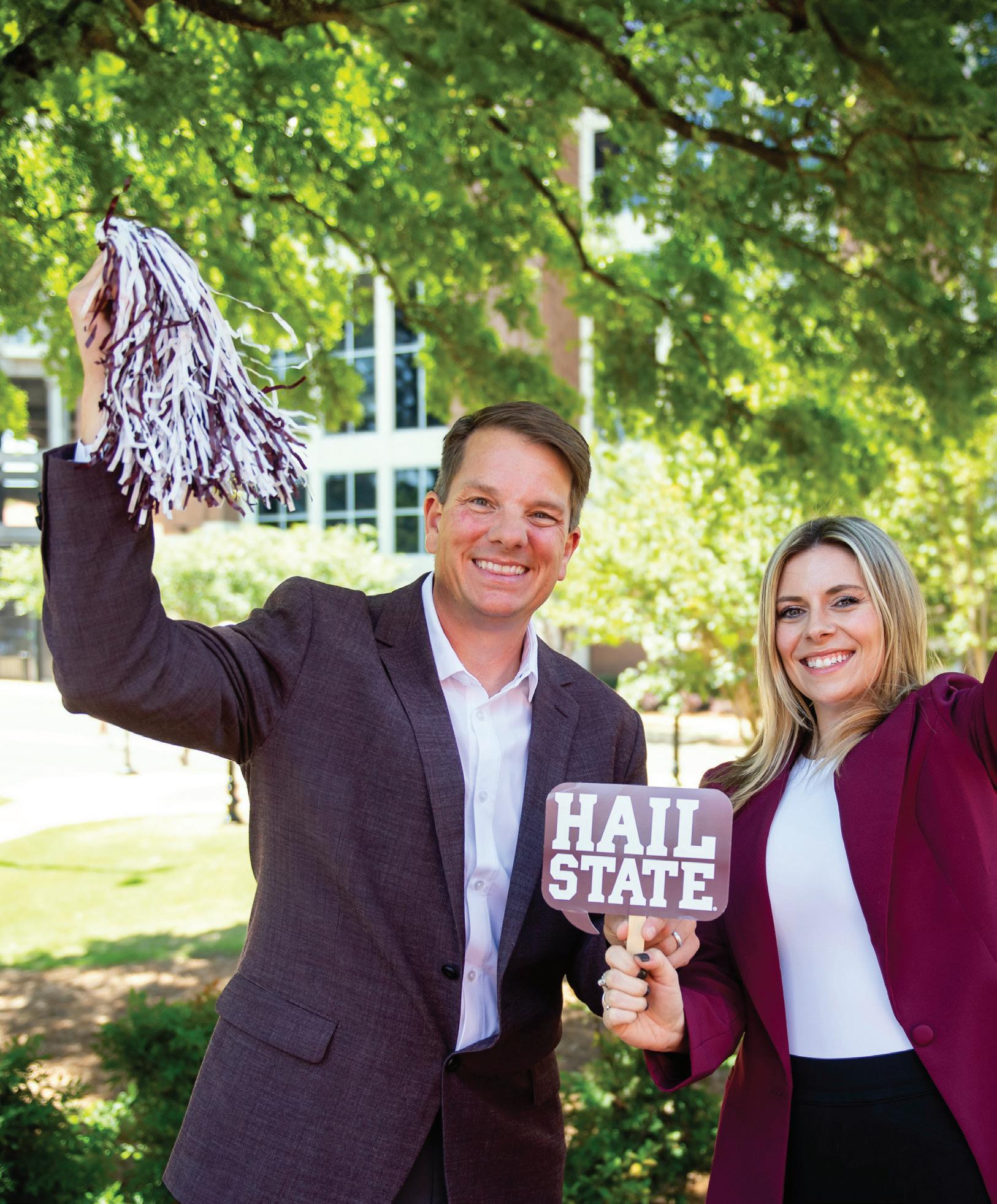
“We’re
waking up every day and thinking about the adult learner—how to reach them and how to better serve them . . . We’re always trying to find the ways we can meet the needs of people where they are in life.” ~ Sean Owen
34 SPRING 2024

Renfroe seized the opportunity once her children graduated from high school. She chose MSU’s online Bachelor of Applied Science program because it was “a perfect fit” for her needs. Two years later, she earned a bachelor’s degree and was part of the first class of more than 40 students to graduate from MSU’s College of Professional and Continuing Studies.
“I always wanted to go to State, and it was an easy transition. Because of my background and what I do for a living, everything was already geared toward me," she said. "My degree’s focus on technology gave me the additional skills I always wanted, and my experience with MSU was phenomenal. The teachers were all understanding and worked with me if I had problems. There wasn’t a single time MSU didn’t offer to help when I needed it.”
Established in 2023, the CPCS is positioning MSU to better serve nontraditional students— especially learners who want to apply their associate degrees at a four-year university, working professionals seeking to learn new skills and advance their careers, and those who simply aren’t interested in typical face-to-face instructional settings. By offering tailor-made learning experiences, Mississippi State’s newest college is meeting students on their own schedules, terms and needs.
The college is a blend of services offered by MSU’s Center for Distance Education and the Center for Continuing Education. It offers Bachelor of Applied Science degrees in public management and business office technology, as well as noncredit continuing education courses, credentials and enhanced student success services. It also supports MSU’s other colleges as the university continues to expand how it delivers educational offerings now and into the future.
“Higher education is changing faster than it ever has, and Mississippi State is preparing for the future through the College of Professional and Continuing Studies by creating access for all potential students, no matter their age or situation,” said Susan Seal, dean of the new college. “Adult learners want new careers and opportunities, or they’re looking for personal enrichment. There’s a desire from people all along life’s spectrum, from those in the workforce to retirees, for continuing education. We’re showing Mississippi State has a place for them.”
While most picture the stereotypical college student as a recent high school graduate, the actual population of those traditional students is much smaller than the population of potential
adult learners. There are currently 13 times the number of adult learners in the U.S. than freshfaced traditional college students. Almost 25% of undergraduates nationwide are categorized as adult learners as of 2022, according to the National Center for Education Statistics’ Integrated Postsecondary Education Data System.
But what is the profile of a nontraditional adult learner? These students, typically age 25 or older, include working adults, particularly those who are place-bound and cannot easily access an institution of higher learning’s physical campus; those with college credits who did not complete a degree; those seeking applied and industry-focused degrees; or those seeking to reskill for new careers, advancement or to remain current in their fields.
According to the Chronicle of Higher Education’s 2022-23 Almanac, 63% of Mississippians over 25 years old have a high school diploma and some college credits but no bachelor’s degree.
“We’re waking up every day and thinking about the adult learner—how to reach them and how to better serve them,” said Seal, who noted the average age for the university’s distance education students is 32. “Most of them are working, have families and are busy with all of the things life has to offer. They have different support needs, and we must make sure they have flexibility. We’re always trying to find the ways we can meet the needs of people where they are in life.”
‘Constantly Moving’
Sean Owen likes to quickly find solutions.
The CPCS associate dean is one of many within the new college tasked with building relationships with industry, community college partners and economic development stakeholders across the Magnolia State and Southeast. His goal is to identify ways MSU can provide the skills workers need for jobs today and in the future.
The end result, he said, could come through MSU’s ability to offer new pathways to industry including standard certificates, certifications and licensures.
While many companies require degrees from accredited institutions of higher learning, a growing number of skills-based trades require industry-recognized certificates of competency, certifications reflecting skills mastery, or licenses for specific jobs. Examples of these range from the National Restaurant Association’s ServSafe food safety certifications to a license issued by the Mississippi Board of Nursing.
As Owen meets with business leaders across the state, he not only hears about the needs
ALUMNUS.MSSTATE.EDU 35
L-R: Sean Owen, CPCS associate dean, and Maddie Ludt, a recruiter for CPCS
specific to individual companies but he also sees the big picture requirements of industry as a whole. These relationship-building ventures include a recent trip to Chevron’s Pascagoula facilities, where he and company leadership explored several ideas—from accepting credits from prior learning to forming cohorts of students assigned to classes with deadlines that fit their specific on-and-off work schedules— that would give employees practical access to continuing education opportunities, including these credentials.
“Dr. David Shaw tasked us with moving fast and creating these opportunities because they’re going to allow us to build better relationships with and become embedded within these communities,” Owen said. “We’re constantly moving and adjusting. We’re always asking, ‘What can we do?’ and ‘How fast can we get it out there and do it right?’”
Owen said addressing the age-old issue of the skills gap—the disconnect between the skills taught in educational programs and the skills actually needed by employers in rapidly evolving industries—takes building momentum.
This momentum, he said, can also be built by students as they progress through the new college. Owen said he wants to have educational pathways that include classes embedded with credential-earning opportunities that can then snowball into certificates and, eventually, a degree.
If specific classes provide credentials and certificates, Owen said, nontraditional students are more likely to continue their college experience if they are forced to take a break because of work or life reasons.
“They could look back and say, ‘MSU gave me this entry-level project management certification,’ for example, ‘and that actually gave me a pay bump in the job I’m already doing. That was worth it,’” Owen said.
“It’s about building traction toward future success and showing them their time at MSU is worth the investment,” he continued. “This goes back to the importance of building positive experiences. I’ve seen more people— whether it’s parents or students; industry leaders; or community college faculty, staff and administration—look at MSU differently, as a more empathetic, relational partner, just because we’re trying to make things work for them.”
Offering access to new career pathways, building industry relationships and focusing on
the needs of nontraditional students will allow MSU to become a leader in education for all, Owen said.
“The education we can provide will tell students that when they attend Mississippi State, they will walk out with the skills that jobs and industry want," he said. "It also tells employers that MSU graduates are ready, Day 1, for their professions. When we talk about taking care of what matters, this is how we do it.”
Customized & Quick
When Molly Chunn was picking a major at MSU in 2022, time was of the essence.
Chunn had recently earned an associate degree in drafting design and 3D modeling from Northeast Mississippi Community College and was interested in a variety of fields ranging from architecture and interior design to MSU’s renowned engineering programs. Picking one of these programs, however, would be problematic to the graduation timeline she envisioned. Many of her technical classes would not transfer into these majors, and Chunn did not want to reset the clock on her college career.
That’s when she discovered MSU’s applied science bachelor’s program. The BAS degree accepted almost all of her NMCC general education and technical credits, which shaved almost three years off her projected time at MSU.
“At the time, I was looking at changing directions from just sitting at a desk for eight hours to something new, but I still wanted to be able to use what I had done at Northeast and my new skills,” Chunn said. “I was able to customize my degree while fast-tracking to the finish line, all while incorporating what I’ve learned along the way.”
The program also allowed her to live the best of both worlds. Chunn’s parents insisted she “get the full college experience,” so she lived in Starkville for a year before returning to be close to her loved ones in Tupelo for the rest of her undergraduate tenure.
Chunn, who is a senior, said her CPCS experience inspired her to seek an online master’s degree in the future.
“State has given me opportunities that I never expected,” she said. “This experience allowed me to be able to live my life and pursue my degree at the same time. I’m extremely thankful that I’m able to be where I am right now in life, and that’s because of MSU.” n

36 SPRING 2024
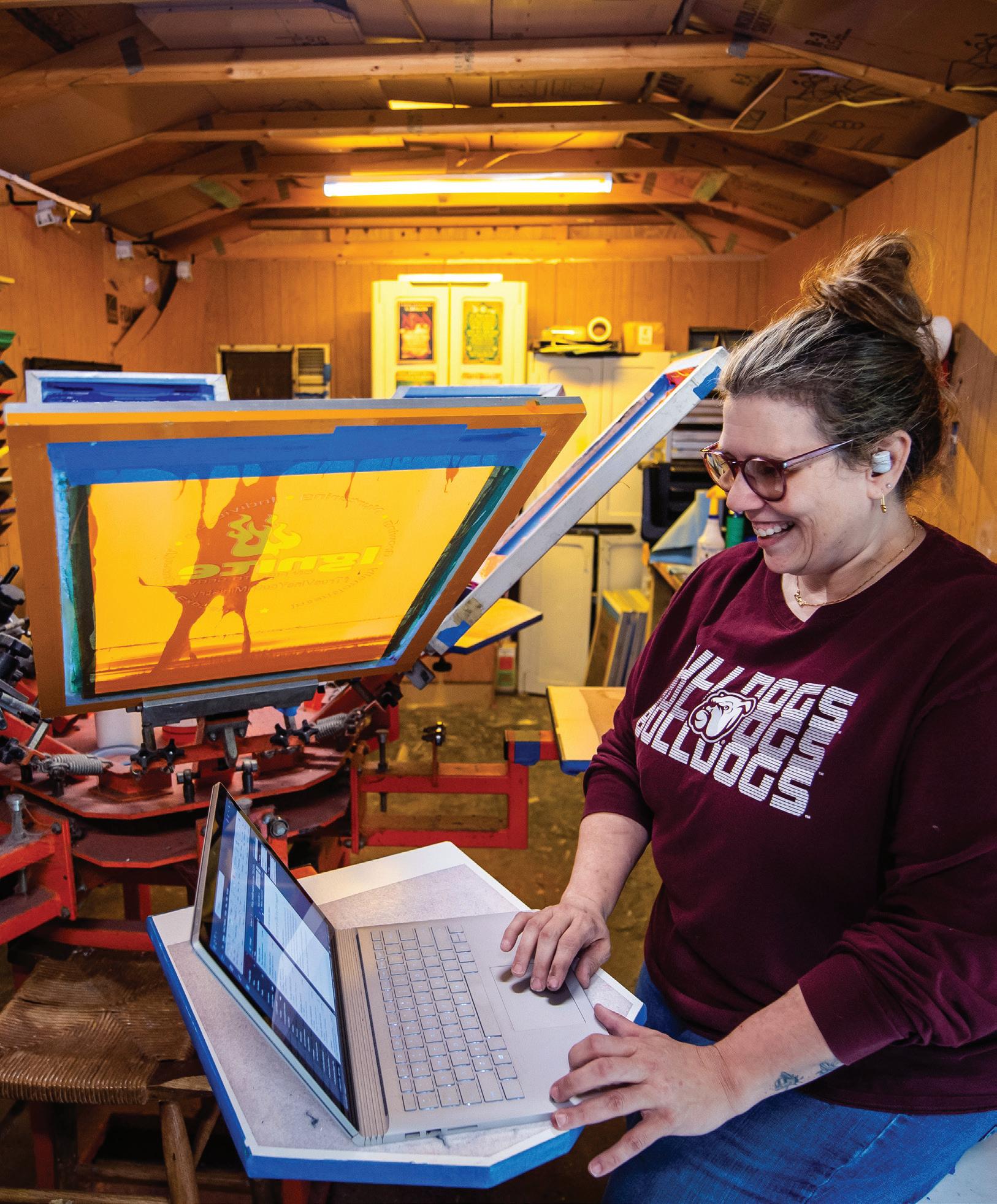
“My experience with MSU was phenomenal. The teachers were all understanding and worked with me if I had problems. There wasn’t a single time MSU didn’t offer to help when I needed it.” ~
Brandy Renfroe
ALUMNUS.MSSTATE.EDU 37
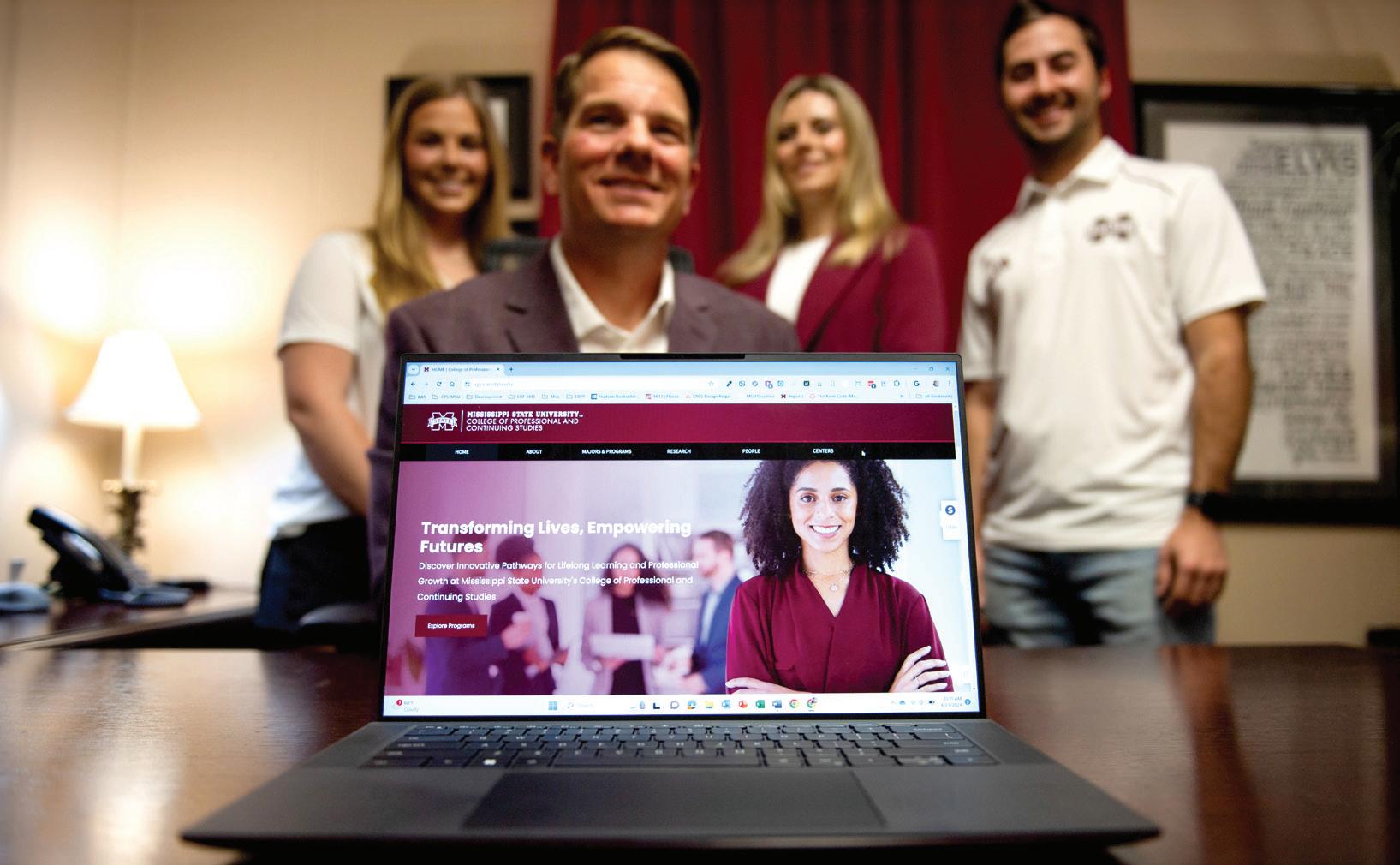
FIVE TIPS FOR ONLINE LEARNING
FIVE TIPS FOR ONLINE LEARNING
Going back to college can be daunting for anyone, especially adult learners whose last formal, educational experiences might have been years, if not decades, prior.
Kali Dunlap, an instructor and adviser with the Mississippi State College of Professional
SET CLEAR GOALS AND EXPECTATIONS:
State why you’re pursuing your degree and what goals you’d like to achieve upon degree completion. Having clear goals will keep you motivated and focused during your academic journey.
CREATE A REALISTIC SCHEDULE: Balancing work, family and college studies can be challenging. Develop a realistic schedule that allocates time for coursework in addition to other commitments. Be flexible but also disciplined in following your schedule to ensure steady progress.
STAY ORGANIZED AND MANAGE TIME EFFECTIVELY: Use organizational tools such as calendars, to-do lists and apps to keep track of assignments, deadlines and important dates. Effective time management is key to juggling multiple responsibilities successfully.
and Continuing Studies, said preparing for a successful return to learning can simply be a matter of preparation and knowing when to seek help.
She offers the following tips to help online or adult learners find success back in school.
UTILIZE AVAILABLE SUPPORT SERVICES:
Take advantage of the support services offered, such as academic advisers, the MSU Career Center and online resources. These services are designed to help you succeed academically and navigate other challenges you may face.
PRACTICE SELF-CARE AND MAINTAIN WORK-LIFE-STUDY BALANCE: Remember to take care of your physical, emotional and mental well-being throughout your educational journey. Set aside time for relaxation, exercise, hobbies and spending quality time with friends and family. Establishing boundaries between work, school and your personal life is essential to avoid burnout while still achieving your goals.
38 SPRING 2024




State alumni. A great m e

OFF OFF SENIOR LIVING: IN-HOME SERVICES:
monthly fee/basic service rate*
SHORT-TERM STAY: %
DISCOUNTED RATES VARY BY COMMUNITY***
Applicable to all discounts: Residents under a Life Care Agreement are not eligible for the discounts. These discounts do not apply to any room, board or services which are paid for all or in part by any state or federally funded program. Discounts are available to alumni and their family members, including spouse, adult children, siblings, parents, grandparents, and corresponding in-law or step adult children, siblings, parents, and grandparents through current spouse. Subject to availability. Further restrictions may apply.
*Discount is only applicable to new residents of a Brookdale independent living, assisted living, or memory care community admitting under an executed residency agreement. Discount applies only to the monthly fee/basic service rate, excluding care costs and other fees and is calculated based on the initial monthly fee/basic service rate.
**Discount is only applicable to new clients of personal assistance services by a Brookdale agency under an executed service agreement.
***Discount is only applicable to new residents of a Brookdale assisted living or memory care community admitting under an executed respite agreement. Discount applies to the daily rate.






• Serving communities for over 70 years
• Located in all 82 counties of MS, across the southeastern US, and Colorado
• Philanthropic supporter of MSU, Mississippi area high schools, and other institutions of higher learning
Not only will alumni and friends benefit from various insurance options offered by Farm Bureau, but this relationship will enhance the Association’s mission to strengthen the connection between the Bulldog Family and MSU through events, programming, and other services.
ALUMNUS.MSSTATE.EDU 39 796550 HVS ©2023 Brookdale Senior Living Inc. All rights reserved. BROOKDALE SENIOR LIVING is a registered trademark of Brookdale Senior Living Inc.
Visit brookdale.com/MSU to learn more!
service rate
services**
for in-home
for Mississippi
7.5% 10%
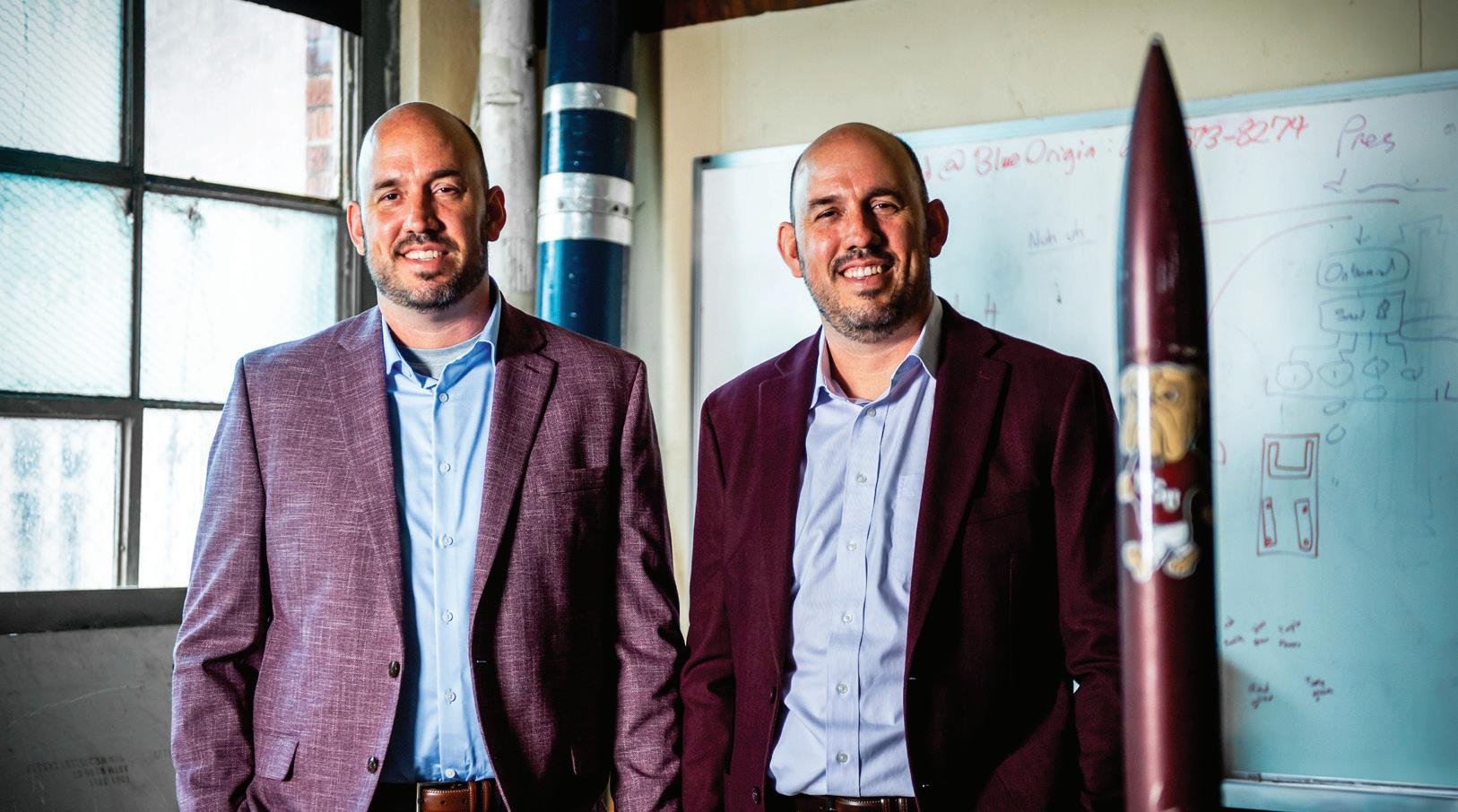
A PACKAGE DEAL
Weathers brothers help NASA return to the moon
When Boeing engineers need help, they have some of the best problem-solvers in the world on call—including twin Bulldogs who not only have a reputation as some of the company’s best brains but are also putting their minds to work helping NASA return to the moon.
Starkville natives Jeff and Jim Weathers hold five degrees from Mississippi State and serve as one another’s biggest support system. Throughout their lives, they’ve used each other as a sounding board for ideas, helping navigate complex engineering issues encountered as both students and professionals. After more than 25 combined years at Boeing, management now calls on them—usually as a package deal—to resolve engineering issues throughout the entire company’s ecosystem.
“They don’t really differentiate between Jim and Jeff,” Jim Weathers said. “We’ll get an email that has us both copied on it saying, ‘Hey, can we get the Weathers brothers to help us out with this?’"
Story by Carl Smith, Photo by Grace Cockrell
“Sometimes it’s a missile or a rocket, or it could be an airplane, space vehicle or satellite,” Jeff Weathers added. “If you told me years ago that I would be able to put my stamp on things ranging from ballistic missiles to a spaceplane or the biggest rocket ever built, I would have said you were crazy.”
Both brothers are members of Boeing’s Technical Fellowship, which represents the top 3% of the company’s technical and scientific community. In addition to providing technical support within the company, as fellows, they also mentor young engineers coming up through the Boeing ranks.
“I think the opportunity to teach younger analysts and engineers—to mentor and help them in their careers—has been a wonderful experience,” Jim Weathers said. “Seeing them flourish and do better is probably the best part of my job.”
Mentoring future Bulldog engineers, both brothers said, holds a special place in their hearts. The siblings have returned
to Starkville numerous times for company outreach efforts and guest lectures. They even led a senior design project for five MSU mechanical engineering students and toured them throughout NASA’s Marshall Space Flight Center in Huntsville, Alabama, and the nearby Boeing campus.
“Those students were a lot like I was when I was an undergraduate. Witnessing them seeing some of the biggest rocket test stands ever constructed and experiencing what opportunities await them after college— that really gets me excited about getting more involved with mentoring Mississippi State students,” Jeff Weathers said. “What motivates me the most right now is collecting all of the things I’ve learned and distributing them to the people who are going to replace me when it’s time for me to enjoy my retirement.”
Aside from troubleshooting and mentoring, the Weathers brothers’ biggest claim to fame is their work for Boeing on NASA’s Artemis program—the space agency’s plan to reestablish America’s presence on
40 SPRING 2024
Our PEOPLE
Mississippi State’s Starkville campus is home to a “moon tree,” an American Sycamore grown from seeds that were used in experiments in outer space.
the moon for the first time since the Apollo missions of the 1960s and ’70s. For more than a decade, they worked as structural analysist leads on the Space Launch System— the large, heavy-lift rocket NASA will use as the workhorse for the Artemis program.
Now, the brothers are supporting the development of the SLS Exploration Upper Stage—a four-engine upper stage facilitating missions to the moon, Mars and beyond.
“The Exploration Upper Stage is one of the coolest things I’ve ever worked on,” Jeff Weathers said. “A lot of that hardware has been developed and analyzed by us. To go from a blank slate to what it is now—that’s the most amazing opportunity we’ll ever get in our careers."
“And development of the largest rocket that’s ever existed is a once-in-a-lifetime opportunity, too,” Jim Weathers added. “Analysts and designers in our field can go their whole careers without having any kind of opportunity like that. The fact that we were lucky enough to be leads on that program—it’s crazy.”
For their efforts, NASA awarded the brothers the prestigious Silver Snoopy
sterling silver lapel pin, which is given to employees and contractors who have significantly contributed to the space flight program in ensuring both safety and success. Less than 1% of NASA’s workers or contractors receive the annual award.
Both Jim and Jeff attribute their professional successes to their upbringing in academics and university life. The sons of MSU retirees, the brothers were plugged in to higher education from an early age. Engineering wasn’t either brother’s first choice of a major—Jim Weathers started his undergraduate career majoring in turfgrass management, while Jeff Weathers planned to graduate with a degree in wildlife, fisheries and aquaculture—but both said the math and science came naturally to them.
“That lasted about a semester because we realized it was more fun to us than anything and we probably ought to consider using our talents to make a living,” Jeff Weathers said. “We didn’t coordinate going into mechanical engineering; we just came to the same conclusion simultaneously."
“We’ve always been tinkerers—taking
things apart just to see how they work and putting them back together again,” Jim Weathers continued. “Choosing engineering just made sense.”
Using each other as points of support and collaboration—and sometimes as competitive motivation—gave them a unique path through their collegiate careers. Eventually, both earned bachelor’s and master’s degrees from MSU. Jim would also earn a doctoral degree from the university, while Jeff Weathers followed a favorite research professor to the University of Alabama, where he earned a doctorate.
“Being at MSU really provided the foundation for us to believe that we could go out and change the world. We had great people who showed us that there’s nothing stopping us as long as we have our education. We graduated with all the tools we needed to go out and do what we wanted,” Jim Weathers said.
“We realized that if we worked hard enough and if we tried to make a big enough impact, we could do whatever we wanted. We could write our own ticket," he continued. "The journey has been a blast.” n
PAVING THE WAY FOR NEW OPPORTUNITIES
When Jim and Jeff Weathers speak of their childhoods in Starkville, they paint a picture of an idyllic, small-town life centered around the Mississippi State campus.
The children of MSU employees, they specifically recalled afternoons at the campus pool in the “Tin Gym” while their mother worked in nearby Dorman Hall.
Since then, that sector of campus has experienced many big changes, including the demolition of buildings to make way for new buildings and features to take Mississippi State into the future.
The latest change saw the demolition of the McCarthy Gym in 2022 to allow for the construction of the Duff
Center, a centralized home for the university’s Autism and Developmental Disabilities Clinic, Disability Resource Center and Department of Kinesiology.
Named for Jim and Tommy Duff, who gave the cornerstone gift of $15 million for the new construction, the center will be a resource for Mississippi children and families. The 100,000-square-foot facility will boast state-of-the-art offices, classrooms and laboratories to enable hands-on training for students and provide programs to aid those with physical and developmental disabilities—allowing those families and students to make their own precocious memories with the help of MSU.
ALUMNUS.MSSTATE.EDU 41
BULLDOG CONTRIBUTES to U.S. Army Corps of Engineers’ Maui wildfire response
By James Carskadon, Photos Submitted

When Brittany Keyes was a Mississippi State communication student, she never imagined her career taking her as far as the Hawaiian islands. The Laurel native also never imagined being part of the team that responded to the worst natural disasters in the state’s history.
Keyes, currently a management and program analyst for the U.S. Army Corps of Engineers’ Honolulu District, was in her Hawaii home when word began to spread that major wildfires were burning on the island of Maui.
“My first reaction was to figure out how I can help, what I can donate,” the 2013 MSU graduate said. “I don’t know why my job didn’t cross my mind, but by the time I
made it to work that next morning we were already hearing that we were possibly going to deploy.”
When the fires broke out, Keyes was scheduled to travel to Alabama for emergency response training. Instead, she got on-the-job training as she worked with the team responsible for distributing and powering generators for critical facilities. It was her first deployment with the corps’ Power Response Team, a unit that can be sent anywhere in the world to coordinate with local officials and the Federal Emergency Management Agency when a disaster occurs.
“The Power Response Team typically responds to hurricanes and tornadoes, so a wildfire wasn’t usual territory,” Keyes said. “Plus, being on an island creates a lot of challenges. But we were proud to be answering the call.”
When Keyes and the corps team arrived on Maui, the scale of the damage was readily apparent. The wind-driven wildfires
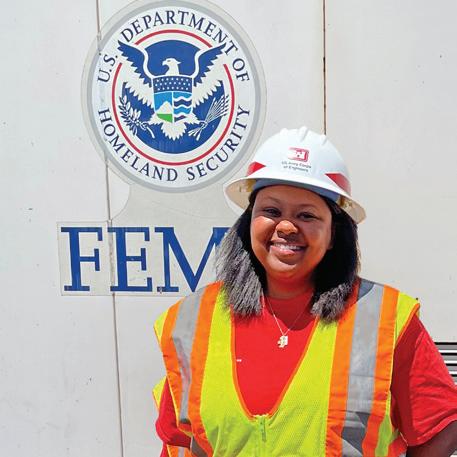
“The Power Response Team typically responds to hurricanes and tornadoes, so a wildfire wasn’t usual territory. Plus, being on an island creates a lot of challenges. But we were proud to be answering the call.”
~ Brittany Keyes
42 SPRING 2024 Our PEOPLE
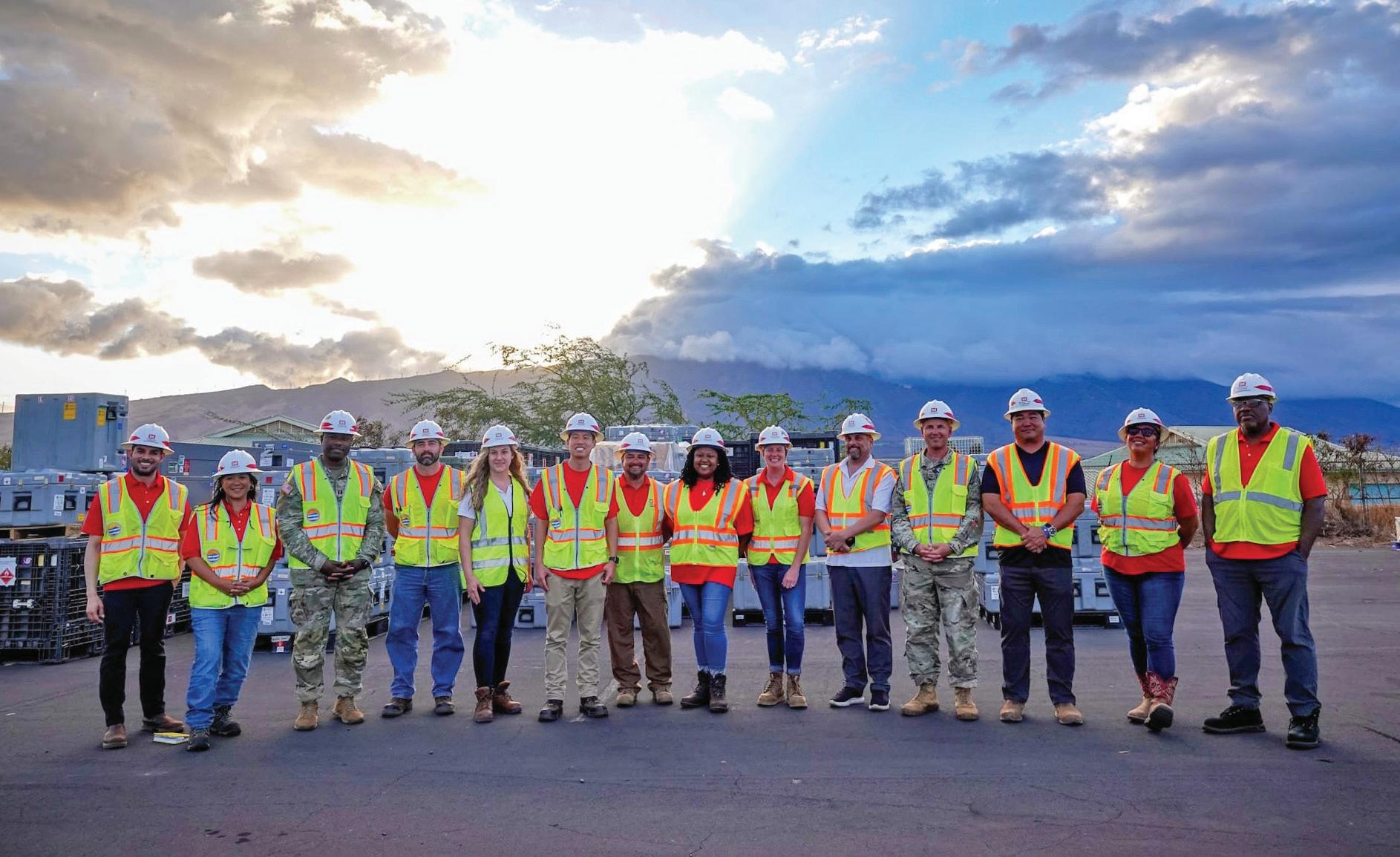
burned approximately 17,000 acres, causing more than 100 deaths and an estimated $5.5 billion in damage.
Working long hours to fill immediate needs, Keyes helped distribute generators to hospitals, nursing homes and temporary morgues established after the fires. And she wasn’t the only Bulldog responding to the damage. Jon Runnels, a Pass Christian native and 2015 civil engineering graduate, oversaw quality assurance for the Power Response Team. Having grown up witnessing Mississippians come together in times of need, Keyes and Runnels had first-hand knowledge of the importance of helping others.
“Being able to help others in a time of need, I don’t see a higher calling than that. To rise to that calling, there’s just nothing more important,” Runnels said. “It’s not uncommon to stop and help people in Mississippi when you see someone broken down on the side of the road. It’s just something Mississippians do. It’s the right thing to do.”
TAKING LEAPS OF FAITH
Keyes said she always wanted to attend Mississippi State. After two years at Jones College, she moved to Starkville and began studying public relations. The next moves, however, were much harder to predict.
A mentor sent Keyes information about an internship with the U.S. Army’s Morale, Welfare and Recreation program in upstate New York. She secured the internship and was then hired full time, leading programs aimed at boosting morale and welfare among service members and their families. While the work was rewarding, the weather was not.
“Soldiers from Alaska would come to the Army base I was working at to do their cold weather training,” Keyes said. “I want to say it hit -43 degrees my last winter there. Eventually, I thought, ‘Why am I living somewhere where the air hurts my face?’”
After vacationing in Oahu, Keyes sought opportunities to continue working in the federal government in Hawaii. When no leads
worked out, she went on unpaid leave and moved to the island intending to find a job. That’s when she found a job with the Corps of Engineers as an administrative assistant and has moved up the ranks to her current position.
While working for the government, Keyes has also earned a master’s degree from Walden University in clinical social work, a field that she hopes to enter after her federal service is complete. She said her background in communication has helped her throughout her career.
“Studying communication at MSU has honestly been the foundation for being able to do what I do and be who I am,” Keyes said. “Communication has been in every single thing that I have done thus far in my journey. I had awesome teachers at MSU who would share all the different journeys they have been on. But I never imagined in my wildest dreams moving to Hawaii or working for the Army Corps of Engineers would be part of mine.
“It is something so much bigger than just me,” she continued. "It’s been an amazing ride and I think it will continue to be amazing.” n
ALUMNUS.MSSTATE.EDU 43
GENERATING BUZZ
Startup launched at MSU is making waves in tech, e-commerce
By James Carskadon, Photos Submitted

Calvin Waddy was sitting in a Mississippi State business law class in spring 2018 when his phone made a surprising noise. The “cha-ching” from the Shopify app meant the online clothing store he launched with a fellow student had made its first sale.
“I thought we were on to the next big thing,” said Waddy, a Georgia native who moved to Madison County in high school before enrolling at MSU. “We were super excited and optimistic. Then we went probably two or three more months without a single sale.”
Business was slow that spring, but Waddy and his business partner, Shelby Baldwin, used influencer marketing to ultimately grow their clothing brand to the point of bringing in more than $50,000 in sales in one month.
That success was the prologue to the team’s current business venture, Buzzbassador, which has not only secured venture funding from the Bulldog Angel Network but is also backed by the Google for Startups Black Founders Fund.
DISCOVERING A NEED
Waddy and Baldwin successfully leveraged social media influencers— individuals who are paid by brands to recommend products on social media—to grow their clothing brand. They worked with these personalities on content and developed a system to give the influencers a percentage of the sales resulting from their promotions. The duo soon realized that managing thousands of influencer relationships could be a business unto itself as they juggled the last of their classes and a growing business.
As they went in search of an automated platform to manage influencer relationships, Baldwin and Waddy discovered that while solutions existed, none met their specific needs for efficiency and scalability. They hired software engineers to build a better solution. As they talked to peers in e-commerce about the platform they were building, many shared a similar frustration with managing influencers, as well as excitement for a possible solution.
“That’s where the idea for Buzzbassador
came from,” said Baldwin, a 2019 MSU business graduate from Ridgeland. “We started letting our connections use the initial version of the software. Once we got great feedback on it, we realized this could be a business of its own instead of just an internal tool for our clothing brands.”
Even in its early stages, Buzzbassador earned recognition and, more importantly, funding. The business won the Southeastern Conference’s annual student pitch competition in 2019 and by 2020 had secured hundreds of thousands of dollars in venture funding to grow the concept. Venture, or angel, funding, is money from high net worth individuals looking to invest in a company. Entrepreneurs then use that investment to further build the businesses. In fall 2020, Buzzbassador became the first, Mississippi-based company selected to showcase at Venture Atlanta, one of the Southeast’s top technology and venture funding events.
Since the official launch in 2020, the company has continued to grow as Baldwin
44 SPRING 2024 Our PEOPLE
and Waddy work to ensure their product stays up-to-date with the trends shaping influencer marketing and e-commerce. The platform has grown to more than 200,000 users and generated more than $25 million in revenue.
Baldwin and Waddy have also moved their business to Dallas, Texas.
Baldwin notes that while influencer marketing on social media feels like a technology-driven trend, getting people to talk about your product is one of the oldest forms of marketing that exists.
“There have always been people who tell other people about stuff to buy,” Baldwin said. “For example, Nike paying Tiger Woods to promote their products is influencer marketing. Essentially, all influencer marketing is just word-of-mouth marketing happening on the internet.”
‘FINDING THE RIGHT HORSE’
Using one opportunity to create the next one is nothing new for the Buzzbassador founders. Drawn to entrepreneurship, a clothing brand was not Waddy’s first business concept. Early in his college career, he pitched
an augmented reality-based shopping app through MSU’s Center for Entrepreneurship and Outreach, known as the E-Center. His initial pitch was rejected, but he said Eric Hill, the center’s director at the time, encouraged him to keep trying.
“At that moment, I was really discouraged,” said Waddy, who completed his MSU business degree in 2018. “Eric pulled me aside and told me ‘This particular business may not be the right horse, but you’re the right jockey. So go find the right horse.’
“Something like 95% of startups fail, which in some ways is relieving because most products and businesses go out of business or fail,” he continued. "Then it becomes about how you adjust and find the next thing. The best companies are born out of failures and problems.”
Waddy’s journey through the E-Center came full circle when he successfully pitched to the Bulldog Angel Network, a group of private investors that provides angel funding for MSU-affiliated entrepreneurs.
“Every time you pitch your business is nerve wracking, because you are essentially

saying ‘Hey, this is my baby, I want you to believe in it,’” Waddy explained. "You hear ‘no’ a lot, but once you get your first check, the other checks come a little bit easier. The Bulldog Angel Network’s vote of confidence helped us greatly on our fundraising journey.”
Baldwin said that the company being accepted into the Google for Startups Black Founders Fund has also served as validation for the work they are doing.
“Only 24 North American companies got into this program, and we were one of them,” Baldwin said. “They are very careful about who they back, so the fact that they saw what we are doing, what we are building, as something worth putting their money into is very validating.
“We’ve learned that things don’t usually go the way you think they’re going to go, but as a company we’re really focused on how the world is changing with new technology and markets for influencers, social media and e-commerce,” she added. “It’s very hard to predict what will happen, but I know there is going to be a lot of change and we’re going to try to stay ahead of it as best as we can.” n
“WE’VE LEARNED THAT THINGS DON’T USUALLY GO THE WAY YOU THINK THEY’RE GOING TO GO, BUT AS A COMPANY WE’RE REALLY FOCUSED ON HOW THE WORLD IS CHANGING WITH NEW TECHNOLOGY AND MARKETS FOR INFLUENCERS, SOCIAL MEDIA AND E-COMMERCE.”
~ SHELBY BALDWIN
ALUMNUS.MSSTATE.EDU 45
The Bulldog Angel Network is a group of MSU alumni and friends who provide financial support to early-state companies majority owned by other Bulldogs.
Driven to Succeed Driven to Succeed WICKER LEADS ATHLETICS AT SAN DIEGO STATE UNIVERSITY
By Sid Salter, Photos Submitted
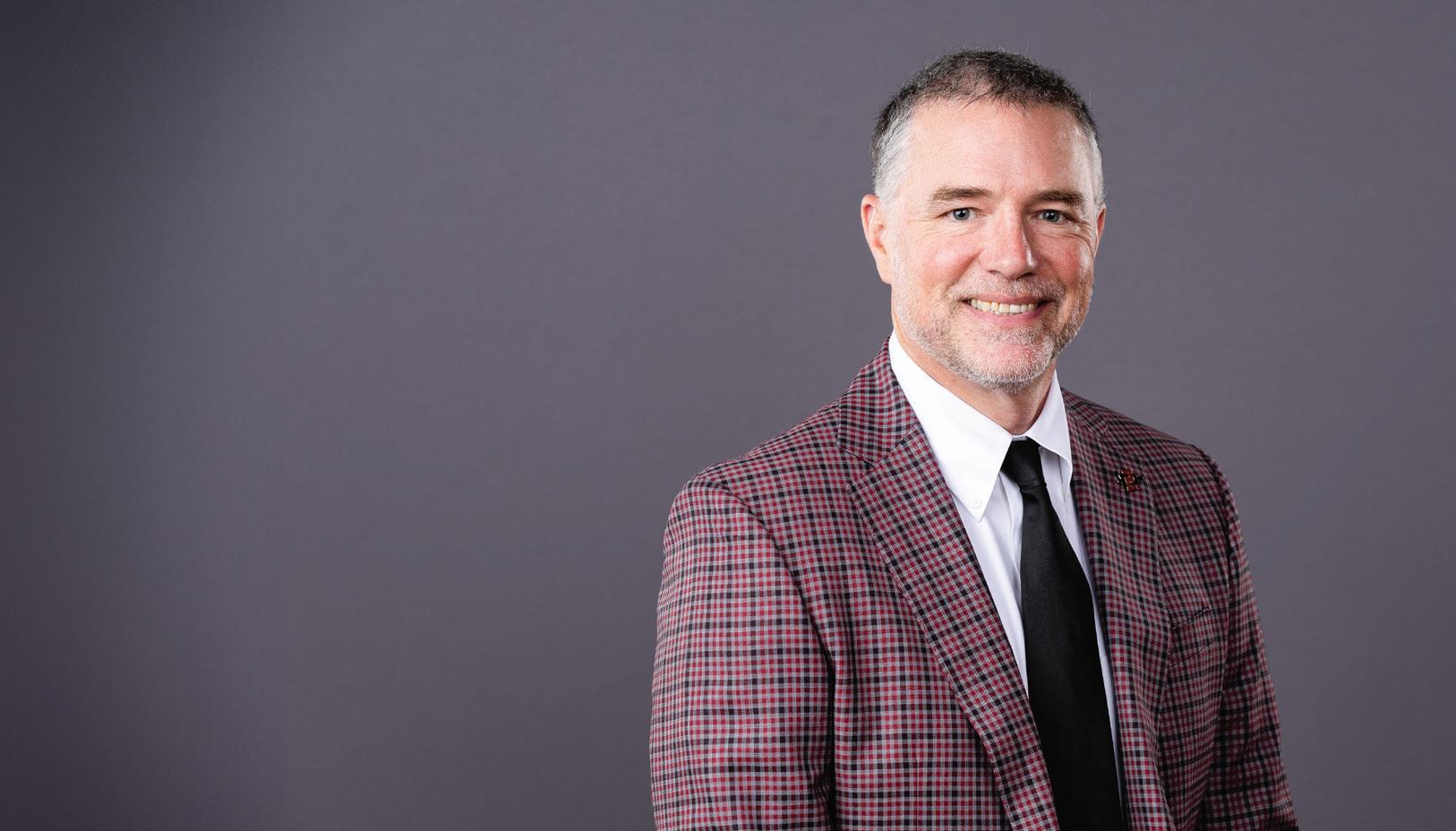
Fellow Mississippi State University alums remember Hattiesburg native and current director of athletics at San Diego State University John David Wicker as driven, intensely focused and somewhat of a workaholic.
Wicker says that description is “fairly accurate,” but said his wife, Rachel, and daughters, Scarlett Anne and Waverly Lile, “have helped me try harder to be a little more balanced.”
With his parents in the medical profession, Wicker learned that some careers carry more than 9-to-5 responsibilities. He said his father, an in-demand neurosurgeon, modeled his work ethic on the ideal: “Others you serve are important, and giving everyone the best you are is a work in progress.”
But Rachel Wicker is a realist about the hectic, hurried life that the man she calls “Wicker” has chosen and how that impacts their young family.
“We learned pretty quickly that when his work and his obligations take him away from us, you don’t take it personally. This life was what he always wanted. Our life motto is ‘there’s always something,’” she said.
“It’s not that Wicker doesn’t want to come or that the family’s schedule is not a priority, it’s that it’s his job," she continued. "Things come up, and it’s good for the girls to watch and learn good work etiquette. They know their dad is extremely good at his job and they’re proud of him. Kids learn it’s okay for him to take pride in his work.”
The Wicker family resides in Santee, California, to be within commuting distance of the university. But there is a price to pay for Rachel–a native of the Pacific Northwest–and the girls.
“We don’t have extended family near us, we don’t have traditional support," she explained. "I’ve adjusted my viewpoint on how structured our family was going to be. I needed to view my job as being a mom. If I don’t get milk, we don’t have milk.”
How did the Wicker family make that adjustment?
“The thing about Wicker is that when he’s here, he’s fully here," Rachel Wicker said. "It’s so great when he is here, it makes the absences even harder holding our family and our house together.
“He has such good intentions, navigating all these things," she continued. "As his
family, we are happy to work with him. I sense that the staff at SDSU is likewise proud to work with him and for him. People genuinely enjoy his leadership. He is a good man. At the end of the day, it’s that he cares. That makes it all worthwhile.”
Wicker graduated from Mississippi State in 1992 with a bachelor’s degree in professional accountancy. He impressively landed his first job after college as an auditor for the “Big Five” accounting firm Arthur Andersen’s Jackson office.
“I just wasn’t happy driving a desk and it just didn’t fit with what I wanted to do,” Wicker said. “Sports management degrees were not common back then, so my ‘aha!’ moment came when I saw graduate school opportunities in sports management and a faster path to a career in athletics.”
After leaving Arthur Andersen, Wicker served as venue logistics manager for the Atlanta Committee for the 1996 Summer Olympic Games at the University of Georgia’s Sanford Stadium, home to the medal rounds for men’s and women’s soccer. He then joined the staff at Georgia from 1996-99 as assistant director of event management. Wicker earned a master’s degree in education
46 SPRING 2024 Our PEOPLE
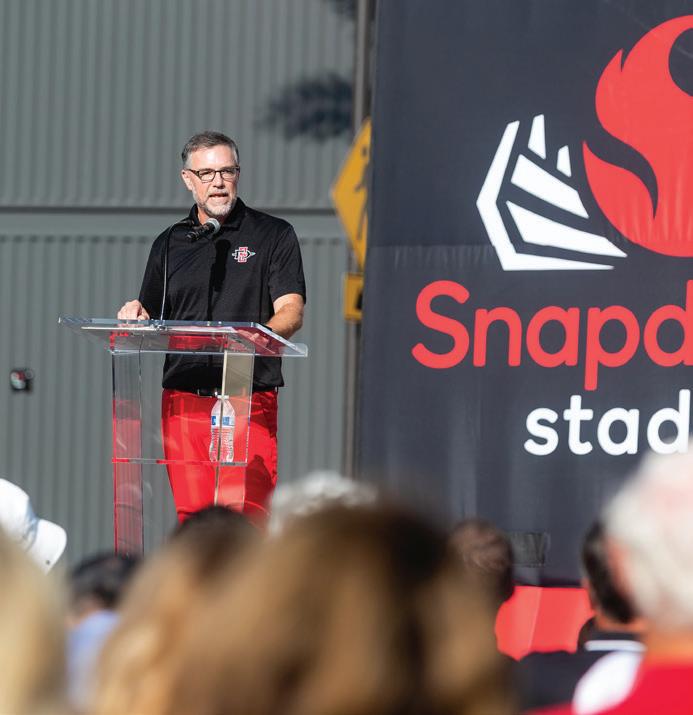
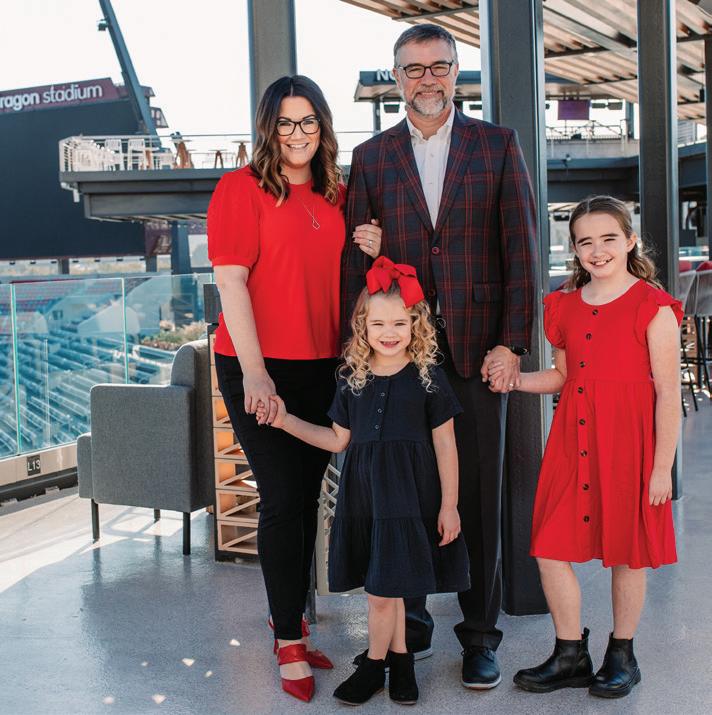
John David Wicker was named Sports Business Journal Athletic Director of the Year for 2023, a year noted as one of the most successful at San Diego State and included the opening of the 35,000-capacity Snapdragon Stadium and Aztec men’s basketball reaching the NCAA Tournament championship game. Right: Wicker with his wife Rachel and daughters Scarlett Anne and Waverly Lile in Snapdragon Stadium.
with an emphasis in sports management from Georgia in 1997.
He returned to Hattiesburg to serve the University of Southern Mississippi as director of event and facility operations from 199901. Wicker then was named associate athletic director for event and facility operations at Washington State University in Pullman, Washington.
Wicker served as SDSU’s deputy athletic director from 2011 until departing for Georgia Tech in July 2015. During his first term at SDSU, he was responsible for the day-to-day operations of the Aztec athletics department, overseeing business operations, human resources, events and facilities, capital projects, strength and conditioning, academics, and video, as well as providing sport oversight for football, rowing, and men’s and women’s basketball.
The South Carolina native was introduced as SDSU’s new director of intercollegiate athletics on October 24, 2016. In the first 100 days of his tenure at SDSU, the NFL Chargers pulled up stakes and moved to Los Angeles, the Aztec’s Hall of Fame basketball coach Steve Fisher retired and the SDSU president who hired Wicker left the school.
SDSU reported: “Wicker led a potentially thorny process to get Snapdragon Stadium to the finish line last season on time and on budget, bringing together the city of San Diego, the university and the athletics department in a way that kept the
“Mississippi State gave me the opportunity to be involved on campus and develop the leadership traits that make one successful.”
~ John David Wicker
$310 million project on budget and on time for a 2022 opening–during the COVID pandemic."
Erik Judson, CEO of San Diego-based JMI Sports and a longtime friend of Wicker’s, had a bird’s eye view of Wicker’s reaction to those challenges while he led the Snapdragon Stadium project.
“He assembled a great team and then he was an inspirational leader,” Judson told the Sports Business Journal’s Michael Smith in 2023. “He’s patient, he leads, but he lets the experts be the experts. He’s often the smartest guy in the room, but he doesn’t try to assert himself that way.”
For Wicker, his time at Mississippi State was a time of self-discovery and growth.
“Mississippi State gave me the opportunity to be involved on campus and develop the leadership traits that make one successful," Wicker said. "I earned a great education there, enabling me to get a good job right out of college. I had a lot of fun with my Kappa Alpha friends and serving as an alumni delegate.”
Recognized as one of the nation’s most innovative and successful sports management professionals, Wicker remains extremely proud of his home state and his alma mater.
“It goes back to my parents, who taught me that the success of those around you really defines your success," Wicker said. "My time in Starkville, the great love I have for MSU, the years there, and the friends I made are foundational parts of who I am today and how I define success.” n
ALUMNUS.MSSTATE.EDU 47
Left:

The MSU Alumni Association sponsors trips across the globe through the Traveling Bulldogs program. Itineraries are booked through 2025. Explore our website for more details at alumni.msstate.edu/travel or contact the Alumni Association at 662.325.7000.
48 SPRING 2024 EMBARK ON AN
ADVENTURE
Traveling Bulldog 2024-2025 Trips
Scan Me


Booking Trips for 2024 & 2025 *
AUGUST 2024
African Expedition by Private Train
Provence | Featuring Art, Cuisine & Wine
SEPTEMBER 2024
Delightful Douro in Lisbon
In the Path of Cartier
Northern Lights & Wildlife of Northern Manitoba
The Mighty Eighth in England
Village Life France
OCTOBER 2024
Albuquerque Balloon Festival
Death Valley, Yosemite, and the Great Parks of California
Flavors of Provence by Luxury River Ship
Journey Through Vietnam
Swiss Alps & the Italian Lakes
NOVEMBER 2024
Renaissance Triumphs
DECEMBER 2024
Battle of the Bulge
Holiday Markets Cruise: The Festive Rhine River
Montréal & Québec City
Christmas Markets
JANUARY 2025
Journey to Southern Africa
Patagonian Frontiers
Antarctica Discovery
Wolves and Wildlife of Yellowstone
FEBRUARY 2025
Kiwi & Kangaroo Coasts of Australia & New Zealand
MARCH 2025
Panama Potpourri
Portrait of Italy
Hawaii Three Island
Adventure
APRIL 2025
Dutch Waterways
Village Life France
Unveil the Mysteries of Peru
Washington DC Cherry Blossoms
The Inland Sea of Japan and South Korea
Kentucky Derby
Easy Company
Masters of the Air
MAY 2025
Enchanting Gems of Austria
Great European Journey
Flavors of the Spanish Coast
JUNE 2025
Apulia – Undiscovered
Italy
Enchanting Ireland
The Galapagos Islands
National Parks & Lodges of the Old West
JULY 2025
Radiant Alaska
Danube Delights with Munich
Stunning Scotland
AUGUST 2025
Island Life | Greek Isles and Ephesus
Canadian Rockies
Explorer
Cape Cod & the Islands
SEPTEMBER 2025
Switzerland's Alpine Majesty
National Parks of the Southwest Flavors of Tuscany
The Battle of Normandy
OCTOBER 2025
Mediterranean Mélange
Egypt & the Eternal Nile
Mackinac Island,
The Grand Hotel & Niagara Falls
Victory in the Pacific: Japan and Okinawa
NOVEMBER 2025
Iceland and the Northern Lights
Douro River Voyage
Macy's Thanksgiving Day Parade
DECEMBER 2025
Holiday Markets Along the Rhine
Christkindlmärkte Along the Danube River
Montreal & Quebec City Christmas Markets
TBD
Scotland - Specialty Golf Experience
*All trips and dates are subject to change. Visit our website for the most current information.
ALUMNUS.MSSTATE.EDU 49
2024 Alumni Leadership Conference
The Mississippi State University Alumni Association hosted its 2024 Leadership Conference at The Mill in February. The annual celebration recognizes the contributions of alumni leaders and volunteer members, while cultivating meaningful engagement and investing in the association’s grassroots network.
Aiming to educate, empower and celebrate Bulldog alumni, the annual conference provides valuable networking and idea-sharing opportunities through interactive activities. In addition to new alumni chapter officer orientation and the association’s annual business meeting, participants also hear updates from key university representatives and other staff and volunteer leaders.
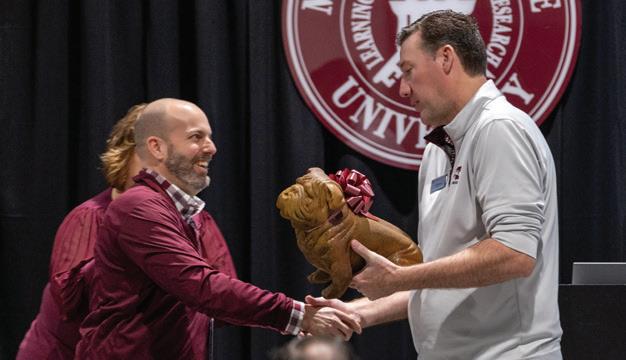
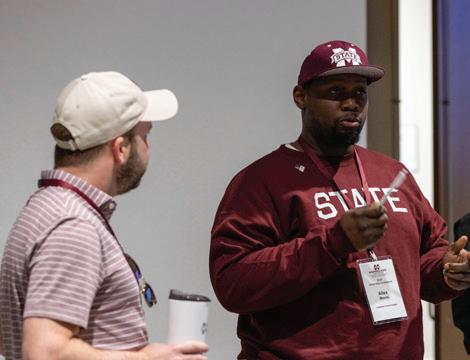
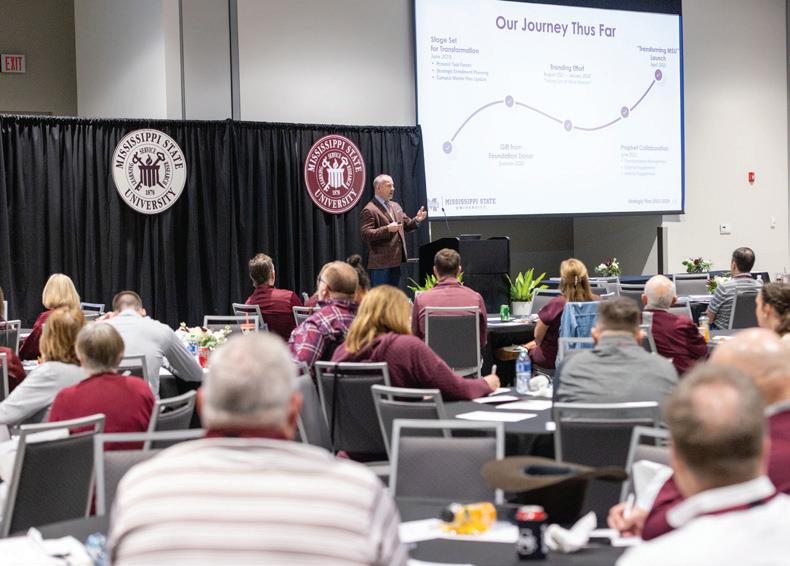
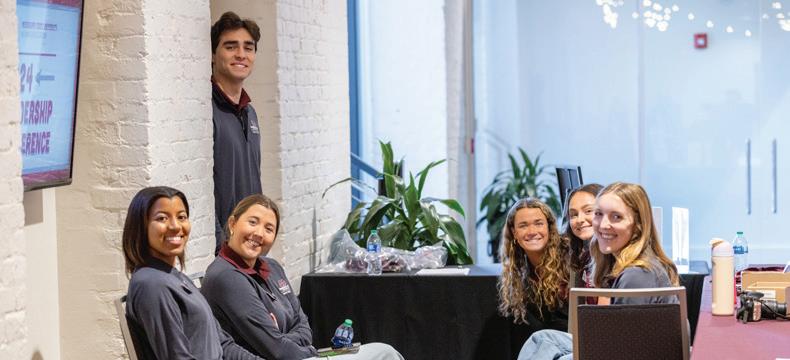
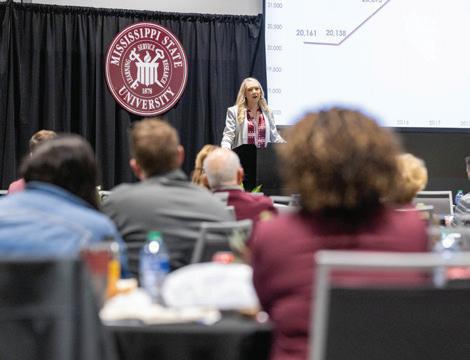
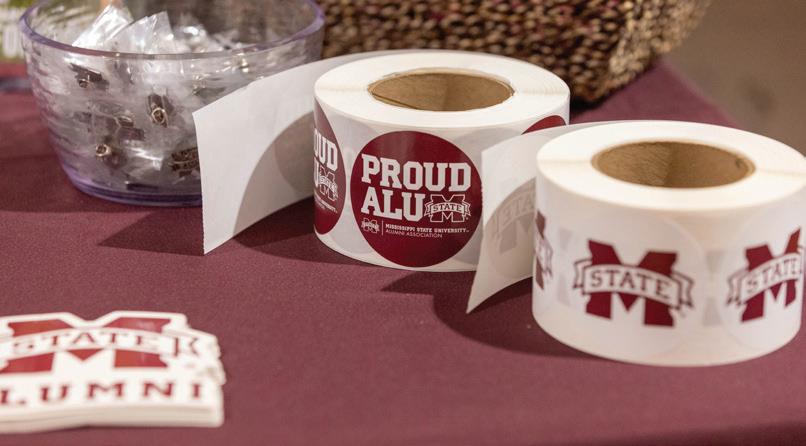
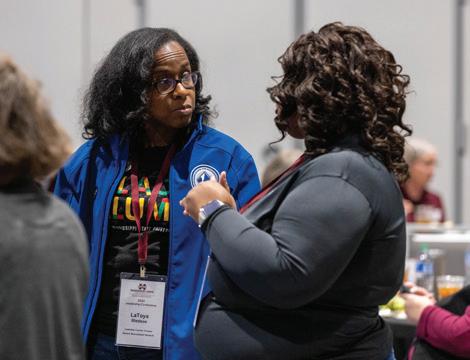
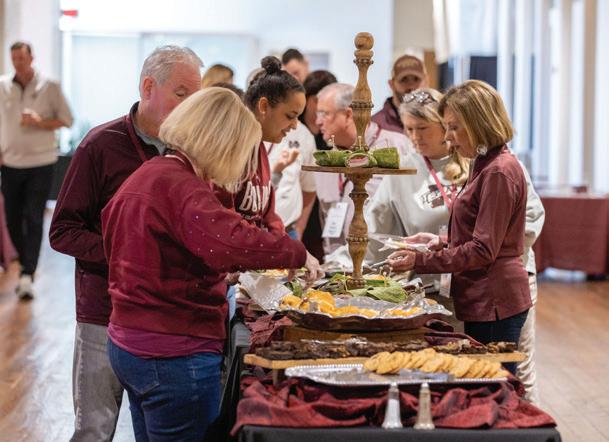
50 SPRING 2024 ALUMNI News
ASSOCIATION SALUTES
Outstanding Alumni Chapters
During the weekend event, the MSU Alumni Association proudly recognized highachieving chapters through the Chapter and Volunteer Awards Reception. Developed to encourage and promote volunteer leadership, chapter membership and chapter engagement activities, the program recognizes outstanding chapters according to their membership and achievement within the Honor Chapter Point System. Of the more than 100 chapters and clubs that make up MSU’s Alumni Association, 50 chapters were honored during the reception.
HONOR CHAPTERS
Mississippi
Adams-Franklin-Wilkinson
Alcorn County
Attala County
Clay County
DeSoto County
Lauderdale County
Lee County
Leflore-Carroll
Lincoln-Copiah
Mississippi Gulf Coast
Panola-Tallahatchie
Pine Belt
Southwest Mississippi
Tate-Tunica
Union County
Warren County
Washington County
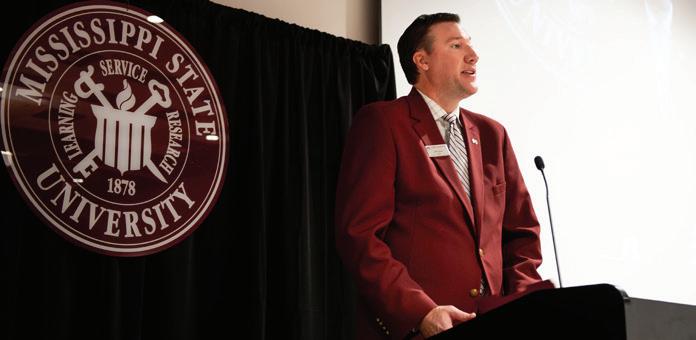
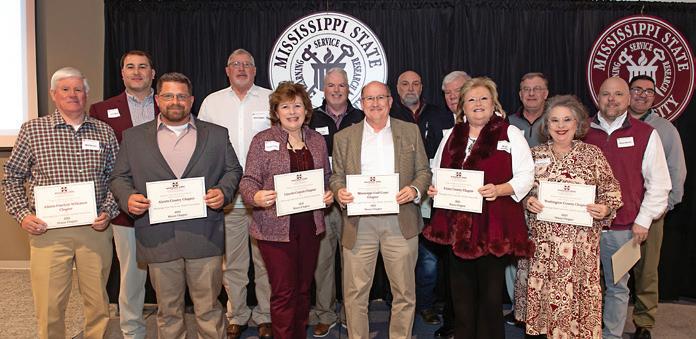
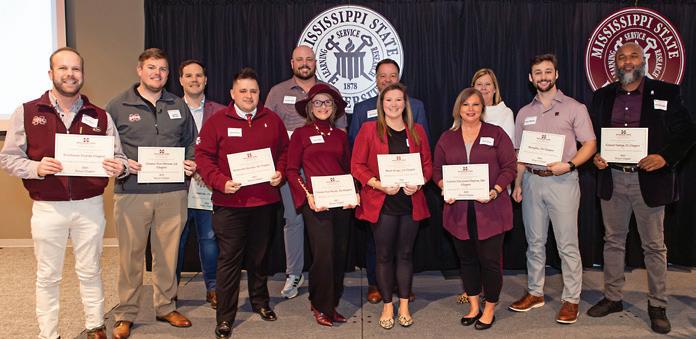
Out of State
Baton Rouge, LA
Birmingham, AL
Greater Charlotte, NC
Greater Chicago, IL
Greater Cincinnati-Dayton, OH
Greater Fort Worth, TX
Huntsville-Decatur, AL
Memphis, TN
Mobile, AL
Nashville, TN
Greater New Orleans, LA
New York, NY
Northeast Florida
Northwest Florida
Rocky Mountain Colorado
South Texas
Greater Tampa, FL
Washington D.C
GOLD
Atlanta, GA
Lawrence-Jefferson Davis
Leake County
Lowndes County
Greater Orlando, FL
SILVER
Greater Chattanooga, TN Dallas, TX
Newton County
Oktibbeha County
Sharkey-Issaquena
BRONZE
Central Mississippi
Clarke County
East Texas
Greater Houston, TX
Tippah County
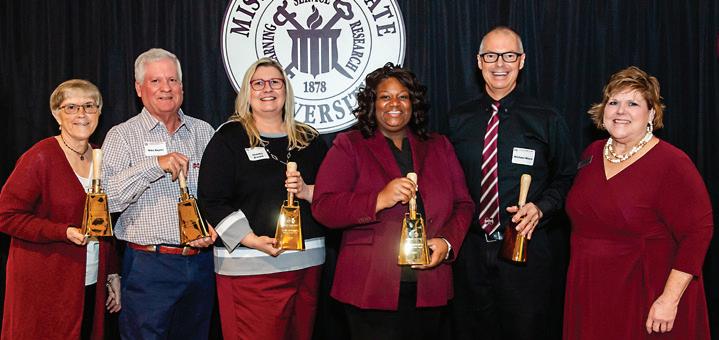
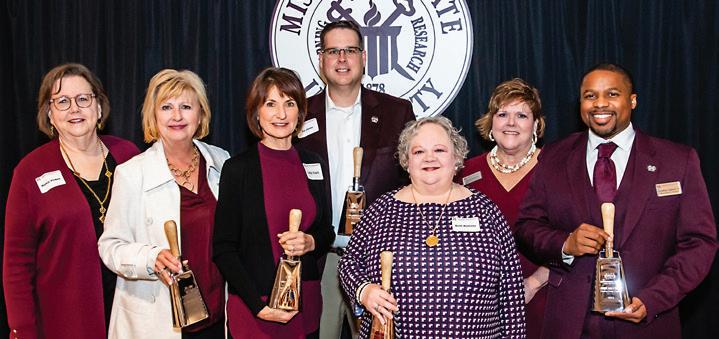
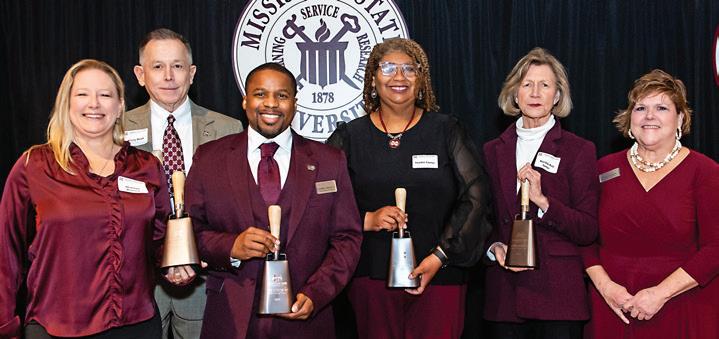
ALUMNUS.MSSTATE.EDU 51
In State
Out of State
FOUR VOLUNTEERS Receive Service Awards
The Distinguished Service Award annually recognizes individuals who have displayed outstanding volunteer and leadership efforts within their local alumni chapter during the previous year. Their efforts are essential in upholding the mission of the Alumni Association and also bring favorable recognition to the university. Four dedicated alumni are recipients for 2023.
STEVE BRANDON is a distinguished alumnus of Mississippi State University and a well-respected member of the Chattanooga, Tennessee, community. He graduated from MSU with dual bachelor’s degrees in plant pathology and weed science in 1972, followed by a master’s degree in weed science in 1973. After an illustrious career spanning agribusiness, technology, science and engineering, he retired from TMP Worldwide as senior vice president of international operations. Maintaining connections with his alma mater and its Alumni Association, Brandon was a key figure in the revitalization of the Greater Chattanooga Chapter. Having previously served as president, he currently serves as chapter treasurer, chair of the student recruiting and co-chair of the retired alumni committees. His leadership led to the chapter receiving two Gold Cowbell awards, one Silver Cowbell award and one Bronze Cowbell award, along with six consecutive years as an Honors Chapter. Brandon also served on the Alumni National Board for six years and was a member of the executive committee. He and his wife, Patsy Fowlkes, a 2022 Distinguished Service Award winner, are ardent supporters of MSU and often host game-watch parties and other events. They have established a presidential endowed scholarship and contributed to naming several campus facilities at MSU.
ANDREW FRANK is a respected businessman and community leader in Kosciusko. Born in Ohio and raised in
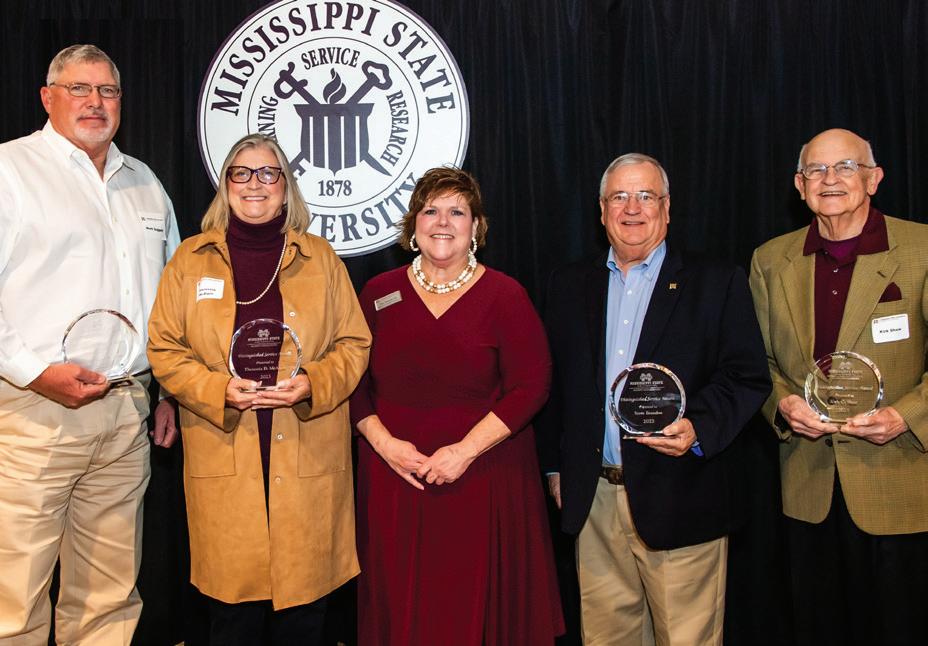
Mississippi, he graduated with a bachelor’s degree in business administration in 1991 and is the owner of BSP Filing Solutions. Through his work, he previously collaborated with Neil Price, the voice of the Bulldogs, to create a custom filing solution for Price’s game day radio notes. Frank has served as an active member and volunteer with the MSU Alumni Association in the Attala County Chapter for nearly 20 years, including 13 years as president. Under his leadership, the chapter has flourished and was honored with a Bronze Cowbell award. He often leads in organizing, hosting and sponsoring annual send-off parties and scholarship events to enhance chapter engagement and volunteer participation. Frank also served on the Alumni National Board for six years as Central Region 2 director.
THERESSIA MCALPIN is a retired Pearl Public School District educator who is dedicated to serving her community and her alma mater. She earned bachelor’s and master’s degrees in special education from MSU in 1977 and 1998, respectively. Throughout her career and retirement, she has been an active member of the Central Mississippi Chapter of the Alumni Association, where she has held various roles, including serving as president in 2014. Her recruiting efforts over the years and contributions to MSU’s Alumni Recruitment

Network demonstrate her passion for bringing younger generations into the Bulldog family. McAlpin has earned multiple awards recognizing her dedication and service to the community. Among these awards are the Ridge Thomason Award for community service and the prestigious Silver Cowbell for the success of her presidency.
KIRK SHAW is a retired attorney and passionate community servant residing in Spanish Fort, Alabama. The McComb native obtained a bachelor’s degree in mathematics from Mississippi State University in 1965 and later earned a Juris Doctor from the University of Virginia in 1971. He has been an active member of the Mobile, Alabama Chapter of the Alumni Association since he moved to the coast more than 50 years ago. Since 1973, he has served on the chapter’s board, including several years as president. He also is the chapter’s community service chair, a position he has held for the past 10 years. Long before Maroon Mail Writing began, Shaw was writing letters to prospective students, sharing his love for MSU and bolstering recruitment for his alma mater. He has been instrumental in organizing and supporting chapter events to grow engagement. His longtime dedication to the chapter is a testament to his love for MSU. n
52 SPRING 2024
ALUMNI News
L-R: Mark Suggett accepting for Andrew Frank, Theressia McAlpin,Terri Russell, Steve Brandon and Kirk Shaw
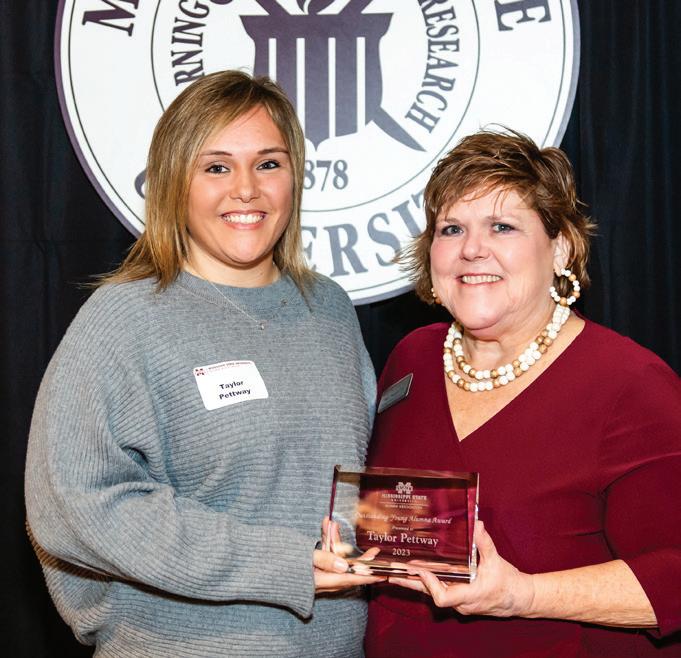
Pettway Named Outstanding YOUNG ALUMNA
For her professional leadership and service achievements, Taylor Pettway of Mobile, Alabama, has garnered the honor of 2023 Outstanding Young Alumna.
Born in Midland, Texas, and raised in Laurel, Pettway graduated from MSU in 2015 with a degree in business administration and now works as a Realtor for both Goode Realty in Alabama and Southern Oaks Realty in Mississippi. She joined the MSU Alumni Association’s Oktibbeha County Chapter upon graduating and served as the young alumni chair and secretary. After moving to south Alabama in 2018, she joined the Mobile, Alabama Chapter and took on the familiar role of young alumni chair.
For the past eight years, she has been involved in various community and alumni activities, including golf tournament fundraisers, Habitat for Humanity projects and young alumni socials. Her innovative initiatives have been diverse and engaging, from organizing sip-and-paint parties to planning football and Mardi Gras parade-watch parties. Pettway has also found a way to promote her alma mater through her profession, distributing cards to her fellow Bulldog clients to encourage involvement in the alumni chapter.
Throughout the COVID-19 pandemic, she kept alumni connected by organizing virtual events. Since then, she has taken over the chapter’s social media accounts to help promote the chapter and keep others informed about events.
Through her enthusiastic service to Mississippi State University, its alumni and her local community, Pettway exemplifies true servant leadership, and MSU is proud to honor her as the 2023 Outstanding Young Alumna. n
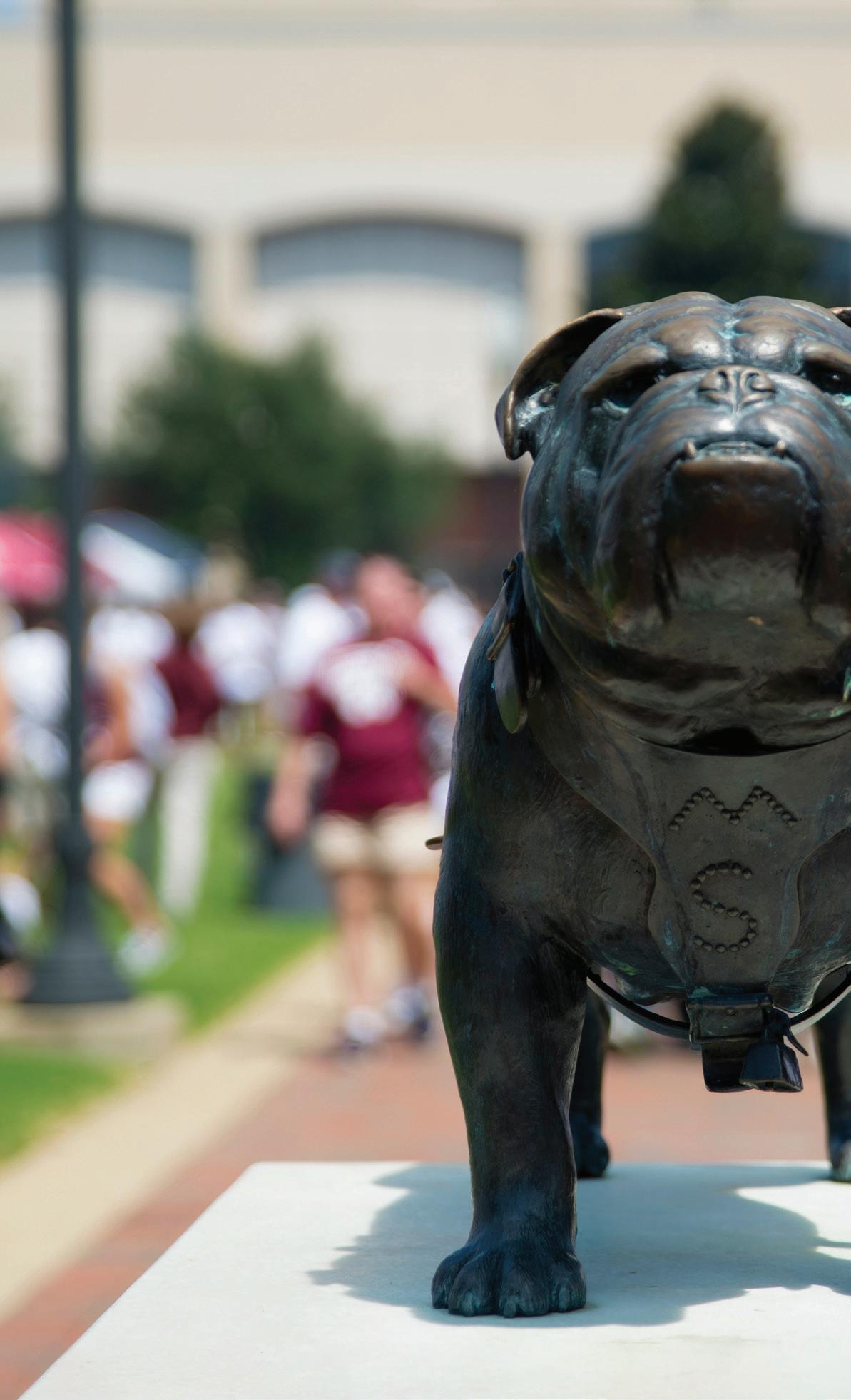
ALUMNUS.MSSTATE.EDU 53

MSU CELEBRATES BULLDOG EXCELLENCE DURING BLACK ALUMNI WEEKEND 2024
More than 500 Bulldogs gathered at The Mill for Black Alumni Weekend 2024. With a slate of events including a career expo, awards, informative sessions and social gatherings, this year’s program had a special focus on MSU’s Black pioneers—those who were among Mississippi State’s first integrated classes and helped create a support network for the students who would follow in their footsteps.
The weekend kicked off with a special “Ring Your Bell and Tell Your Tale” panel discussion in Mitchell Memorial Library’s Grisham Room. It featured Col. Robert Barnes, who graduated in 1972 in sociology and was the first African American to be commissioned into the U.S. Army from MSU; Harvest Collier, who earned MSU bachelor’s, master’s and doctoral degrees in chemistry in 1972, 1974 and 1977, respectively; Vernon White, a physical education major who in 1971 became MSU’s first African American, scholarship track athlete; and Doug and Linda (Robinson) Milton, who met at MSU, married and were commissioned into the U.S. Air Force together in 1979 when they completed their degrees in political science and history, and business respectively.
Open to the public, the panel discussion allowed Barnes, Collier, White and the Miltons to share their experiences of being African American students at MSU in the 1970s.
“The environment here was totally strange to me,” recalled Collier, who grew up in Starkville’s Needmore community, just west of MSU. “I’d never come to campus. I had no sense of what it was like having grown up and lived in a totally segregated environment. So, you can imagine the cultural change that I had to figure out in arriving here.”
Though Dr. Richard Holmes successfully integrated the university with his enrollment in 1965, the panelists recalled how they
still felt like outsiders at the university in the 1970s. They credited the community of African American students at the time with creating pathways to success for Black students, identifying allies within the faculty and administration, and creating safe spaces to gather.
“As I got to be a senior, there might be only one or two Black people in class,” Barnes recalled. “As soon as class was over, I would see if I could have a conversation with people. So, we found our community.”
Panelists noted that the top floor of the YMCA building, through word of mouth, became a meeting place for Black students. That same informal, word-of-mouth network, as well as Afro-American Plus— MSU’s first Black student organization established in 1968—helped students connect and find campus resources.
“When I got here,” Linda Milton recalled, “there were 36 Black people total. It was like a small family that told you everything you needed to know. They looked out for you.”
These remembrances, as well as others, have been collected as part of the project “Ring Your Bell and Tell Your Tale: The History of Black Students at Mississippi State University, 1965 to 1975.” The project, which was initiated by a group of Black alumni and aided by the MSU Libraries’ University Archives, aims to capture and preserve the experiences of MSU’s first African American students.
The yearlong project involved conducting interviews with alumni and reviewing historical documents to chronicle life at MSU during integration and the Civil Rights Era. As announced during a Black Alumni Weekend panel about the project, the work will result in a scholarly book, documentary, website and soundtrack.
For more information about “Ring Your Bell and Tell Your Tale,” visit www.library. msstate.edu. For more information about Black Alumni Weekend or other alumni events, visit www.msstate.edu/alumni n
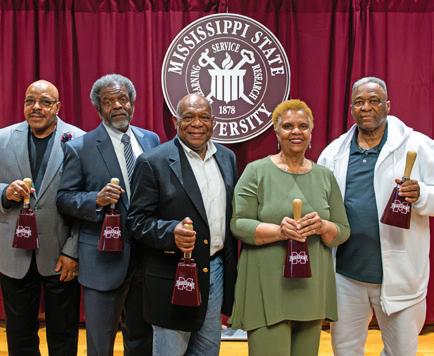
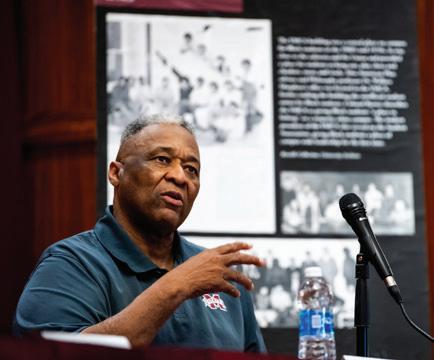
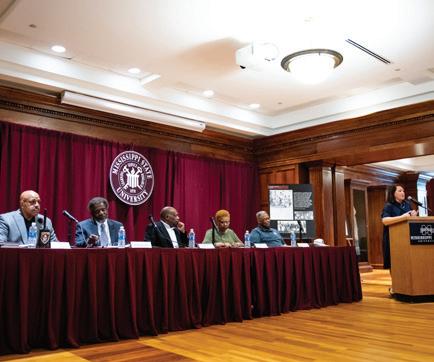
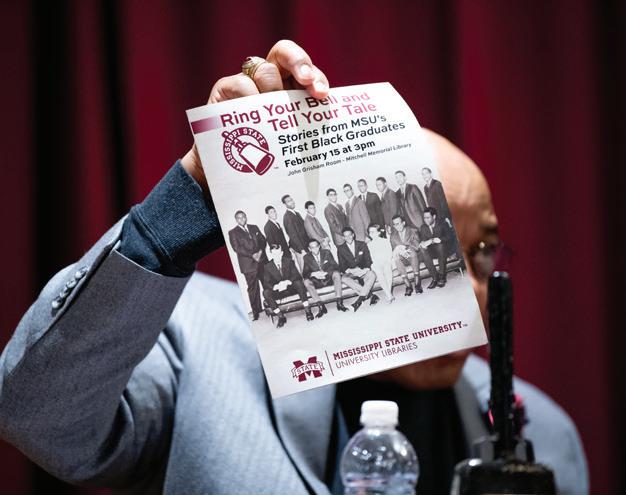
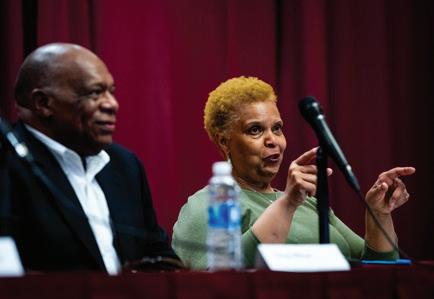
54 SPRING 2024 ALUMNI News
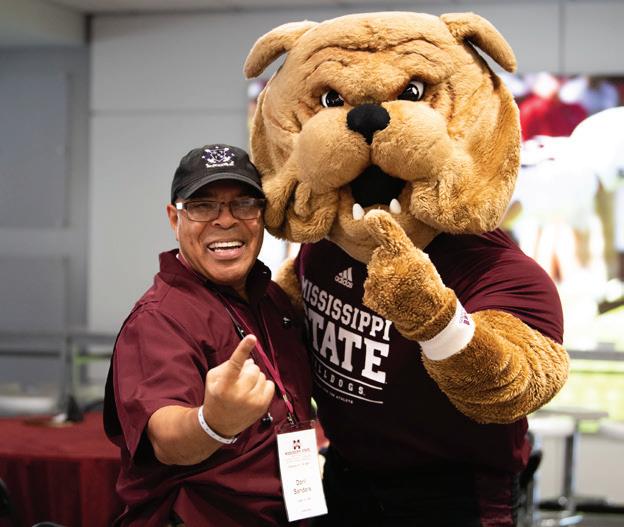
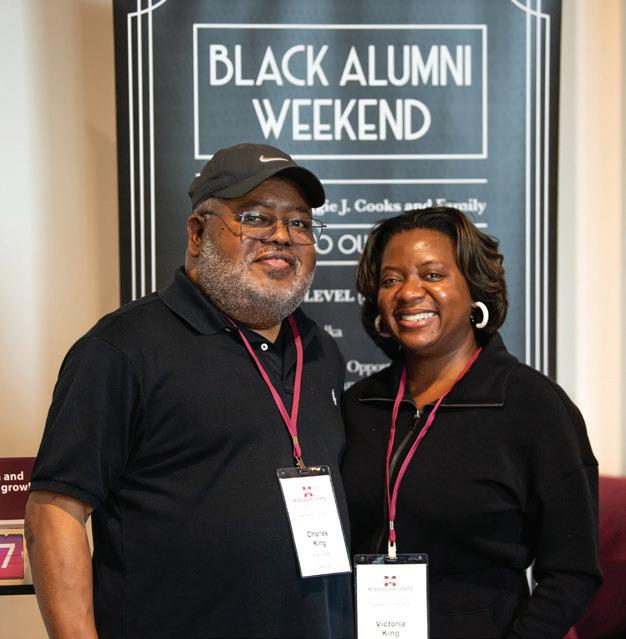
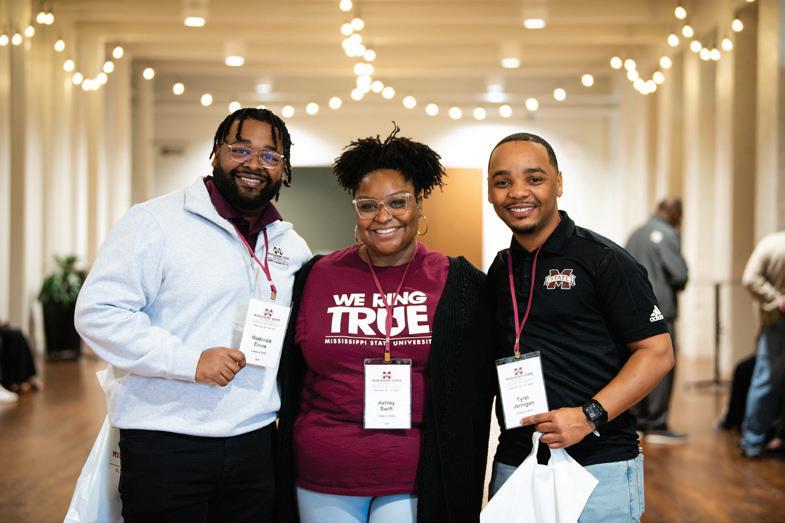
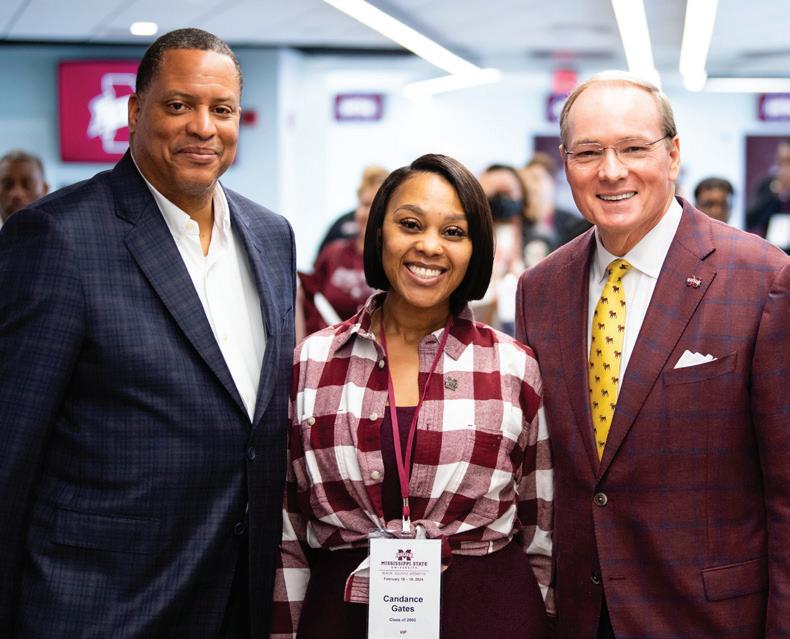
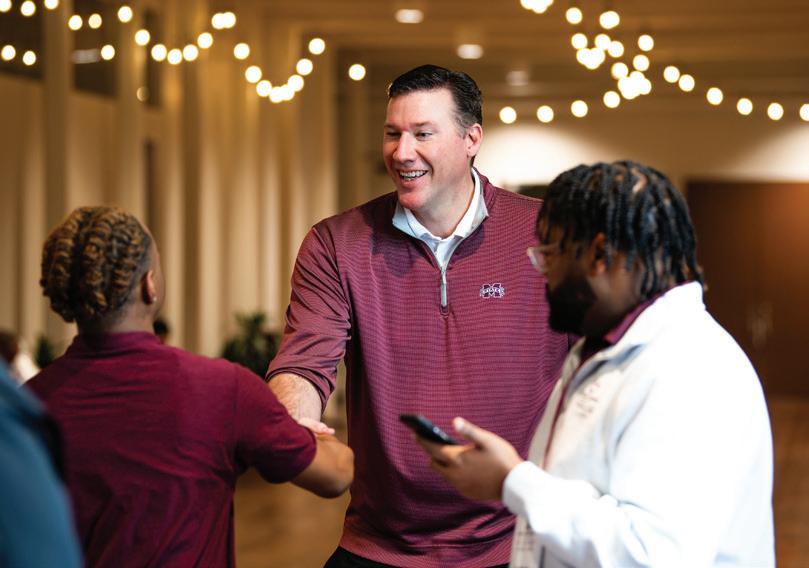
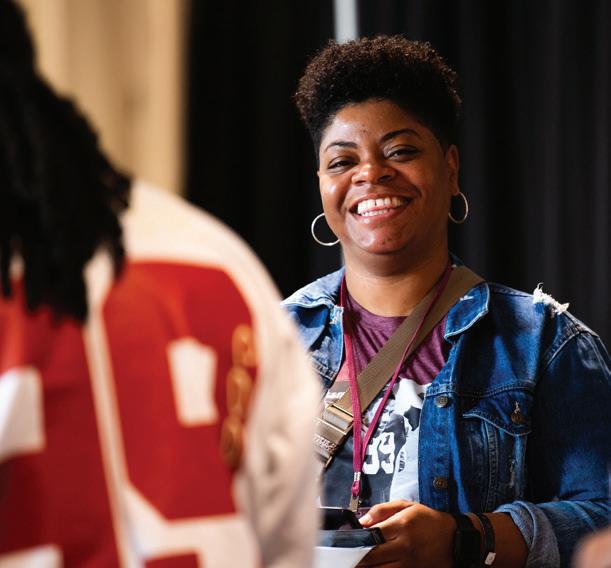
ALUMNUS.MSSTATE.EDU 55
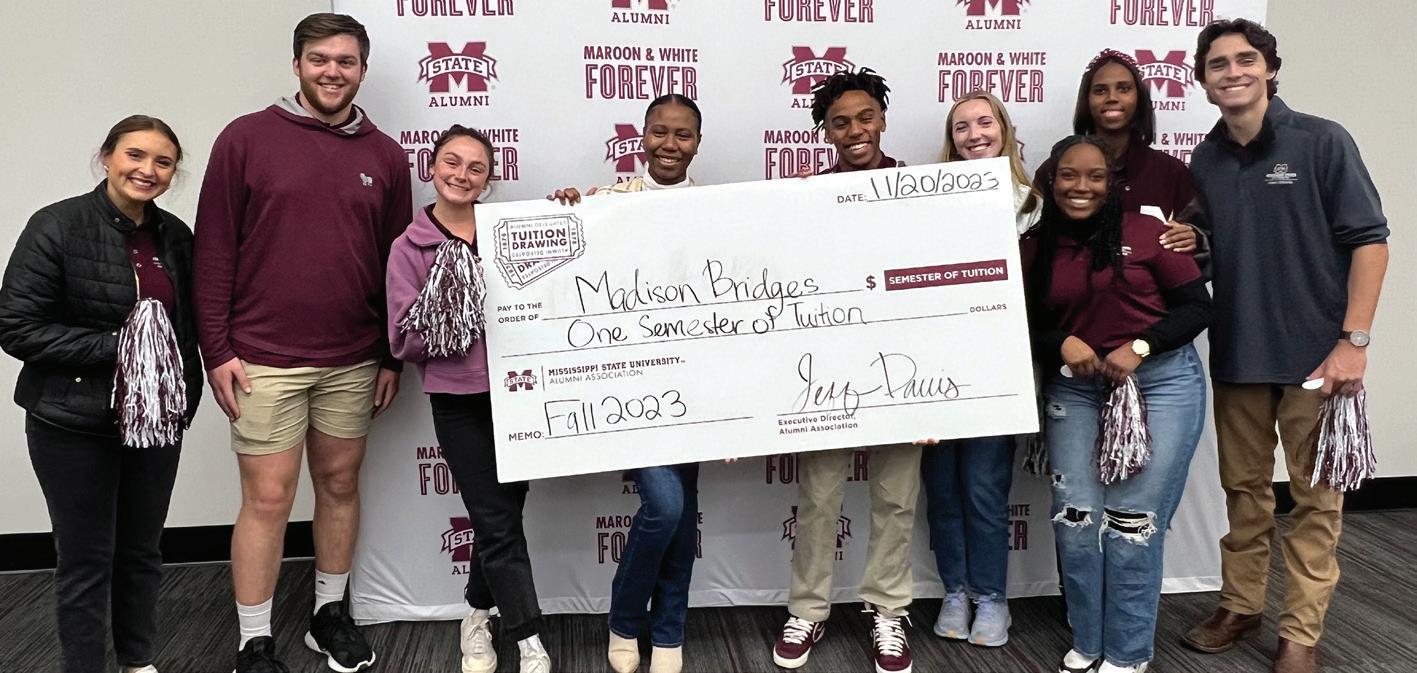
Madison Bridges (fourth from right) was surprised by MSU Alumni Delegates when she was announced as the winner of the Alumni Association’s 20th Tuition Drawing. Bridges, a freshman business administration major from Grenada, received free, full-time tuition for the spring 2024 semester. The delegates sold more than 3,800 tickets, raising nearly $16,000. For more information on the program, visit www.alumni.msstate.edu/tuition-drawing. Photo by Sam Baker
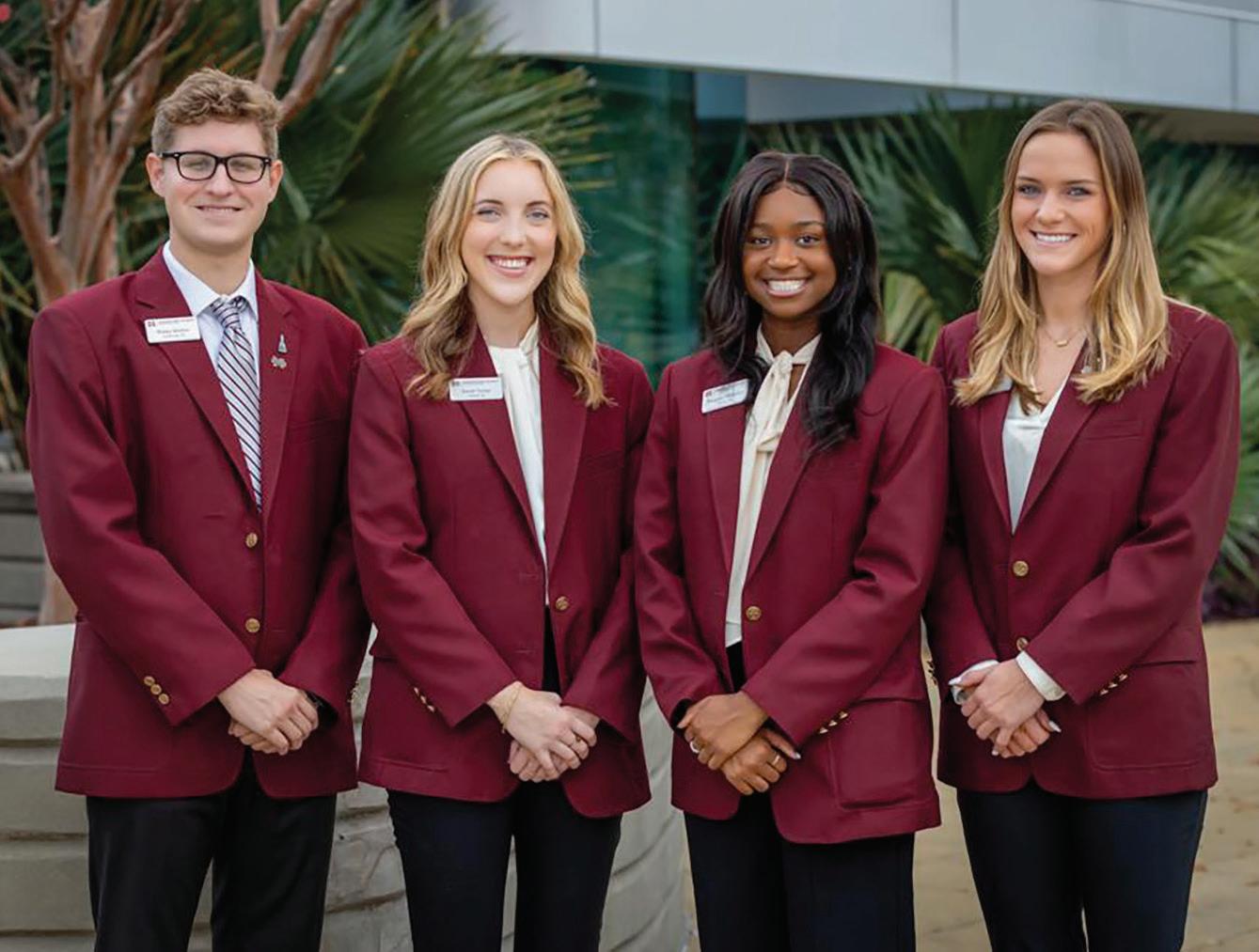
2024 Alumni Delegate Officers
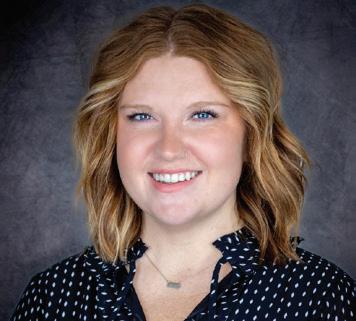
Bridges joins Alumni Association staff
Brooke Bridges joined the MSU Alumni Association in March as its new engagement manager. In this role, she advises the Alumni Delegates and will help drive the association’s engagement of students and young alumni. Bridges earned a bachelor’s in kinesiology from MSU in 2019, later adding a master’s from the University of Kentucky. Prior to assuming her current position, she worked as director of fan engagement and marketing for the University of Alabama at Birmingham’s athletics department.
56 SPRING 2024 ALUMNI News
(L-R) Senior business economics and Spanish double major Robert “Robby” Skelton of Collierville, Tennessee, secretary; junior accounting major Sarah Turner of Hoover, Alabama, vice president of public relations; junior biomedical engineering major Reagan Hendricks of Hoover, Alabama, president; and junior biological sciences major Kellen Fairburn of Madison, vice president of education.
Tuition Winner

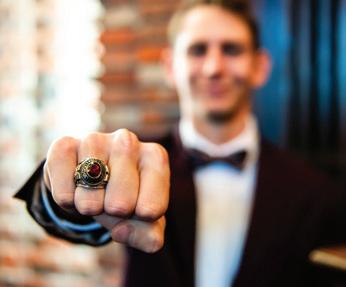
RING Ceremony
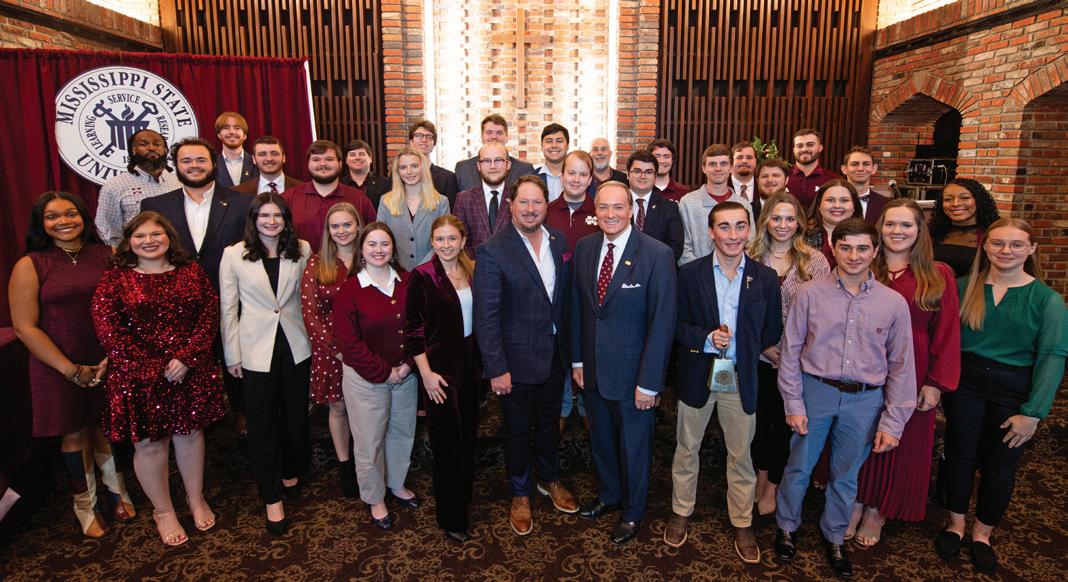
The Ring at MSU is one of the university’s fondest traditions. Hosted by the Alumni Association at the Chapel of Memories, the event presents official MSU class rings to students prior to fall and spring commencement ceremonies. Honorary class ring recipient Patrick White of Spring, Texas, was among those receiving rings during the December 2023 ceremony. A 1990 communication graduate, White is an account executive with LSI industries. He is the MSU Alumni Association’s immediate former national president. For more information on official MSU class rings, visit www.alumni.msstate.edu/class-ring
Affinity Programs Offer Additional Ways for Bulldog Alumni and Friends to Support MSU
Exciting news! The MSU Alumni Association has entered a partnership with Commerce Bank® to offer alumni and supporters the official MSU Visa Signature® Card.
“Our Bulldog family always asks how we can support MSU, and this program is another great opportunity to do so,” said Jeff Davis, MSU Alumni Association executive director. “We are especially excited about the MSU Visa Signature® Card program, as alumni and friends can loyally participate in the program and support MSU at no cost to them.”
The partnership with Commerce Bank® enables the Alumni Association to specifically offer the MSU Visa Signature® Card to the Bulldog family. It will give cardholders the opportunity to show their pride by carrying the MSU-branded card, while supporting MSU, benefitting the Alumni Association and earning Cash Back1 rewards with each purchase.
For more information on the MSU Visa Signature® Card, visit commercebank.com/MSUAA
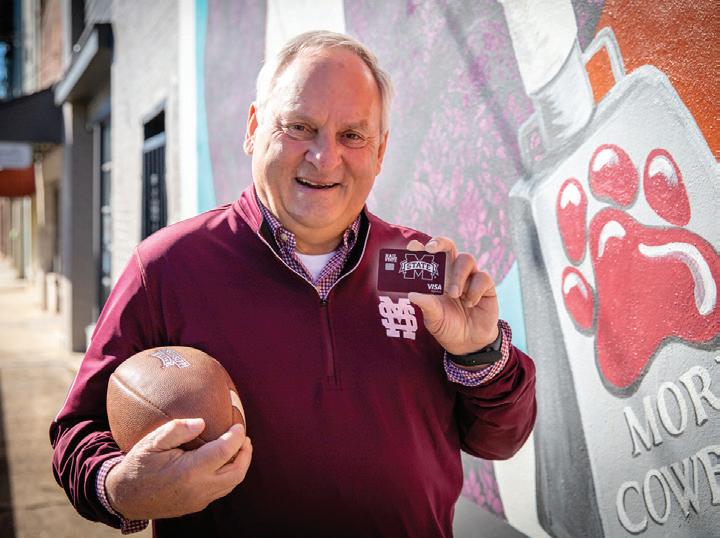
ALUMNUS.MSSTATE.EDU 57
. 1. CashBack redemption is applied as a statement credit. The statement credit will reduce your balance, but you are still required to make at least your minimum payment. Values for non-cash back redemption items, such as merchandise, gift cards and travel may vary. See commercebank.com/rewardsterms for full details.
The Mississippi State University Alumni Association is proud to honor 25 outstanding young alumni as the 2024 class of The Reveille 25 awards program.
Launched in fall 2021, The Reveille 25 seeks to highlight the remarkable accomplishments of the university’s young alumni. The familiar name of the program derives from MSU’s former yearbook, The Reveille, which chronicled student life throughout the institution’s history, and paid tribute to the university’s foundational military history.
Accordingly, the signature program annually honors 25 high-achieving, young alumni who are answering the call of the university’s mission for excellence, and inspiring others through the positive impact they are making in their communities and professions.
The 25 honorees, chosen from more than 200 applicants, were recognized on campus during a special event sponsored by the Greater Starkville Development Partnership.
ASHLEE DRAKE BERRY
If the corporate world and immigration law share one commonality, it’s that Ashlee Drake Berry is a force to be reckoned with. Born and raised in Iowa, she is an established, licensed immigration attorney who earned bachelor’s and master’s degrees from Mississippi State in 2009 and 2010, respectively. She later earned a second master’s from the University of Washington and a Juris Doctor from the University of Mississippi. During her time at Mississippi State, Berry was a starter on the women’s varsity soccer team while maintaining a 4.0 GPA. She is an attorney at Vialto Law PLLC, a U.S.-based law firm associated with Vialto Partners, the world’s
leading global mobility company. She also has prior in-house experience with a Fortune 500 company. Berry uses her expertise and talent to strategically advise business clients and streamline legal processes. She was selected by the U.S. Department of State’s Professional Fellows Program to serve as a representative in the country of Georgia where she developed sustainable partnerships and led a series of cocreated legal training programs. She deployed as a Department of the Army Civilian in the expeditionary corps to Kandahar, Afghanistan. Berry is also committed to community service by representing survivors of crimes, advocating for human rights and providing legal expertise for immigration reform.
RAYQUOTEZ BUTLER
Rayquotez Butler honed his skills and purpose during his time at Mississippi State, overcoming difficulties and achieved success he never imagined as an entrepreneur, motivational speaker and the youngest senior HR leader of a global company—all before the age of 30. The two-time MSU graduate earned a 2017 bachelor’s degree in communication and a 2019 master’s degree in public policy and administration. The Shelby native also holds certifications in diversity and inclusion from Cornell University and the University of South Florida. As a diversity, equity and inclusion consultant for global business consulting firm Deloitte, Butler facilitates allyship and training
58 SPRING 2024
ALUMNI News
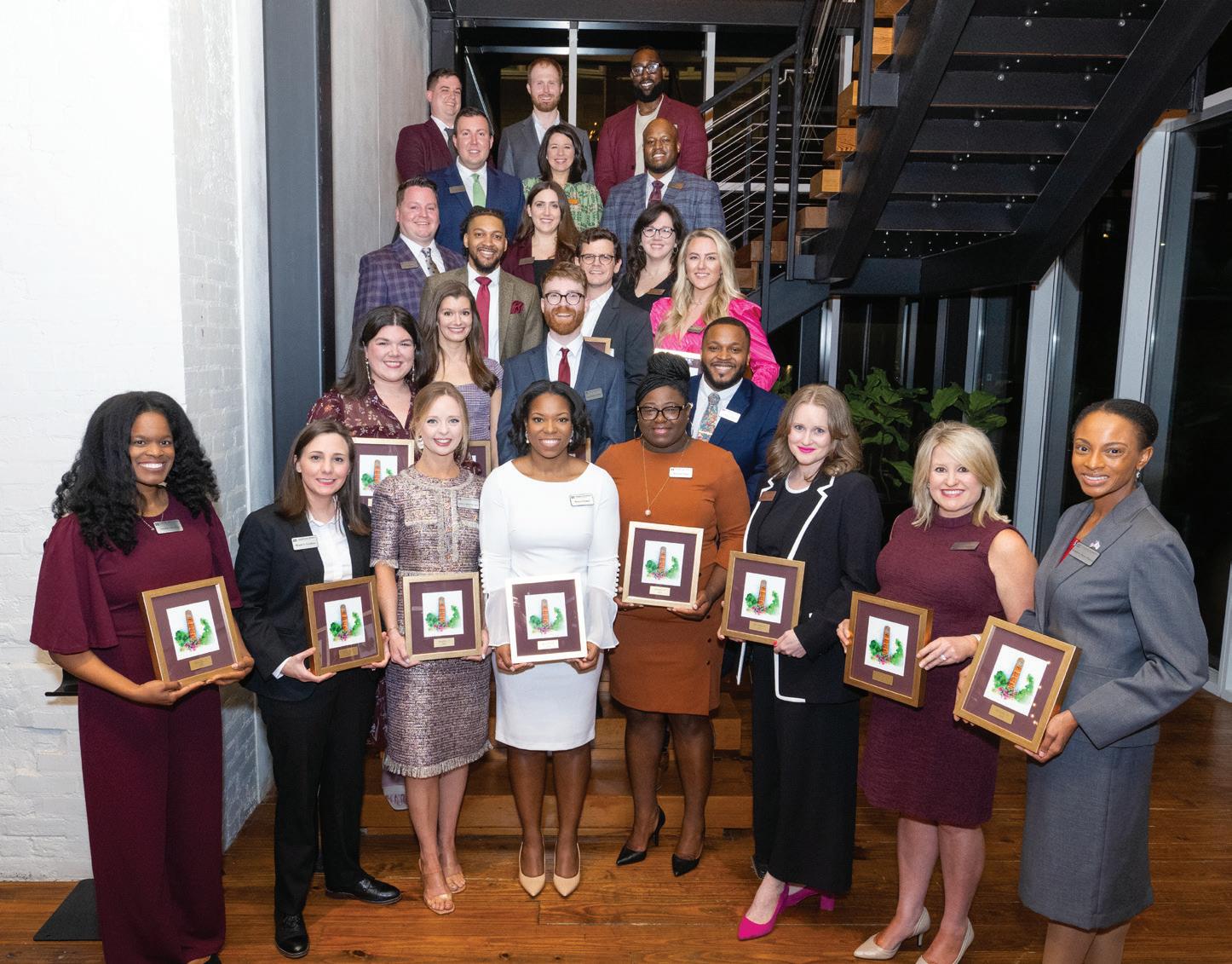
programs to ensure equitable opportunities for some 12,000 professionals from diverse backgrounds. Now residing in Dallas, Texas, he also founded Relentlessly Better Co. to expand his leadership service through motivational speaking engagements, which include being a featured TEDx speaker in 2022.
TYLER CAMP
Mantachie native Tyler Camp is a proven leader in public relations and community advancement. He earned a bachelor’s degree in communication from MSU in 2014 and serves as chief of staff and special assistant to the president of Itawamba Community College in Fulton. He assists and supports the
president with a wide range of responsibilities, including overseeing and leading community relations, recruitment, marketing and press. He also maintains a working relationship with members of the legislature to tackle complex budget issues and funding for the community college system and workforce development. His community involvement includes selection as a Top 10 Finalist for the North Mississippi Top 40 Under 40 Awards in 2017 and 2018, Itawamba County’s Friendliest Person in 2017 and Itawamba County Ambassador of the Year in 2019. Camp also is a graduate of the Community Development Foundation Jim Ingram Leadership Institute and was named the 2019 Grand Champion of the Dance Like
the Stars nonprofit fundraiser for raising more than $47,000 for the Boys and Girls Clubs of North Mississippi. In 2021, the Mississippi Business Journal recognized Camp as a Top 50 Under 40 recipient for the state of Mississippi.
JOHN CLEMMER
John Clemmer, a native of Madison, is at the forefront of converging mathematics with human physiology to help solve some of today’s most pressing problems in health and medicine. After earning bachelor’s and master’s degrees in biological engineering from MSU in 2008 and 2010, respectively, he completed a doctoral degree in physiology and biophysics at the University of Mississippi Medical
ALUMNUS.MSSTATE.EDU 59
Center. He now serves as an assistant professor at UMMC, where his research involves using mathematical modeling to understand various aspects of integrative physiology and potential treatments, particularly concerning cardiovascular diseases. One of his significant contributions is using virtual populations for simulating clinical trials. Clemmer earned numerous accolades for his work, including the Arthur C. Guyton Award for Excellence in Integrative Physiology and Medicine.
RASHAD COCKRELL
Rashad Cockrell’s professional journey has exemplified his dedication to lifelong learning and advocacy for students from diverse backgrounds. The Pontotoc native is a 2017 business graduate of MSU who also holds a master’s degree from the University of Central Arkansas and is pursuing a doctoral degree in higher education administration from the University of Southern Mississippi. He serves as director of the Wilbur N. Daniel African American Cultural Center at Austin Peay State University in Clarksville, Tennessee. There, he is responsible for overseeing and enhancing educational programs, events and services that promote a diverse intellectual and social environment, as well as crosscultural understanding among students and the community. Outside his work on campus, he invests in his community through volunteer support and has been recognized for his leadership service.
AMEKA COLEMAN
Ameka Coleman strives to teach others the importance of self-love, faith and community. A 2009 biological sciences graduate of MSU, she later earned a master’s degree in business administration from the University of West Georgia and a master’s degree in clinical research from the University of North Texas Health Science Center. In 2017, she founded Strands of Faith, a beauty and lifestyle company specializing in clean and empowering hair products for individuals with textured hair. The Brandon native has since grown the humble startup into a thriving seven-figure business that serves over
40,000 women worldwide. Coleman invests in aspiring entrepreneurs and advocates for STEM fields by providing free business consultations to help steer entrepreneurs along their journeys. Her dedication and hard work have garnered recognition from high-profile organizations such as SBA Thrive Emerging Leaders and the Beyonce Bey Good Foundation, among others. Coleman’s success as a beauty industry entrepreneur and community leader has earned her distinctions including being named the Top CEO of Mississippi in 2021 and the 2023 Best of Mississippi SOAR award.
MEGAN N. COSTILOW
Megan N. Costilow’s life and career have been shaped by her passion for community outreach and commitment to law enforcement. The 2017 MSU graduate earned a bachelor’s degree in political science followed by a Juris Doctor from the Mississippi College School of Law. She serves as director of the Mississippi Bureau of Investigation’s Criminal Information Center, where she leads the oversight of the state’s Sex Offender Registry. A certified law enforcement instructor by the Mississippi Board on Law Enforcement Officer Standards and Training, Costilow is a regular instructor for the Certified Investigator Program of the Mississippi Law Enforcement Officers’ Training Academy. She routinely travels the state to provide personal public safety measures and community awareness trainings for all ages on topics like cyberbullying, sextortion, stranger danger and child exploitation. Costilow is a strong advocate for professional development and community service and was a finalist for the 2023 National Criminal Justice Training Center Administrative Professional of the Year. The Grenada native is District XVI Justice within Phi Alpha Delta Law Fraternity, presiding over all law school and alumni chapters in Mississippi and Louisiana.
STEPHANIE CUMMINS
Stephanie Cummins is a successful broker associate and owner of Front Gate Realty LLC, based in Brandon. She graduated from
Mississippi State in 2007 with a bachelor’s degree in business administration and a minor in real estate. As one of the top producing agencies in the state with 35 active Realtors, Cummins’ business has sold over $1 billion in real estate since opening in 2010. A topproducing Realtor in Rankin County, she has also served on numerous Realtor committees and assumed leadership roles in professional organizations. She serves as treasurer for the Mississippi Association of Realtors, was the previous central Mississippi Realtor liaison to the Mississippi Mortgage Bankers Association and has served multiple terms on the boards of the Home Builders Associations of Jackson and Mississippi. She has received several awards for her contributions, including being named to Realtor Magazine’s 2013 30 Under 30, MAR’s 40 Under 40 in 2014 and Mississippi Business Journal’s Top 50 Leading Business Women in 2016. She also has served as a governorappointed member of the personnel board for the state of Mississippi since 2017.
RODERICK ERBY
New Albany native Roderick Erby is a 2016 business information systems graduate of MSU’s College of Business. He also earned an MBA with an emphasis in project management from Louisiana State University-Shreveport and is a Certified Information Systems Auditor. After working for several years in various positions within International Paper in Memphis, Tennessee, he relocated to Chicago, Illinois, where, after a short time working in a nonprofit, he now serves as an information technology audit advisor for IP. Erby also works as an adjunct professor at DePaul University’s Jarvis College of Computing and Digital Media, where he teaches a graduate course in IT auditing. Through his profession and a commitment to civic service and mental health advocacy, he regularly mentors students and peers and has been influential in recruiting fellow Bulldogs for employment opportunities in information technology at IP. He has received IP’s CEO and Global Excellence: Pillar awards and was recognized as a Memphis Flyer Top 20 Under 30 in 2020.
60 SPRING 2024
ALUMNI News
DR. BLAKE FORTE
Brandon native Dr. Blake Forte is a 2014 biological engineering graduate of MSU. He later earned a master’s degree in biomedical sciences from the University of Mississippi Medical Center, followed by both a master’s degree in health sciences and a Doctor of Medicine from Meharry Medical College. He is a third-year emergency medicine resident physician at Barnes Jewish Hospital in St. Louis, Missouri, where he is exposed to a variety of patients through rotations in the adult and children’s emergency departments, labor and delivery unit, operating room, and intensive care. He was selected to become one of the chief residents for his last year of residency and works shifts in the emergency departments of two community hospitals in the Greater St. Louis area. Forte is extensively involved in several volunteer organizations. He is a member of the American Medical Association and the American College of Emergency Physicians and has volunteered at local community resource programs and local elementary and high schools.
DR. SETH LADD
Dr. Seth Ladd, a Laurel native, is a 2009 kinesiology graduate of Mississippi State completed his Doctor of Osteopathic Medicine at William Carey University. He then completed a general surgery residency at St. John’s Episcopal Hospital in Queens, New York. He also obtained a fellowship in burn and reconstructive surgery at Johns Hopkins Hospital. He has earned many accolades for his research and presentations during his education. Ladd practices as a general surgeon at South Central Regional Medical Center in Laurel, where he specializes in minimally invasive, robotic and acute care surgery. He is also an adjunct clinical professor at William Carey University College of Osteopathic Medicine, where he mentors medical students and delivers lectures. He actively participates in community service and served as doctor for Camp Ridgecrest for Boys during summers. He also stays involved at MSU as a clinical adviser and preceptor for MSU’s pre-med students and part of
the Bulldog Mentoring program. He also serves Jones County as part of the advisory board and speaker for the Jones County Vocational School Allied Health Program. Ladd’s dedication and achievements have earned numerous accolades, including being selected as a Fellow of the American College of Osteopathic Surgeons.
RICHARD YOUNG “TREY” LEONARD III
Trey Leonard is a three-time MSU graduate who earned double bachelor’s degrees in mechanical engineering and mathematics in 2018, and a 2021 doctoral degree in mechanical engineering. He founded Standard Mechanics, a nationally acclaimed mechanical testing research lab in Starkville that specializes in data that influences the development of cutting-edge products across the automotive, electronics and power tools industries. The company was recently celebrated as the Best Metal Testing Service Company by Metals and Mining Review. Leonard has developed patented technology and contributed to special projects at prestigious institutes like the National Center for Manufacturing Sciences, National Science Foundation, Army Research Lab and others. He also volunteers with a group based at Johns Hopkins working to develop the first dynamic mechanical testing standards for ASTM. The Huntsville, Alabama, native remains involved at MSU where he has mentored mechanical engineering senior design teams and capstone projects in both engineering and business.
ANNE HOLLIS LIPSCOMB
Pontotoc native Anne Hollis Lipscomb earned bachelor’s, master’s and doctoral degrees from the MSU College of Education in 2015, 2017 and 2020, respectively. She pursued pre- and postdoctoral training at the Johns Hopkins University School of Medicine’s Kennedy Krieger Institute. As a licensed behavior analyst and psychology fellow, Lipscomb recently returned to campus to work at MSU’s T.K. Martin Center for Technology and Disability and the future Mississippi Institute on Disabilities. She
provides a variety of assessment and treatment services to individuals with developmental disabilities to meet their educational, social and behavioral needs. She also provides training and consultative services to schools and community stakeholders so they can better serve students with disabilities. Her research on increasing patient access to therapies in service deserts, mainly through parent training programs and waitlist workshops, demonstrates her commitment to improving the lives of others. Lipscomb also has been involved in community service projects such as the rEcess program, a monthly respite night for families of children with disabilities.
AUDREY JARVIS MCCARTY
Just three days before graduating from MSU’s Fashion Design and Merchandising program in 2018, Audrey Jarvis McCarty purchased The Bridal Path, a well-established bridal business in Jackson. Using the knowledge and skills she gained as a student, as well as her previous experience in retail, McCarty works to procure the best inventory in the South and create unforgettable experiences for her clients. Under her direction, The Bridal Path’s sales have tripled, and McCarty recently completed construction on a second, larger facility to expand the business into her hometown of Madison. She volunteers with organizations like the American Cancer Society, Mississippi Children’s Museum and Distinguished Young Women Program. She also leads mission trips and serves people experiencing homelessness.
IAN T. MCKAY
Ian T. McKay of Columbus, Ohio, earned master’s and doctoral degrees in clinical psychology from MSU in 2019 and 2021, respectively. He serves as a pediatric acute treatment psychologist at Nationwide Children’s Hospital and as a clinical assistant professor at Ohio State University’s College of Medicine. He serves as the attending psychologist on the adolescent inpatient unit and recently co-founded and co-developed an outpatient clinic, where his team provides
ALUMNUS.MSSTATE.EDU 61
specialized services for individuals ages 10 to 17 experiencing symptoms of psychosis or mood disorders. He has made significant research contributions, with multiple peerreviewed publications and ongoing projects, and has been recognized with numerous honors for his excellence in teaching, research and community service. After his mother’s passing in 2011, he founded Have a Big Heart, a nonprofit that supports the American Heart Association and scholarships for students.
MARY CHASE BREEDLOVE MIZE
Mary Chase Breedlove Mize is a 2013 communication graduate of MSU. She then studied clinical mental health counseling at Georgia State University, where she earned two master’s degrees and a doctoral degree. The Somerville, Tennessee, native is now an assistant professor of clinical mental health counseling for graduate and post-baccalaureate studies at Agnes Scott College in Decatur, Georgia. She also is director of counseling and supervision at Seek and Find Counseling and Consulting, LLC, a small private practice that specializes in grief counseling, coping with aging-related challenges, suicide intervention and prevention training, and clinical supervision. She has contributed to many articles, manuscripts and other publications, and co-authored the book “Keep Watch: Suicide, Christ and Community,” which was published in 2022. A member of many professional organizations, advisory boards and task force committees, Mize also has been a frequently invited speaker and training lead, sharing her expertise and experience with others in her field.
CHELSEA LADNER MOREA
Brandon native Chelsea Ladner Morea is a manager in strategic marketing at St. Jude Children’s Research Hospital/ALSAC in Virginia Beach, Virginia. She leads a team that creates and manages audience and campaign strategies to raise funds and awareness for the hospital, which was ranked the Most Trusted Nonprofit in 2023 by Morning Consult. With nearly eight years dedicated to the mission, her team works cross-divisionally with
stakeholders who, together, support nearly 75% of organizational revenue. She discovered her passion for fundraising and development as a student worker with MSU’s Foundation. Morea is a 2015 business administration graduate who also earned an MBA in 2016. She is actively involved in her community, serving in several capacities at her church and supporting the military community. Upon marrying a commanding officer in the U.S. Navy and relocating to Virginia Beach in 2020, she took on the role of president of the Officers Spouse Group to provide a support system and fellowship for spouses of activeduty service members who are away for training or deployed. Morea directly assisted families during loss, hardships and medical crises. Other responsibilities included community outreach and fundraising to provide over 150 sailors with household supplies and essentials upon their return from deployment. Morea has received several awards including the Highest Award for Achievement in Emerging Leaders by Dale Carnegie. However, she is most proud of the role she is able to play in supporting military families.
VICTORIA PARKER
After earning a degree in architecture in 2011, Victoria Parker began working for ESa design firm of Nashville, Tennessee, where she serves as senior project manager. She oversees a team of architects, interior designers and engineers on the creation of project design and construction documents. Parker is also responsible for schematic design studies, building systems’ coordination and construction administration. Her portfolio of completed and current projects represents over $700 million of construction. Notable projects for the Madison native include 17th and Grand, a high-rise commercial office building in Nashville, and Baptist Memorial Hospital of North Mississippi, both of which earned Awards of Excellence from the Associated General Contractors of Tennessee. She is involved in her community as a member of the Warhol Society, a nonprofit organization focused on the arts. In 2020, she founded the Nashville Art Company that sells art to benefit the Nashville Rescue Mission for the homeless
population. She maintains her involvement at MSU through the Bulldog Mentor Program, mentoring students furthering their study of architecture.
SHEMEKA PHIPPS
Shemeka Phipps, a Mound Bayou native, earned a bachelor’s degree in educational psychology at MSU in 2013. She later earned a master’s degree in human development and family studies from the University of Alabama and a doctoral degree in professional leadership from the University of Houston. Phipps is a Certified Family Life Educator and faculty member at Lee College in Baytown, Texas. She is deeply involved in community service, serving as a speaker for the Delta Educational Opportunity Center, Avance-Houston and the Department of Educational Leadership and Policy Studies at the University of Houston. She has served as an at-large council member of the National Learning Communities Association. Phipps has received many awards, such as the Heart of a Cougar Award, Coordinator of the Year, Outstanding Student in Family Studies Award and the Crimson Legacy Award. Her work with first-generation college students, student success, community building and leadership has been presented at conferences of all levels. Phipps’ dedication to advocacy and education led her to establish the Center for First-Generation Excellence, a nonprofit that provides support services to first-generation college students and their families. With the community’s support and notable corporations such as Ross Dress for Less, Tiff Treats, Walmart, Target, Dollar Tree and TDECU Credit Union, the nonprofit has supported over 150 students and their families.
MISSIE SMITH
For the last decade, Starkville native Missie Smith has applied her expertise in human factors to the safe design and development of novel augmented and mixed reality technologies across industry and academic positions. The two-time MSU graduate holds 2010 bachelor’s and 2012 master’s degrees in industrial engineering. She later earned
62 SPRING 2024 ALUMNI News
a doctoral degree from Virginia Tech and currently serves as a senior research scientist on the user experience research health and safety team for Reality Labs (Meta) in Redmond, Washington. She leads multidisciplinary teams in identifying and solving critical problems through research and informed communication efforts that further technological development. Her research spans foundational to applied research, enabling both knowledge generation and product development, and has been internationally recognized through 24 awards, 14 invited speaking engagements and 24 publications that have been collectively cited over 480 times. A dedicated community servant, she also is involved with multiple professional and volunteer organizations and has mentored over 100 early career professionals and students since 2013.
BIANCA THOMAS STAMPS
Bianca Thomas Stamps, a Gautier native, earned a bachelor’s degree in chemical engineering from MSU in 2018. She later earned an MBA from Loyola University and serves as a process simulation and control engineer at Chevron in Houston, Texas. She has successfully led product trials and campaigns, improved product quality, discovered lab testing opportunities, and reduced plant downtime while enhancing plant start-ups. Stamps is also passionate about diversity and inclusion. She has held numerous local and global leadership roles in Chevron’s Black Employee Network. She is also invested in student success and has several university partnership roles that allow her to facilitate recruitment, mentoring and career workshops with several universities, including MSU. She has earned several awards including Human Energy Measurable Value Awards, which are presented to those whose performance adds unquantifiable value.
MARK TALLEY
Southaven native Mark Talley earned a bachelor’s degree in architecture from Mississippi State in 2010. He is a principal architect of Tall Architects in Ocean Springs, which he co-founded with his wife in 2014. They lead an all-Bulldog team of architects
and designers to bring a forward-thinking and inclusive voice to architectural design, particularly in the South. Tall Architects has received numerous awards from the American Institute of Architects for its innovative and impactful architectural designs. Talley volunteers time and expertise to organizations including the MSU School of Architecture’s advisory board and Gulf Coast Community Design Studio, the Bethesda Free Clinic, the American Institute of Architects-Mississippi Chapter, the Gulf Coast Symphony Orchestra, and more. Talley has also actively engaged with local schools and organizations through free talks, workshops and educational sessions. Tall Architects’ professional achievements were also highlighted with Architect Magazine’s 2023 Next Progressives award, which honors firms that have made significant contributions to the industry in a short time.
JACOB TSCHUME
Jacob Tschume earned mathematics bachelor’s and master’s degrees in 2010 and 2012, respectively, and is pursuing a doctoral degree in higher education leadership. In 2012, he joined the Department of Mathematics and Statistics faculty at MSU, where he serves as an instructor and academic adviser for undergraduate math majors. In addition to having taught over 12,000 students across a variety of majors and disciplines, Tschume also serves on the Robert Holland Faculty Senate, is a faculty fellow for the university’s Luckyday Scholars Program and chairs the College of Arts & Sciences Curriculum Committee. He has been involved in mentoring programs, workshops for standardized tests and community service, and is an active member of the Mississippi Collegiate Mathematical Association. He has received several teaching awards including the 2020 College of Arts and Sciences Outstanding Teacher in STEM award and the 2022 Grisham Master Teacher award.
MANDY WALLACE, DVM
Mandy Wallace, a Jackson native, is a twotime MSU graduate who earned a bachelor’s degree in biological sciences in 2006 and a Doctor of Veterinary Medicine in 2010. She
also earned a master’s degree in veterinary medical sciences from the University of Florida and is a diplomate of the American College of Veterinary Surgeons. She serves as an associate professor in small animal surgery at the University of Georgia, where she uses her vast expertise in soft tissue surgery to research wound healing, congenital liver disease and septic peritonitis. Her primary role is to educate veterinary students, interns and residents by teaching them the latest surgical techniques. Wallace has contributed her surgical skills to animal shelters and rescues in Mississippi, Florida and Georgia. Her achievements have earned her numerous awards, including the A.M. Mills Distinguished Professor Award, American Bouvier Rescue League’s 2014 Veterinarian of the Year and being selected as a Graduation Hooder by UGA’s veterinary classes of 2021 and 2023, among others.
KIMBERLY RENEE WATSON
Kimberly Renee Watson obtained bachelor’s degrees in history and Spanish with a minor in political science in 2011, followed by a master’s degree in secondary education in 2013. She is part of the Rankin County School District, where she teaches Spanish and other languages, sponsors the Pelahatchie High School World Language Club, is the lead teacher for Poetry Out Loud and supports fellow educators early in their career as a R.I.S.E. mentor. She also is a member of the Teacher Advisory Council at both the district and state levels and an American Council on the Teaching of Foreign Languages Leadership Initiative for Language Learning Cohort 4 advocate. She has presented at local, state and regional workshops and conferences regarding rural, world language education and practices in the secondary world language classroom. Watson actively participates in community service through her involvement in the Junior League of Jackson and the Mississippi Children’s Museum. She has been honored with such distinctions as the 2022-23 Rankin County School District Secondary Teacher of the Year, 2022 Pelahatchie High School Teacher of the Year, 2023 Mississippi Foreign Language Association Teacher of the Year and 2023 Star Teacher.
ALUMNUS.MSSTATE.EDU 63
MAROON REACH & IMPACT
Learn
162,901 Total Living Alumni

1,120
64 SPRING 2024 ADVERTISE WITH THE MSU ALUMNI ASSOCIATION For more information, contact Leanna Smith, Assistant Director of Alumni Partnerships & Business Development, at LSmith@alumni.msstate.edu or 662-325-3360.
connect with the powerful network of Bulldogs through customized opportunities that are tailored to help achieve your objectives.
how your organization can
60+ 45—59 35—4 4 25—34 19—24 100+
globally
Alumni 140,381 digital 154,734 Active Members* 51,598 Top 6 Concentrated
(as of February 2024) Mississippi (53%) Alabama (6%) Tennessee (6%) Texas (5%) Georgia (3%) Florida (3%) *Denotes alumni and friends who have made a gift to MSU (Age Unknown Total: 2) Alumni By Age 50,790 39,899 29,483 34,434 8,293 No College Designated College of Ag. & Life Sciences College of Arch, Art & Design College of Arts & Sciences College of Business College of Education Bagley College of Engineering College of Forest Resources College of Veterinary Medicine Alumni By College 12% 2% 22% 3% 21% 22% 16% 1% ALUMNI CHAPTERS AND CLUBS
Addressable
States
45% 55% 1%

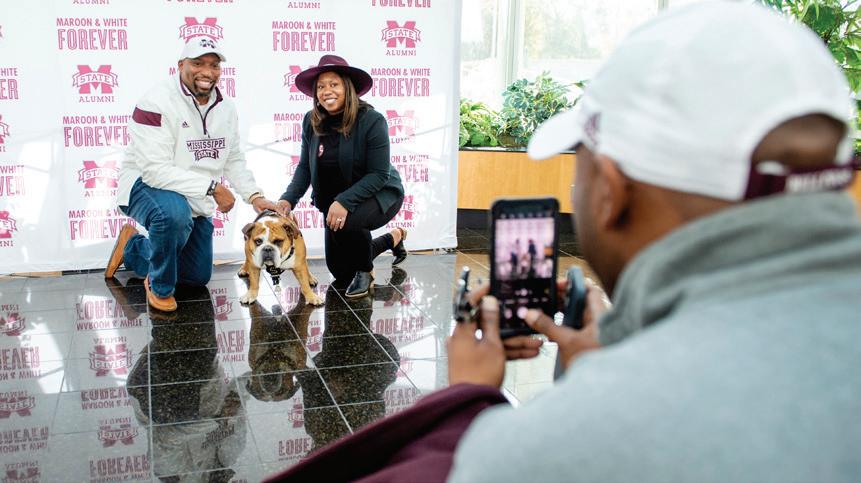
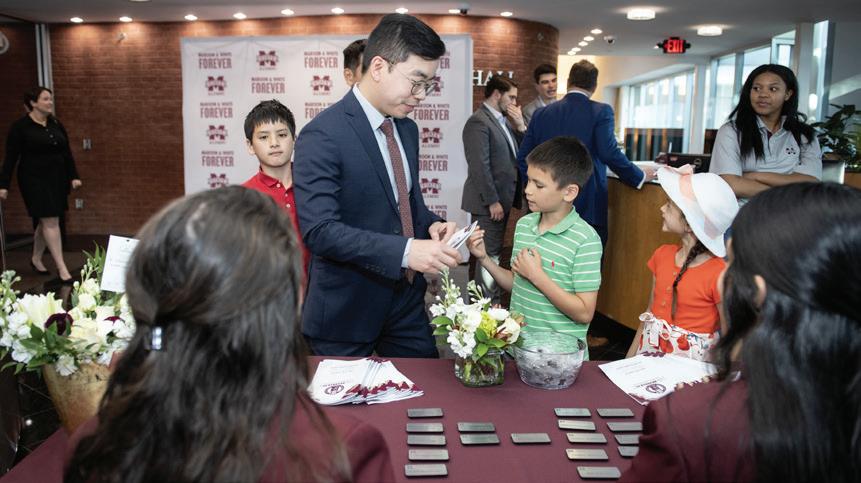
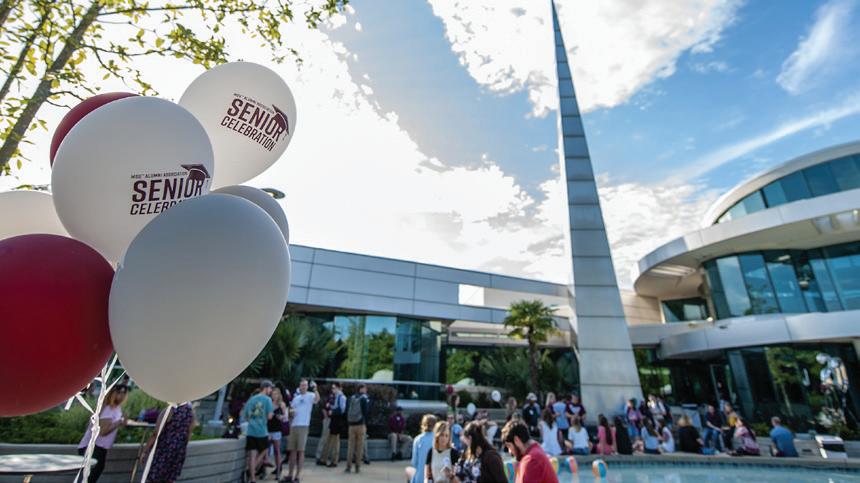
WAYS TO PARTNER
The Mississippi State University Alumni Association hosts events and offers programs and services which are directly supported by our partnerships. We can create a customized package to help your organization maximize its resources and strategic goals.
ADVERTISING OPPORTUNITIES
PRINT - Alumnus Magazine, event signage, and event promotion
Alumnus Magazine Distribution
u 2x/year Print, 1x/year Digital
u Reaches more than 51,500 active alumni association members
u Print Audience - Active alumni and supporters
u Digital Audience - All addressable alumni
DIGITAL - E-newsletters, social media, web, email, and mobile app
ENGAGEMENT OPPORTUNITIES
Engagement opportunities through events and programs:
u Tailgates (home and away)
u Black Alumni Weekend
u Awards Banquet
u Reveille 25
u Senior Celebration
u Traveling Bulldogs
u + Other Annual Events
ALUMNUS.MSSTATE.EDU 65
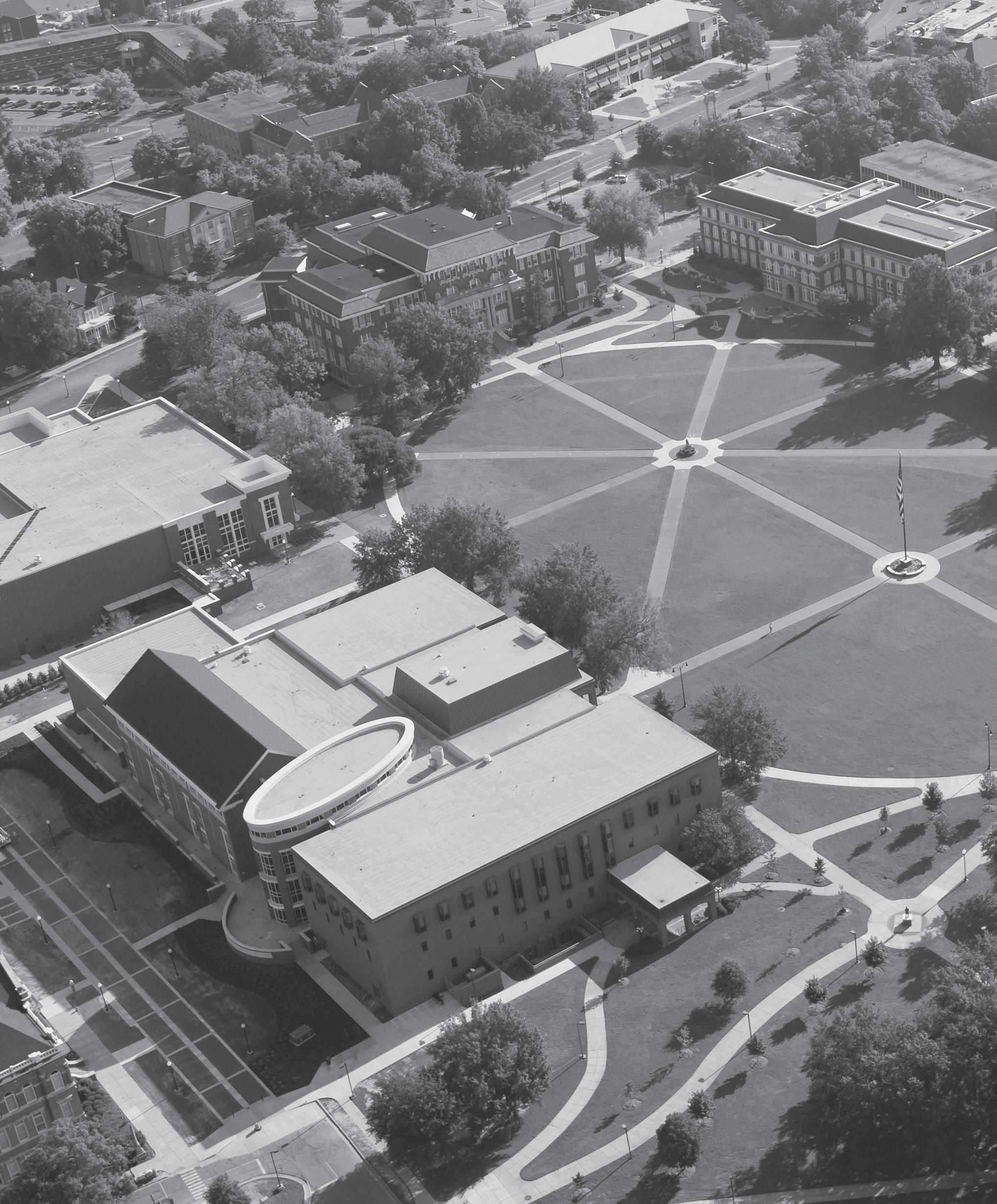
MSU Foundation Announces 2024 OFFICERS, INCOMING MEMBERS
The Mississippi State University Foundation is announcing its 2024 leaders and incoming members for the board of directors that guides the fundraising arm of the land-grant institution.
Incoming officers with new one-year terms that began Jan. 1 include three alumni: Anthony L. Wilson of Gulfport as chair; Rodger L. Johnson of Atlanta, Georgia, as vice-chair; and Paul J. Karre of Pawleys Island, South Carolina, as treasurer.
Wilson, who is entering his third term as board chair, previously served as vice chair for three terms. The D’Iberville native earned an electrical engineering degree from MSU in 1987, and also holds a Master of Business Administration from the University of Southern Mississippi. He serves as chairman, president and CEO of Mississippi Power Co. Prior to assuming his current role, he served as executive vice president of customer service and operations for Georgia Power.
Johnson is a 1971 civil engineering graduate of MSU. He also earned an MBA from Georgia State University in 1982. A native of Greenwood, he serves as president and CEO of JKC Holdings Inc.
Karre is the retired senior vice president of human resources and communications of International Paper. He earned a Bachelor of Business Administration in management from MSU in 1974. The Natchez native is a member and past president of the executive advisory board for the College of Business.
Rounding out the remaining board officers are MSU personnel. John P. Rush, vice president for development and alumni, is the board’s president and CEO; Janet H. Carraway, executive director of finance, is chief financial officer; and Jack McCarty, executive director of development, serves as board secretary. All are MSU graduates.
New members beginning inaugural terms are:
Jeffrey Clark of Madison, who earned a Bachelor of Business Administration from MSU in 1992 and is president and CEO of Keystone Specialty Pharmacy; Kenneth B. “Ken” Robinson of Boca Raton, Florida, a 1977 banking and finance major of MSU, who is a retired vice president for global diversity and inclusion at Procter and Gamble;
Terri Russell of Helena, Alabama, who earned1984 bachelor’s and 1986 master’s degrees in industrial engineering from MSU. She is a principal member of technical staff at AT&T Labs Inc. At MSU, she also leads the National Alumni Association board of directors as president.
Eight members who have previously served are returning to the board in new terms.
They are:
Frederick V. “Fred” Buie of Slidell, Louisiana, who earned bachelor’s and master’s degrees in industrial engineering from MSU in 1978 and 1991, respectively. He is the retired president and CEO of Keystone Electrical Manufacturing Co.
Randy J. Cleveland of Fort Worth, Texas, is a 1983 petroleum engineering graduate. He is a retired vice president of Americas for ExxonMobil Production Co.
John D. Davis IV of Flowood is a 1988 biological engineering and premed graduate of Mississippi State, who later received a medical degree from Johns Hopkins School of Medicine in 1992. He is a founding partner and neurosurgeon for NewSouth NeuroSpine.
W. G. “Mickey” Holliman Jr. of Belden is a 1960 industrial management graduate. He is retired chairman and CEO of Furniture Brands International. He also holds a 2017 honorary Doctor of Science from MSU.
William A. “Lex” Taylor III of Louisville is a 1977 general business administration graduate. He is chairman and CEO of The Taylor Group Inc. and president of Taylor Machine Works Inc.
ZonaDale L. Taylor of Collierville, Tennessee, completed postgraduate work at Mississippi State before joining the faculty as an assistant professor in the home economics department. She retired from GlaxcoSmith-Kline Healthcare as manager of consumer and public affairs.
Douglas T. “Doug” Terreson of Point Clear, Alabama, is a 1984 petroleum engineering graduate. He retired as head of global energy for Evercore ISI.
Turner Wingo of Starkville is a 1967 business graduate of MSU. He is a retired real estate developer and the former owner of Sherry’s Hallmark.
Chartered in 1962, the MSU Foundation administers most of MSU’s campus-based fundraising activities and endowment funds. More information is available at www.msufoundation.com and @MSU_Foundation. n
66 SPRING 2024
GIVING Back
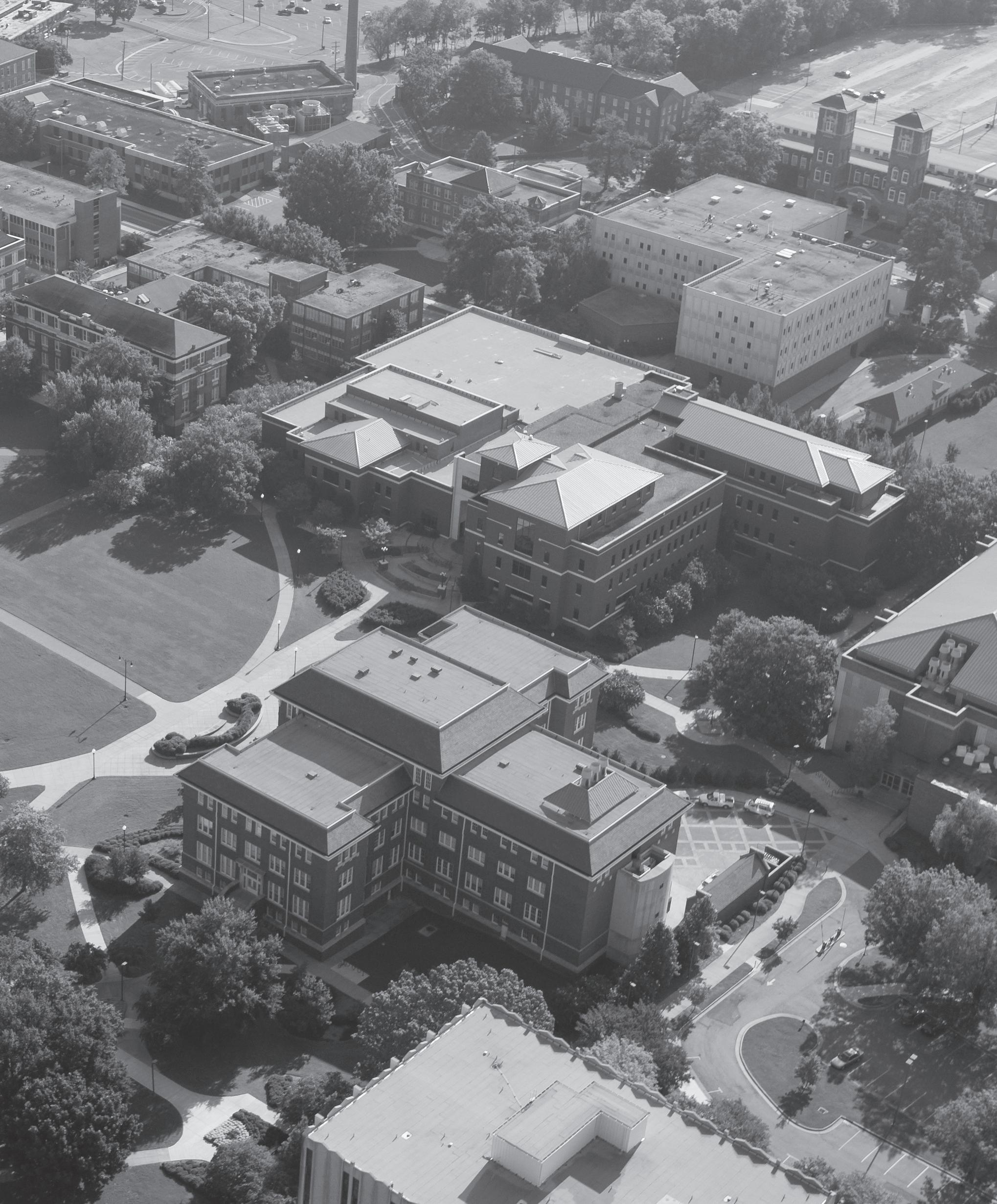
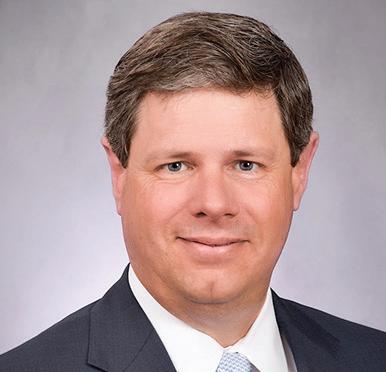
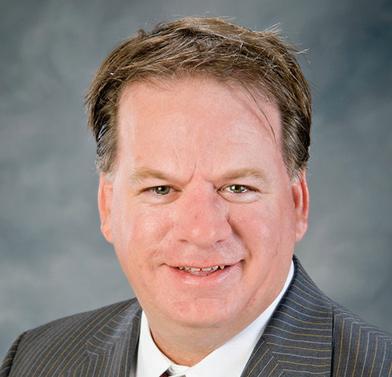
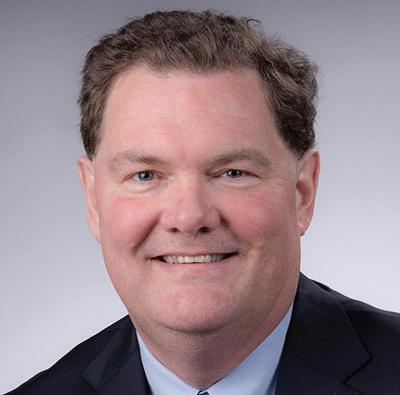
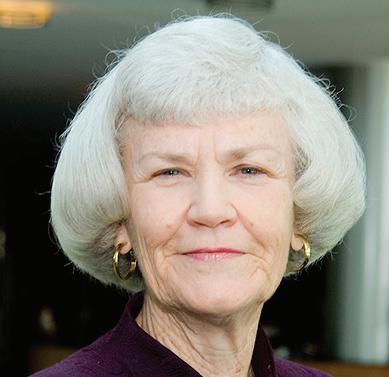
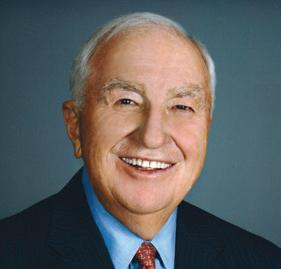
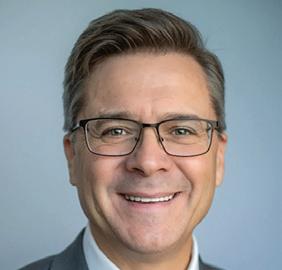
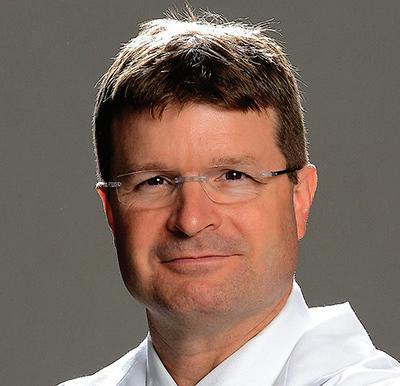

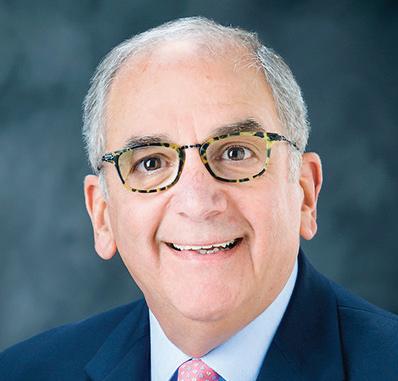
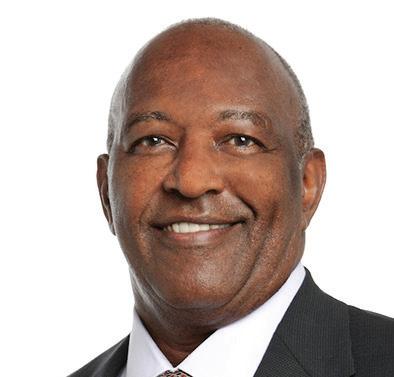
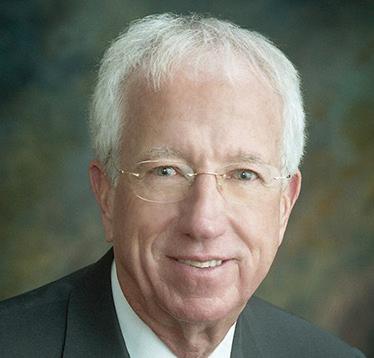
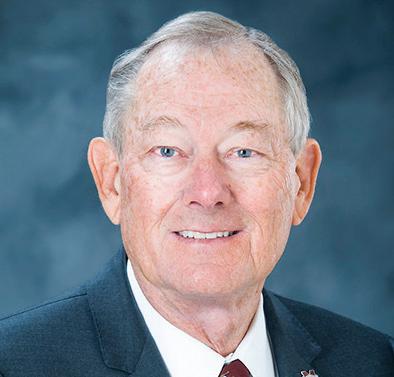
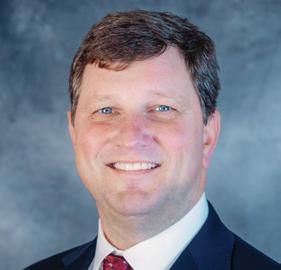
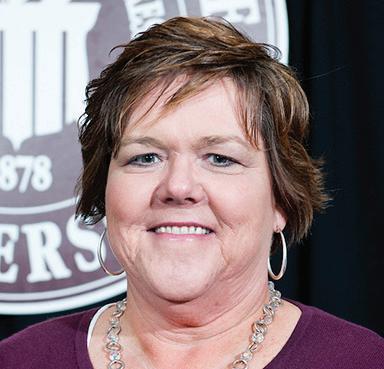
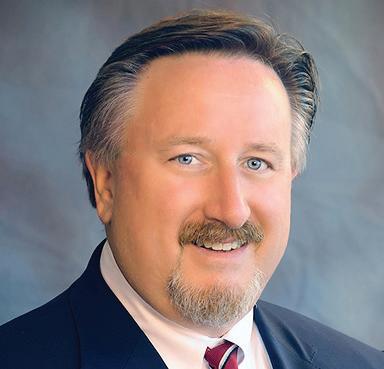
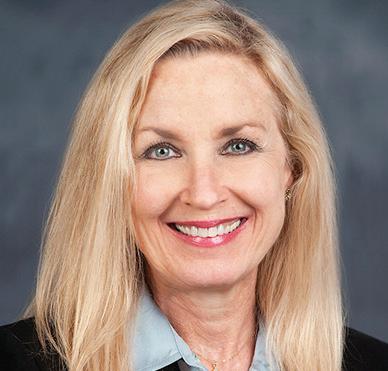
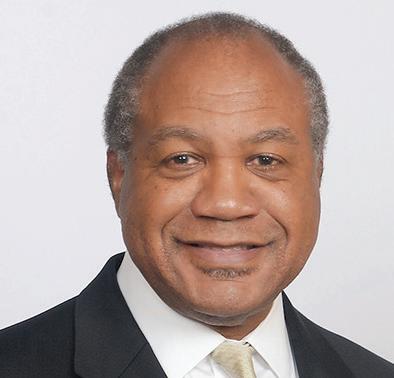
ALUMNUS.MSSTATE.EDU 67
Anthony L. Wilson
Rodger L. Johnson
Paul J. Karre
John P. Rush
Janet H. Carraway
Jack McCarty
Jeffrey Clark
Kenneth B. “Ken” Robinson
Terri Russell
Frederick V. “Fred” Buie
Randy J. Cleveland
John D. Davis IV
W. G. “Mickey” Holliman Jr.
William A. “Lex” Taylor III
ZonaDale L. Taylor
Douglas T. “Doug” Terreson
Turner Wingo
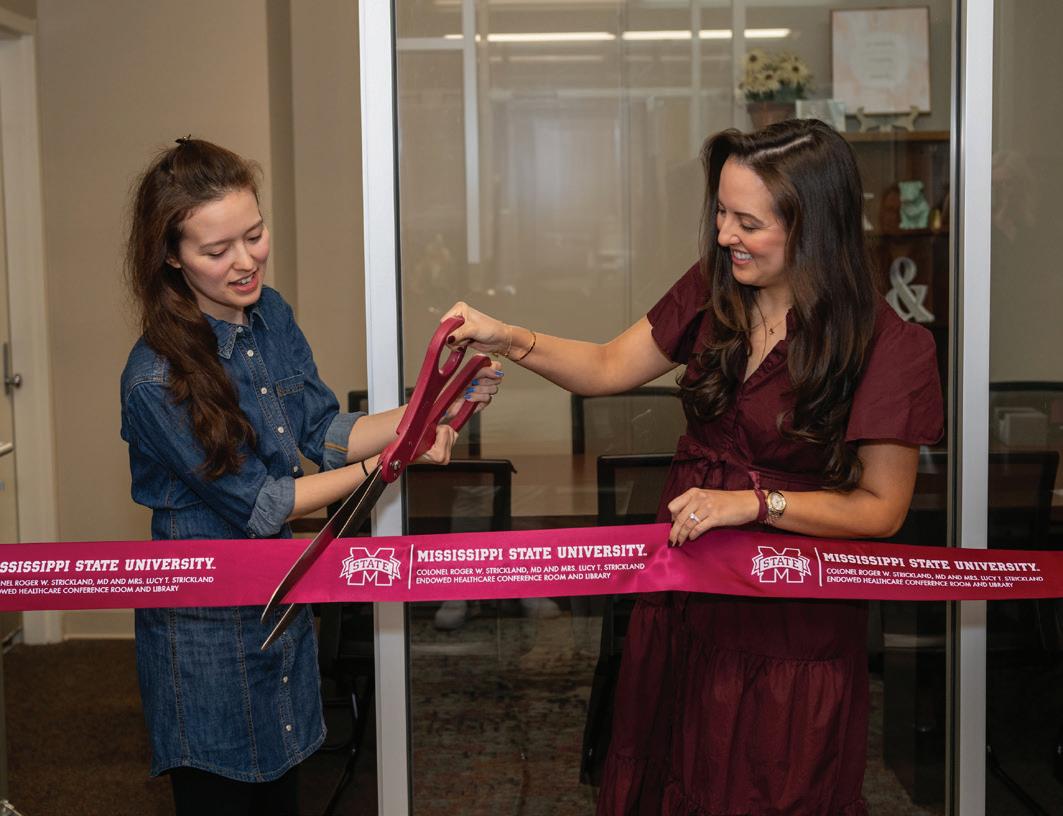
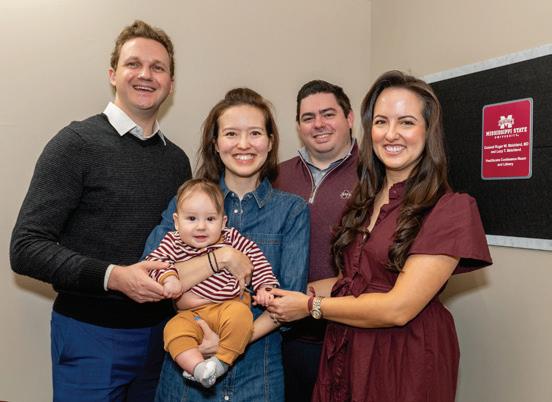
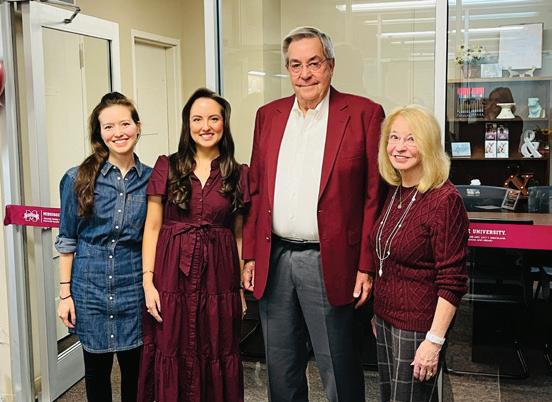
Sisters enshrine parents’ LEGACY AT MSU
By Addie Mayfield, Photos Submitted

Drs. Amanda and Nicole Strickland have always admired and shared a close bond with their parents, Col. Roger W. Strickland and Lucy Tong Strickland. The twins reflect fondly on their upbringing, marked by many special memories and lessons learned that helped them become who they are today.
Through a recent gift to Mississippi State University, Amanda and Nicole are honoring the memory of their late parents and forging their own True Maroon connections within the Bulldog family.
Roger Strickland grew up in Richton as the only child of a farming family. Through his hard work and dedication, he graduated valedictorian of Sand Hill High School. He enrolled at Mississippi State University in 1972 and began his studies with a premed concentration. He earned early acceptance to the University of Mississippi Medical School in 1975 and received the Army Medical
Scholarship, which established the beginning of his military medical career.
He completed an internal medicine residency at William Beaumont Army Medical Center in El Paso, Texas, where he was chief resident. He also completed a rheumatology fellowship at the Walter Reed Army Medical Center in Washington D.C. He subsequently became the assistant chief of rheumatology at Walter Reed, greatly expanding the center’s rheumatology fellowship and training nearly 30 rheumatologists, and also served as an associate professor at the Uniformed Services University of the Health Sciences.
He was a physician member of the Congressional Tour after the first Gulf War and served as chief of medicine at the Martin Army Community Hospital in Fort Benning, Georgia, before being appointed the division surgeon of the 1st Cavalry Division at Fort Hood, Texas. There, he was promoted to his final rank of colonel. Unfortunately, his career trajectory was cut short when he passed away from cancer in 1998 at the age of 44.
Despite their father’s untimely death when they were young, Amanda and Nicole are grateful for the time they had with him.
“He taught us how to ride a bicycle, and he read the Bible to us every night, providing a strong foundation for our Christian values," Nicole said. “We spent a lot of holidays and summers in Richton at our grandparents’ farm where we were taught how to fish, pick pecans and how to fix things around the farm with our dad.”
Roger traveled all over the country and world throughout his life, however, he considered himself a Mississippian first and foremost. He made sure to share the love of his home with his Texas-native daughters, who agree that some of their happiest childhood memories were made in the Magnolia State.
“Based off our memories of our father along with what our mother told us over the years, we were very aware that our father wanted to give back to this state,” Amanda said. “He experienced a lot of wonderful things and places through his military career, but Mississippi was always home.”
68 SPRING 2024 GIVING Back
In addition to being where he grew up, Mississippi was also where he met the love of his life, Lucy Tong.
Born and raised in Hong Kong, Lucy came to the United States in the fall of 1972 to pursue a degree in biochemistry at Mississippi State University. There, she soon caught the eye of a young Roger Strickland who would eventually become her husband. The two first crossed paths during a freshman honors chemistry course in the Hand Chemical Laboratory, where they were paired as lab partners. Lucy graduated from MSU in 1975 and the couple were soon wed.
While supporting her husband’s medical training and military career, she continued her education at the University of Texas at El Paso, where she obtained an MBA. She later earned a Texas teacher’s certification in elementary education and was proud of her broadspectrum education.
Lucy spent the last 20 years of her life serving as a substitute teacher in the Killeen, Texas, Independent School District. She touched many lives through her work, treating every student with care and respect.
“For years, students stopped us in the grocery store saying, ‘Your mom helped me keep my scholarship.’ She really played a major role in so many people’s lives,” Amanda said.
However, her lifelong passion and most devoted work was raising her twin daughters— Amanda and Nicole—who shared her love for education and followed their father’s footsteps to become physicians as well.
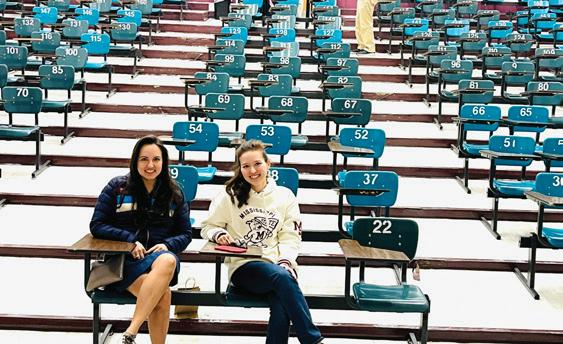
Amanda and Nicole grew up in Harker Heights, Texas, and graduated early from Texas A&M University with honors in 2011. The sisters then pursued medical degrees from the University of Texas Southwestern Medical School, earning their medical degrees in 2015. Today, Amanda is an academic pathologist in Chicago, Illinois, while Nicole is a dermatologist in private practice in the Dallas-Fort Worth area.
“Our early inspiration to become doctors was from watching our father read health care journals, medical books and other texts every night and remembering his excitement from learning something new," Nicole said. “As a doctor you are never done learning, and it looked like something fun to do.”
Upon Lucy’s passing in 2022, Amanda and Nicole began considering ways to honor the impact their parents made in their lives, as well as the lives of others. The following year, they decided to invest in a naming opportunity that forever connects the alumni couple to the place their journey began—Mississippi State University.
“We are aware of how long, expensive, and physically and mentally challenging it is to become a physician, and we thought a lot about the support both our parents provided to help us become the health care professionals we always wanted to be," Amanda said. "Because of what we experienced, we felt that money should be the last reason preventing motivated and talented students from starting their healthcare journeys. There is a national
shortage of physicians, dentists, veterinarian physicians and other health care professionals, particularly in Mississippi. We are very honored and pleased to be a part of the solution.”
The Col. Roger W. Strickland, M.D and Mrs. Lucy T. Strickland Endowed Healthcare Conference Room and Library in the Dr. A. Randle and Marilyn W. White Health Professions Resource Center at MSU will serve as a valuable student resource for years to come, providing dedicated study space for future health care professionals. Both Amanda and Nicole carry fond childhood memories of Mississippi and are proud to carry on their parents’ legacy in a meaningful way.
“We are just facilitators to make this happen, and we know our parents would be thrilled to know they are a part of this effort,” Amanda said.
The sisters traveled to MSU last fall to cut the ribbon of the newly named space during a special unveiling ceremony hosted by the College of Arts and Sciences. During their visit, they took time to tour campus and experience some of the MSU memories their parents made together. They also had their first Egg Bowl experience cheering on the Bulldogs and scoped out the classroom in Hand Chemical Laboratory where their parents most likely met as freshmen.
“It is a privilege to do this and to be a part of this," Nicole said. “We could not be prouder and more honored to help the state that we emotionally call home.”n
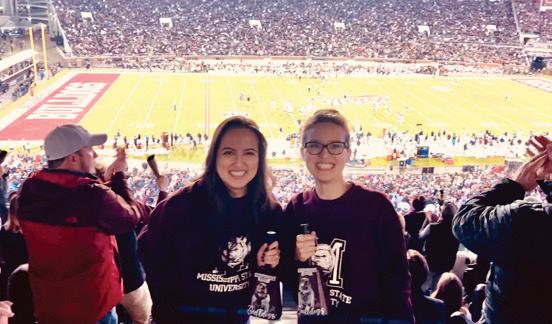
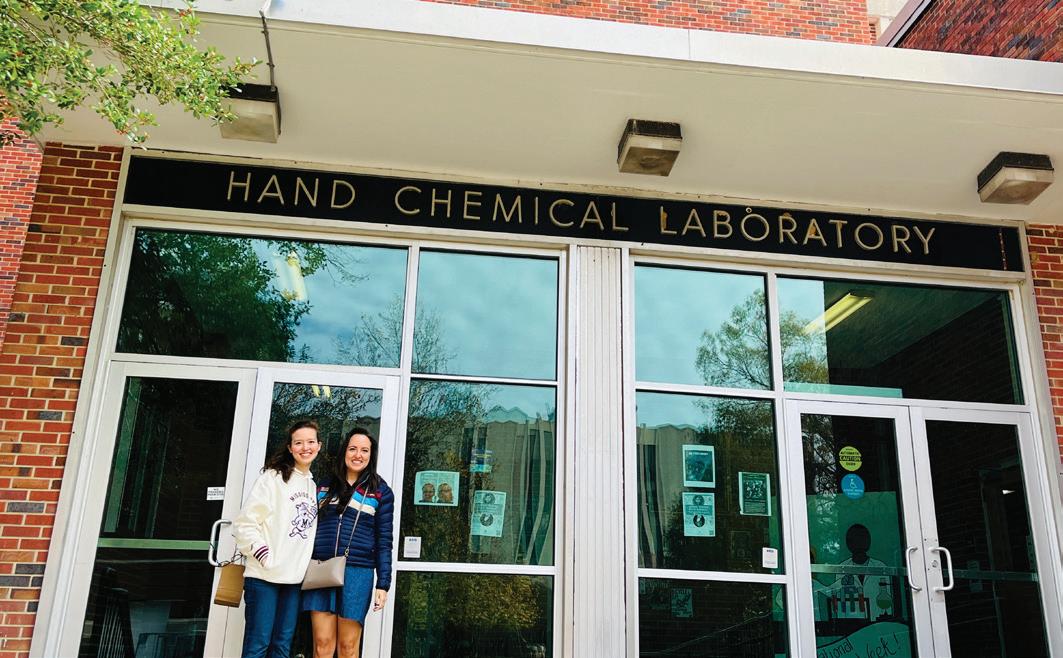

ALUMNUS.MSSTATE.EDU 69
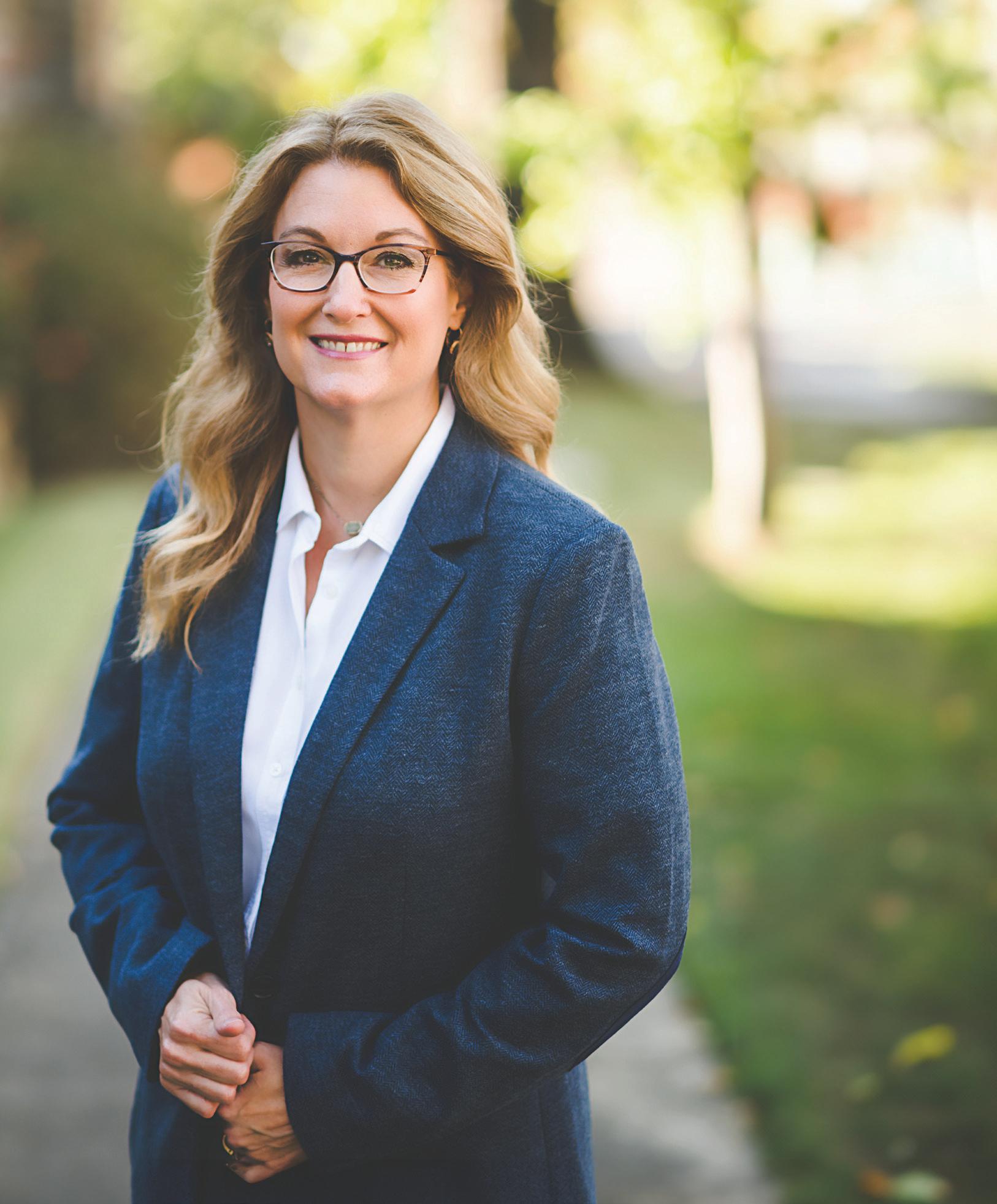
BUILDING DREAMS ArchitectureSouth endows scholarship at Mississippi State
University
By Addie Mayfield, Photos Submitted
70 SPRING 2024 GIVING Back
LINDA EDWARDS SMITH
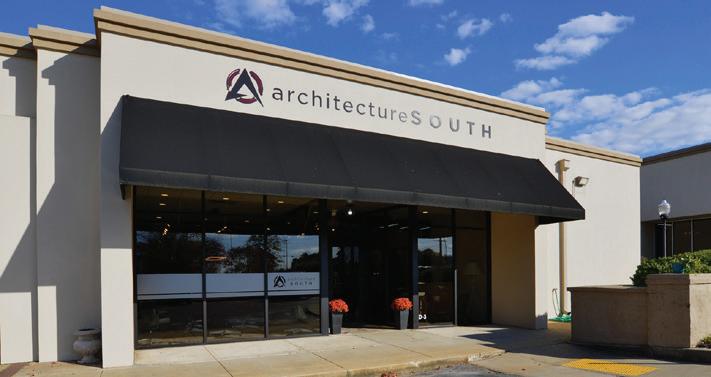
In the heart of downtown Tupelo, ArchitectureSouth is an integrated architecture, planning and interiors studio with more than 50 years of experience. Led by principal architect Linda Edwards Smith, an alumna of Mississippi State University, the firm recently made a significant commitment to the land-grant institution by establishing an endowed scholarship within the College of Architecture, Art and Design’s School of Architecture.
For Smith, who graduated from the School of Architecture in 1995, this endeavor is more than just a philanthropic gesture; it’s a testament to the transformative power of education and opportunity.
“When I was a student at MSU, I received a second-year award from ArchitectureSouth, formerly Staub Robinson and Williams, which helped in my pursuit of becoming an architect,” Smith said.
She said she sees this endowed scholarship as a way to pay it forward and support the next generation of aspiring architects.
“I thought it was a great opportunity to recognize deserving students and encourage their pursuits of becoming architects,” she said. “By doing an endowment, ArchitectureSouth can continue to recognize and help students long after I am gone and continue to invest in the architectural profession.”
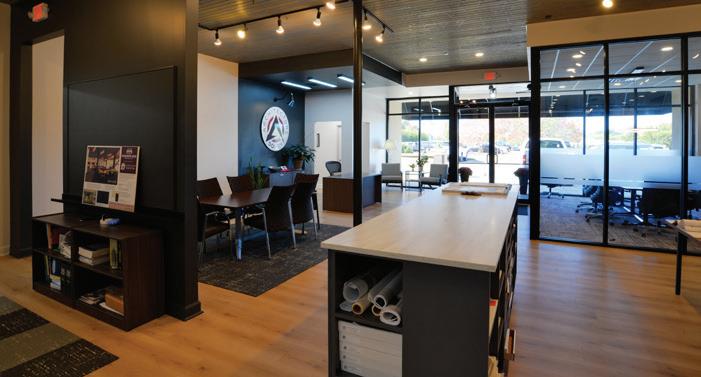
Candidates for the ArchitectureSouth Endowed Scholarship will be full-time entering freshmen pursuing a degree within the School of Architecture. They must have a minimum 3.0 high school GPA and demonstrate exceptional work ethic and leadership skills. In addition to the endowed scholarship, ArchitectureSouth has established an annual scholarship to award while the endowment matures.
“I thought it was a great opportunity to recognize deserving students and encourage their pursuits of becoming architects,” she said. “By doing an endowment, ArchitectureSouth can continue to recognize and help students long after I am gone and continue to invest in the architectural profession.”
~ Linda Edwards Smith
Beyond the scholarship investment, ArchitectureSouth has been involved in a variety of projects on and off campus in an effort to increase its presence at MSU. The firm also participated in the co-op program last year, and Smith recently joined the advisory board for MSU’s School of Architecture, aiming to strengthen the bond between ArchitectureSouth and the university.
“Through my involvement on the advisory board and the establishment of the ArchitectureSouth endowment, I hope to have a lasting positive impact on the
study and practice of architecture at MSU, Mississippi and beyond,” Smith said.
A native of Fulton, Smith always loved the arts and the process of building or making things. After earning her associate degree in art from Itawamba Community College, she wanted to continue her studies with a degree program that involved more math and engineering to complement her art education. Architecture seemed to be a perfect fit. MSU’s proximity to her home and its thriving architecture program made it a perfect fit as well.
“MSU and the School of Architecture gave me a chance to not only learn and grow but experience things that a young lady from a small town in Mississippi would not have been able to do otherwise,” she said. "I had an opportunity to travel in the United States and abroad, participate in the co-op program, the Carl Small Town Center and an exchange program.”
Smith credits the skills she acquired at MSU with helping her to prosper, not just in her profession, but in all areas of her life. She believes the same is true for many other Bulldog alumni and is amazed at the widespread impact of the work of her School of Architecture classmates.
“I would like to do a small part in helping that success continue,” she said.
With the establishment of the endowed scholarship, Linda Edwards Smith and ArchitectureSouth are not just building structures—they’re building dreams, ensuring that aspiring architects have the resources and support they need to shape the world around them for generations to come. n
ALUMNUS.MSSTATE.EDU 71
1970s
Bill Backstrom (B.S. accounting, ’76) received the 2023 Council on State Taxation Paul Fankel Excellence in State Taxation Award during the annual meeting in Las Vegas, Nevada. He is a partner and tax practice group leader with Jones Walker LLP, one of the largest 135 law firms in the U.S.
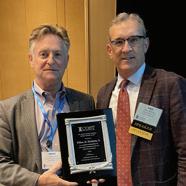
1980s
David Bowman (B.S. civil engineering, ‘88) earned the 2023 Teddy Roosevelt Award from the Mississippi chapter of the American Council of Engineering Companies. He is a senior vice president at Neel-Schaffer with more than 35 years of experience with the company as a project engineer and manager on a variety of projects.
1990s
Julie Liddell Whitehead (B.A. communication, ’90; M.A. English, ’92) will release a short story collection through Madville Publishing in August 2024. “Hurricane Baby” began in 2005 as a work of fiction exploring the traumatic effects of Hurricane Katrina. Part of the manuscript was produced as a play in 2010 and won an award at the Eudora Welty New Plays Festival at New Stage Theatre in Jackson. It is available for pre-order through the publisher’s website.
2000s
Kentorri Garmon (B.S. agricultural economics, ’00; M.S. geosciences, ‘04) is now deputy commissioner for the Department of Public Works in Atlanta, Georgia. He previously served as the director of performance and
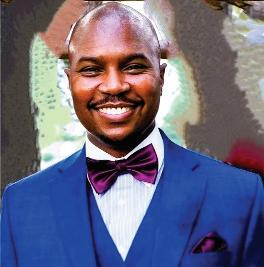
innovation delivery within the organization. Prior to joining the public works department, he spent 17 years in the private sector with AT&T where he held numerous positions and was instrumental in managing operational forces for the restoration and rebuilding of telecom infrastructure in the wake of natural disasters on the Mississippi Gulf Coast and in the Pine Belt region.
He has more than a decade of experience within NASCAR, including director of ticketing at Talladega Superspeedway and vice presidential roles with NASCAR’s Southeast Region.
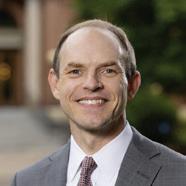
Nathan Moore (B.S. political science, ‘02; M.S. public policy and public administration, ‘09) is now deputy chief of staff to the president of the University of Georgia. He first joined the UGA president’s office as a graduate student in 2018. Since then, he has built his responsibilities to include executive communications, strategic planning and special initiatives. Upon completion of a doctoral degree from the McBee Institute of Higher Education, he became a postdoctoral fellow. He was named an assistant to the president in 2021. Prior to UGA, he held numerous positions at Mississippi State including director of corporate and foundation relations and director of development for the College of Architecture, Art and Design.
Dave Nussbaum (M.S. geosciences, ’03) is now chief meteorologist for WIAT CBS 42 serving the BirminghamTuscaloosa-Anniston market in Alabama. He joined the station in 2021 providing severe weather coverage and has more than two decades of experience forecasting and covering across the Gulf Coast. He previously was a television meteorologist in Baton Rouge and New Orleans, during which time he provided 30 hours of continuous live coverage of Hurricane Katrina.
Josh Harris (B.B.A. ‘04) is now president of Darlington Raceway. He previously served as vice president of business operations for the “Track Too Tough to Tame.”
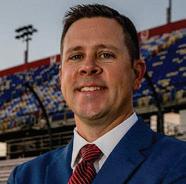
Amanda Koonlaba (B.S. elementary education, ‘04) was named to the Association for Supervision and Curriculum Development Champions in Education program. A teaching artist coordinator for Mississippi Whole Schools, she is one of 11 selected nationwide to collaborate with experts, share experiences and disseminate research findings about new instructional strategies.
Josh Patrick (B.S. biological sciences, ’08) and Justin McElroy (B.A., M.A. English, ’07, ’09) of Eye Care Associates of Laurel were recognized by the Mississippi Optometric Association. Patrick earned the 2023 OD Community Service award while McElroy was a finalist for the 2023 Helen St. Clair Young Optometrist of the Year.
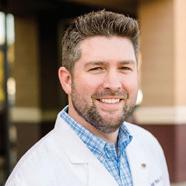

2010s
Jennifer Sloan Ziegler (B.S., M.S. civil engineering; Ph.D. engineering, ‘10, ‘12, ‘13) earned a 2023 Edmund Friedman Young Engineer Award for Professional Achievement from the American Society of Civil Engineers. She is an environmental senior project manager at Neel-Schaffer Inc. Earlier in 2023, she was named one of the Top 20 Under 40 Rising Stars in Professional Engineering by Engineering News-Record.
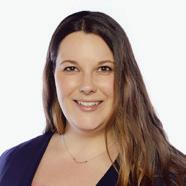
72 SPRING 2024 CLASS Notes


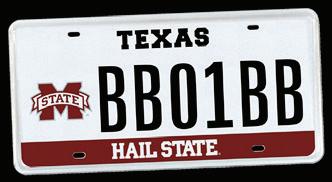
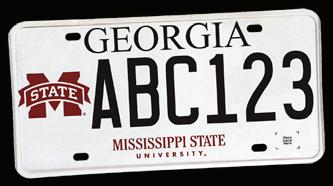





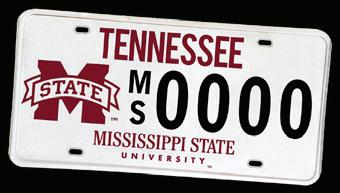
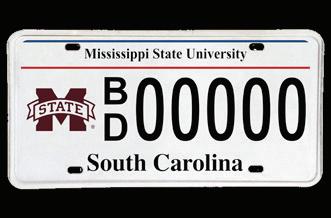
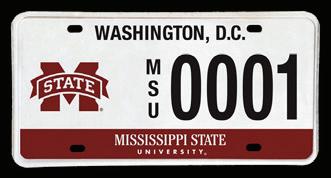
ALUMNUS.MSSTATE.EDU 73 For more information about purchasing a Mississippi State University car tag, please visit alumni.msstate.edu/cartag From vacations to apparel, entertainment and more…save thousands on your favorite brands and everyday essentials. Get exclusive savings not available to the public –personalized just for you! msualumniperks.benefithub.com MSU Alumni, welcome to a new way of shopping. Start saving today in the Discount Marketplace!






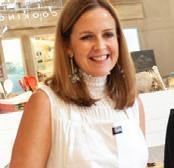






Wrap them in Maroon and White
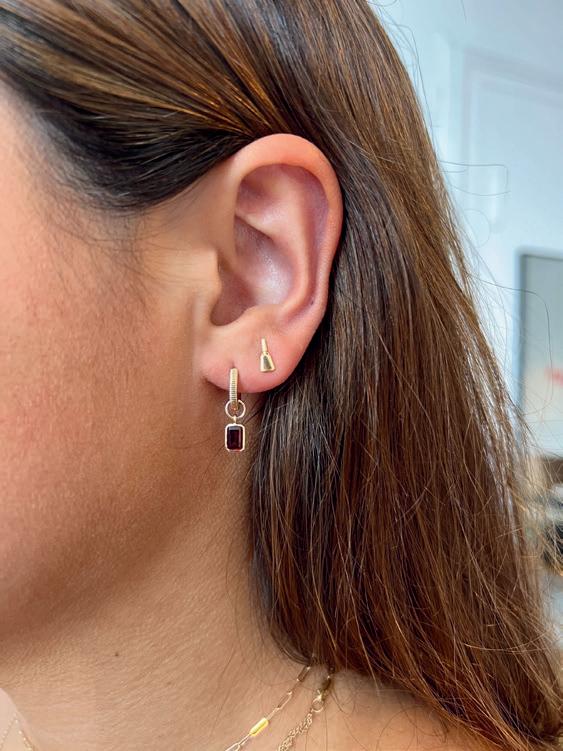


The Mississippi State University Legacy Program helps you "wrap your kids in Maroon and White.” Beginning with their first birthday, your child will receive a card and a special gift from the Alumni Association each year. Join a community steeped in tradition and excellence! The Legacy Program celebrates family ties and honors generations of Bulldog pride. Become a part of the tradition early with a Future Bulldog Certificate from the Alumni Association and enroll them into the Legacy Program, today.
























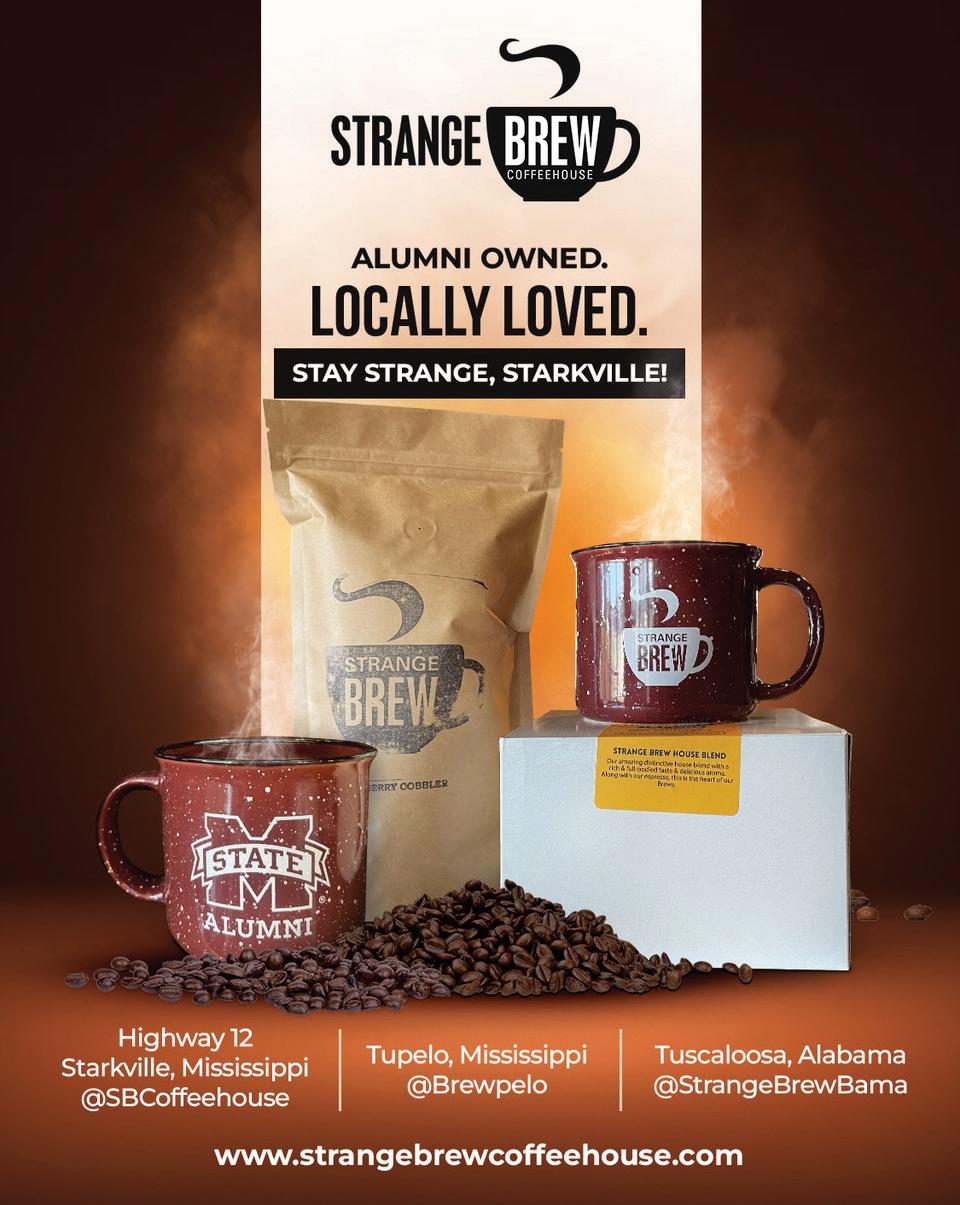
74 SPRING 2024
The Mississippi State University Jewelry Collection
BY WOMEN-OWNED KYLE CAVAN JEWELRY
KYLECAVAN.COM
New cowbell earrings now available!
HAVE
ALUMNI.MSSTATE.EDU/LEGACY-PROGRAM
A YOUNG BULLDOG IN YOUR LIFE? HAVE A YOUNG BULLDOG IN YOUR LIFE?



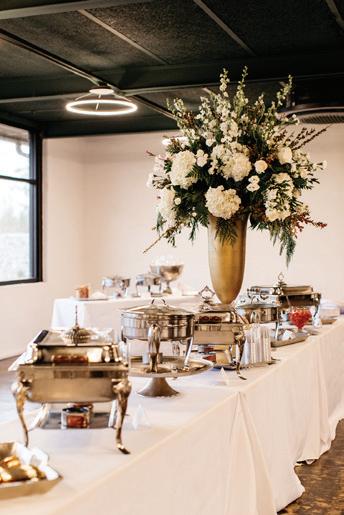


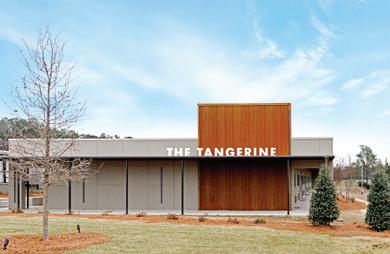
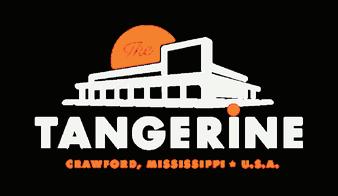



75
newest,
unique venue
industrial-chic design
layout, The Hill
provides the perfect
next conference, wedding,
special event.
our boutique motel
18
can
unique
comfortable accommodations
special
remember. 1699 Moor High Rd Crawford, Mississippi TheHillandMoor.com TheTangerineMotel.com / . .
The
most
with an
and versatile
and Moor
backdrop for your
or
Also onsite is The Tangerine,
with
rooms that
provide
and
to make your
event one to
Lawrence Atkins (B.S. business administration, ’50) 96, Camden, Tennessee – He served in the Pacific Theater during WWII. Following his graduation from Mississippi State, he worked for the Tennessee Valley Authority for 38 years. He held an MBA from Murray State University and was a salesman for Allstate Insurance. — Nov. 7, 2023
Douglas Michael Davidson (attended; former Bulldog athlete) 85, Chesterfield, Virginia – He attended Mississippi State on a football scholarship before graduating from Southern Illinois University with a bachelor’s and later Pepperdine University with a master’s. He enlisted in the U.S. Marine Corps and served more than 27 years on active duty, eventually retiring as a colonel. He served two tours of duty in Vietnam and later served with the Multinational Peacekeeping Force in Beirut, Lebanon. Following his retirement,
Remembering Gloria Correro
Gloria Correro (B.S., M.S. elementary education, ’62, ’63; emerita professor, administrator) 82, Starkville – A professor emerita of curriculum and instruction and associate dean of the College of Education at MSU, Correro was a two-time alumna of Mississippi State. As a student, she was a member of Chi Omega sorority and MSU’s Famous Maroon Band as head majorette. She was also a member of Kappa Delta Pi, the education honor society, an ROTC sponsor, Reveille favorite and a member of Phi Kappa Phi. She taught fifth grade in Starkville before earning a doctorate from the University of Alabama. She and her husband John, a former Alumni Association executive director, both took teaching positions in Natchez for five years before ultimately returning to Starkville. She joined the MSU faculty as a part-time instructor and graduate assistant in the Department of Curriculum, Instruction and Special Education, assuming progressive roles until reaching the position of associate dean for instruction before her retirement in 1999.
he worked at Virginia Commonwealth University as a teacher and administrator. — Sept. 27, 2023
Charles Everett Jenkins (B.S. civil engineering, ’63) 85, Pulaski, Tennessee –He was a U.S. Army veteran and served in the Mississippi National Guard. A retired civil engineer with the Tennessee Valley Authority, he was a Mason, a Shriner and a member of the Pulaski American Legion Post 60. He served 17 years as a Rotarian, including a term as president. He was part of the Giles County School Board for 14 years, serving eight years as vice chairman. He was also active in the Tennessee School Boards Association, which he served as part of the board of directors and state president. He served as a Pulaski alderman, vice mayor and member of the Planning Commission, board of zoning appeals, taxicab committee and education committee. — Oct. 4, 2023
Correro served on numerous state and national early childhood education panels, including an appointment to the National Reading Panel. She was instrumental in the development of MSU’s Aiken Village Preschool and the MSU/Starkville Cooperative Demonstration Kindergarten. She was on the committee that established uniform guidelines for kindergarten programs and later directed the statewide assessment for the Mississippi Board of Education, which ultimately secured funding for public kindergarten.
She received many honors for her dedication to education, including being named the College of Educations Alumna of the Year in 2003. She was part of the Starkville Education Hall of Fame and earned the Council for Advancement and Support of Education Professor of the Year and MSU Alumni Faculty Achievement Teaching Award. In 2006, she received the Delta Kappa Gamma, Alpha Kappa Chapter Red Rose. Other award highlights of her career include: Outstanding Faculty Member, MSU Student Association, 1989; Distinguished Major Professor Award, Association of Teacher Educators, 1987; Phi Delta Kappa Teaching Award, 1982; Faculty Achievement Teaching Award, MSU Alumni Association, 1981;
William H. “Billy” Robbins Sr. (B.S. public affairs, ’52; M.S. government, ’55) 94, Columbus – After two years as a lieutenant in the Air Force, he was commissioned into the U.S. Army 31st Infantry Division, serving as aide-de-camp to Maj. Gen. A.G. Paxton. He was named MSU’s first full-time alumnus field representative in 1956 while he served as president of the MSU alumni chapter of the Beta Tau, Kappa Alpha Order. During that time he selected the lot and organized the campaign to construct the MSU KA house. He was a board member of the Mississippi Historical Society. He served as president of the Columbus Jaycees and manager of the Columbus Chamber of Commerce. — Aug. 22, 2023
Rev. Harold Woodruff Wells (attended; former Bulldog athlete) 90, Rainbow City, Alabama – He attended Mississippi State on a baseball scholarship and later graduated from
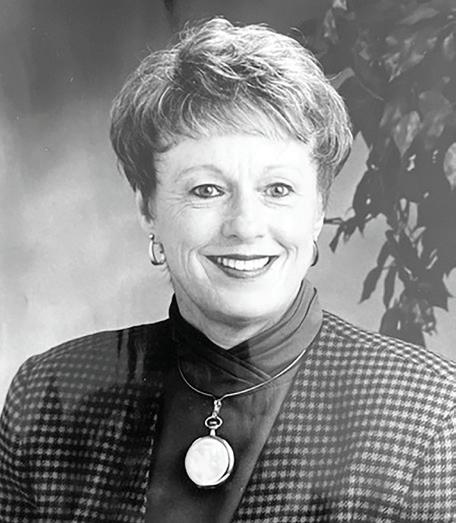
and the Outstanding Leadership and Service Award, President’s Commission on the Status of Women, MSU, 1979.
In addition to supporting their alma matter through financial gifts to the College of Education, scholarships, athletics and the Hunter Henry Center, the Correros established a lasting legacy through the John V. and Dr. Gloria C. Correro Annual Scholarship for full-time juniors and seniors in the College of Education. — Dec. 19, 2023
76 SPRING 2024
Forever MAROON Forever MAROON
Auburn. He was a coach and teacher at Anniston High School for four years before earning a Doctor of Ministries from New Orleans seminary. He was pastor of the First Baptist Church of Attalla for more than 12 years and was also on the board of directors at Baptist Memorial Hospital. He ultimately served as a pastor for 24 years and as a teacher in high school, community college and churches for 54 years. — Nov. 19, 2023
Ian A. Munn (retired faculty, administrator)
69, Starkville – A graduate of North Carolina State University, he worked as a forester for 10 years before earning a doctoral degree from the University of North Carolina. He then joined the Mississippi State faculty as a biology professor. He retired in 2021 as associate dean of the College of Forest Resources after 29 years at the university. –Oct. 20, 2023
Donald Newsom Downer (emeritus professor) 79, Starkville – He joined the MSU faculty in 1978 as an assistant professor in microbiology. He served as chairman of the Robert Holland Faculty Council and received the Burlington Northern Foundation Faculty Achievement Award for Excellence in Teaching. He was named head of the Department of Biological Sciences in 1993 and remained at that position until 2004 when he returned to teaching and advising, the two major loves of his academic career.
In 2005, he was one of the first two recipients of the Irvin Atly Jefcoat Excellence in Advising Award and went on to be among only 10 collegiate faculty members nationally to receive awards sponsored by the Natinal Academic Advising Association. He received the Friend of the MSU Student Association Donna Mayowski Award in 2008. Following his retirement, he was named Professor Emeritus of biological sciences and in 2015, he was selected as the second recipient of the Robert E. Wolverton Legacy Award in the College of Arts and Sciences.
Downer earned a bachelor’s in biology from the University of Mississippi in 1966 and a doctoral degree in microbiology from the University of Mississippi Medical Center in 1971. He completed a Postdoctoral Fellowship and Sessional Lectureship in the Department of Biochemistry at the University of Alberta in Edmonton, Canada where he was involved in virology research. — Dec. 21, 2023
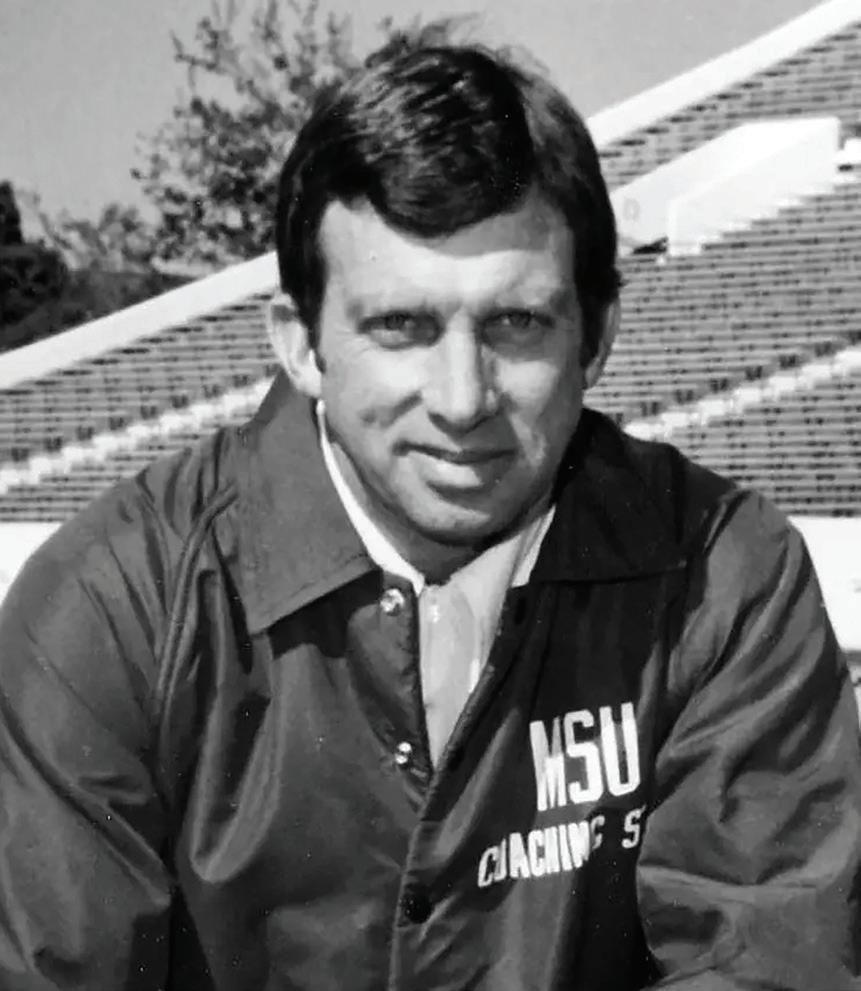
In Memory of Bob Tyler
Bob Tyler, who led the Bulldogs to two nine-win seasons and a Sun Bowl victory during his turn as head football coach from 1973-78, died April 28. He was 91.
A native of Water Valley, Tyler began his coaching career in 1957 at his hometown high school. Over the next 11 years, he coached across the state earning a 91-19-6 record in the high school ranks. He then moved to the college level as an assistant coach at Ole Miss and Alabama, under legendary coaches Johnny Vaught and Paul “Bear” Bryant, before coming to Mississippi State as offensive coordinator under Charles Shira, now namesake of MSU’s Shira Field House.
Tyler became MSU’s 27th head football coach in 1973 and would hold that position for six seasons. During the 1975 season, Tyler led the Bulldogs to a 9-3 record, including Southeastern
Conference wins against Georgia, LSU and Ole Miss, and earning a seasoncapping win against North Carolina in the Sun Bowl. That team ended the season ranked No. 17 in the nation, a second-best in program history at the time.
From 1976-79, Tyler served as Mississippi State’s director of athletics, a dual responsibility with his coaching role. He then moved to North Texas where he was football coach for one year before becoming that school’s athletic director. He returned to Mississippi as coach of Northwest Community College from 1984-85 and became head coach at Oxford High School in 1986 before finishing his coaching career at Millsaps College in 2000-02.
Tyler was inducted into the Mississippi State Hall of Fame in 2022 and the Mississippi Sports Hall of Fame in 2022. n
ALUMNUS.MSSTATE.EDU 77
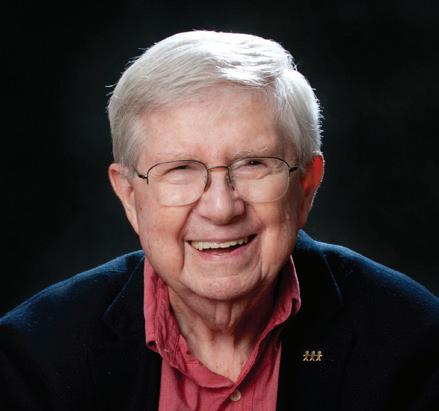
Remembering Robert “Bob” Wolverton Sr.
Robert “Bob” Wolverton, who instilled in generations of Bulldogs a love of the classical studies, died Dec. 15, 2023. He was 98.
A native of Indiana, he earned a Bachelor of Arts from Hanover College, a Master of Arts from the University of Michigan and a doctoral degree from the University of North Carolina. He also held an honorary Litt.D from Mount St. Joseph College in Ohio.
Wolverton joined the Bulldog family in 1977, beginning a 43-year career during which he would serve as vice president of academic affairs before stepping down to return to teaching and become head of the Department of Classical Languages and Literatures. He remained in the classroom until his eventual retirement in May 2020, helping expand the horizons of students and pique their interest in subjects they might otherwise have ignored.
Among his achievements at MSU, Wolverton is credited with helping lead the university’s decades-long effort to earn a Phi Beta Kappa chapter, which came to fruition in 2018. He was named a John Grisham Master Teacher, Humanities Teacher of the Year, and earned the College of Arts and Sciences’ Legacy Award, which recognizes distinguished service within the college. The Legacy Award, which now bears his name, was presented in the rotunda of the Old Main Academic Building, which was also dedicated to his honor.
Upon his retirement, Wolverton said he believes Classics remain relevant in society and that his love of the field and of his students are a big part of what has kept him teaching well into his 90s, noting that they “keep all of us pretty young.” n
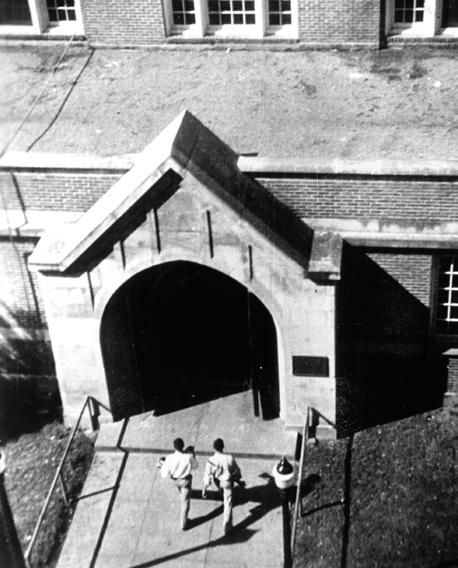
RESPONSES Winter 2023
My faded memory recalls: small bowls of green beans, field peas, corn, tomatoes, and the like, were $0.03-0.07 each in the 1940s. It was grown on the college farm and tasted like mother’s cooking. Tasty, inexpensive food made the transition from rural farm home to college life not only pleasant but possible.
I can't imagine a more beautiful venue for dining anywhere in the country than Perry Cafeteria. The architecture is breathtaking and in the years since graduating, I try to stick my head in and look down the length of the building anytime I’m on campus.
~ JAMES H. TAYLOR
(’51)
I worked in the cafeteria and grill from the summer of 1961, immediately upon graduation from Weir High School, until my graduation in June 1965. Our managers were Mr. Kelly and Mrs. Gregg. My first assignment was cleaning tables and carrying trays and dishes to the green conveyor belt running to the kitchen. Other jobs included serving food, working banquets, cutting pies and cakes, dipping ice cream, and running the cash register.
We experienced a fire in the cafeteria one year but managed to continue feeding students as best as we could. Big crowds, in addition to students, would show up on game days and Sundays after church. The whole operation was efficient, and we could feed large numbers of people quickly. One could get a vegetable plate for $0.35, a student plate of two vegetables, meat, bread and a drink for $0.50, and a slice of pie or cake for an additional $0.12. Student cafeteria workers received free meals and could eat anything that was served—except shrimp. My favorite was the vegetable plate with a slice of coconut meringue pie.
~ ROBERT D. “DONNIE” WORRELL (’65)
In 1957, after being awarded an out-of-state scholarship and job, I arrived at Mississippi State College five days after high school graduation in Memphis. I knew not a soul, and started classes and work in the Perry Cafeteria and Grill. I gave three years to working in the cafeteria and feeding half of Starkville on Sundays! My most remembered meal was the student plate with “mystery meat,” as we called it.
After service in the Army, I returned to MSU for graduate work in electrical engineering and spent two more years there. Today I am retired and helping provide scholarships to the food service workers at our retirement facility who continue to work here and attend one of two local colleges, and, I trust, helping and encouraging them on their journeys. I feel that Mississippi State prepared me well in both the classroom and dining room for my years ahead.
~
JERRY
OWENS (’61)
78 WINTER 2023 Forever MAROON
Back STORY
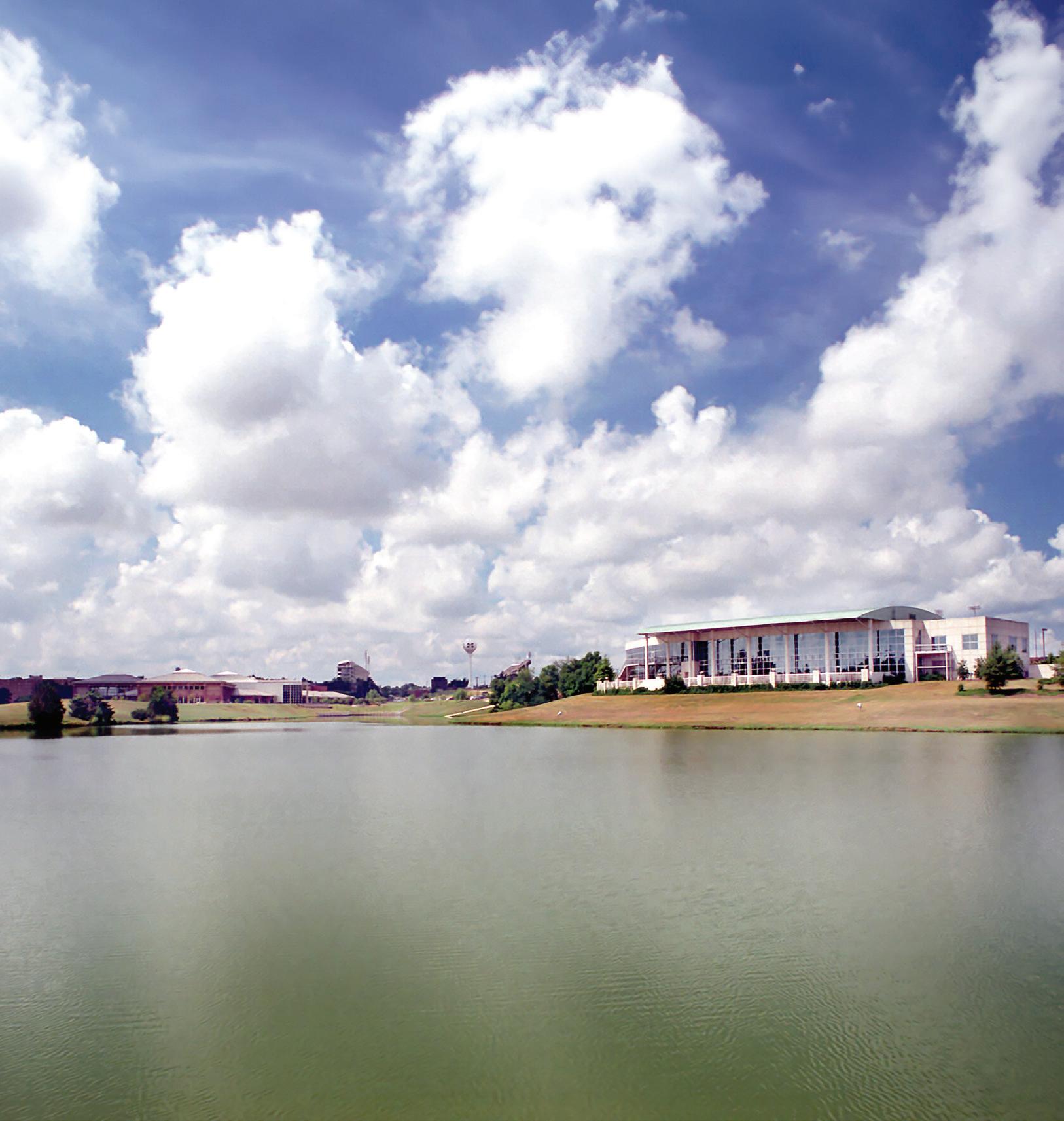
This 2003 photo from the University Archives shows the Bryan Building behind a picturesque Chadwick Lake. As the crown jewel of the university’s athletic expansion project in the 1990s, the $5 million facility was largely funded by the Bryan family of West Point and opened its doors in 1995 as the home of Bulldog athletics’ administration. A pre-expansion Davis Wade Stadium can be seen in the background, along with other notable campus structures. Have memories of the MSU athletics corridor or reminiscences of 1990s Bulldog sports? Send your story to alumnus.msstate.edu. Please include your name, major(s) and graduation year(s) as some responses may be published in a future issue.
ALUMNUS.MSSTATE.EDU 79

No one sells North Mississippi like TM Realtors. From homes to commercial property and land, TM has been helping people find and achieve their dreams for more than 40 years. Our more than 60 agents throughout North Mississippi are your friends and neighbors, and whether you’re looking to buy or sell, TM Realtors is ready to help you reach your goals. Trust our experience. Benefit from our success. Call TM Realtors today. www.TMHomes.com Tupelo 210 East Main Street 662.842.3844 Oxford 2014 University Ave. 662.234.5344 Starkville 550 Russell Street at the Mill 662.765.3733
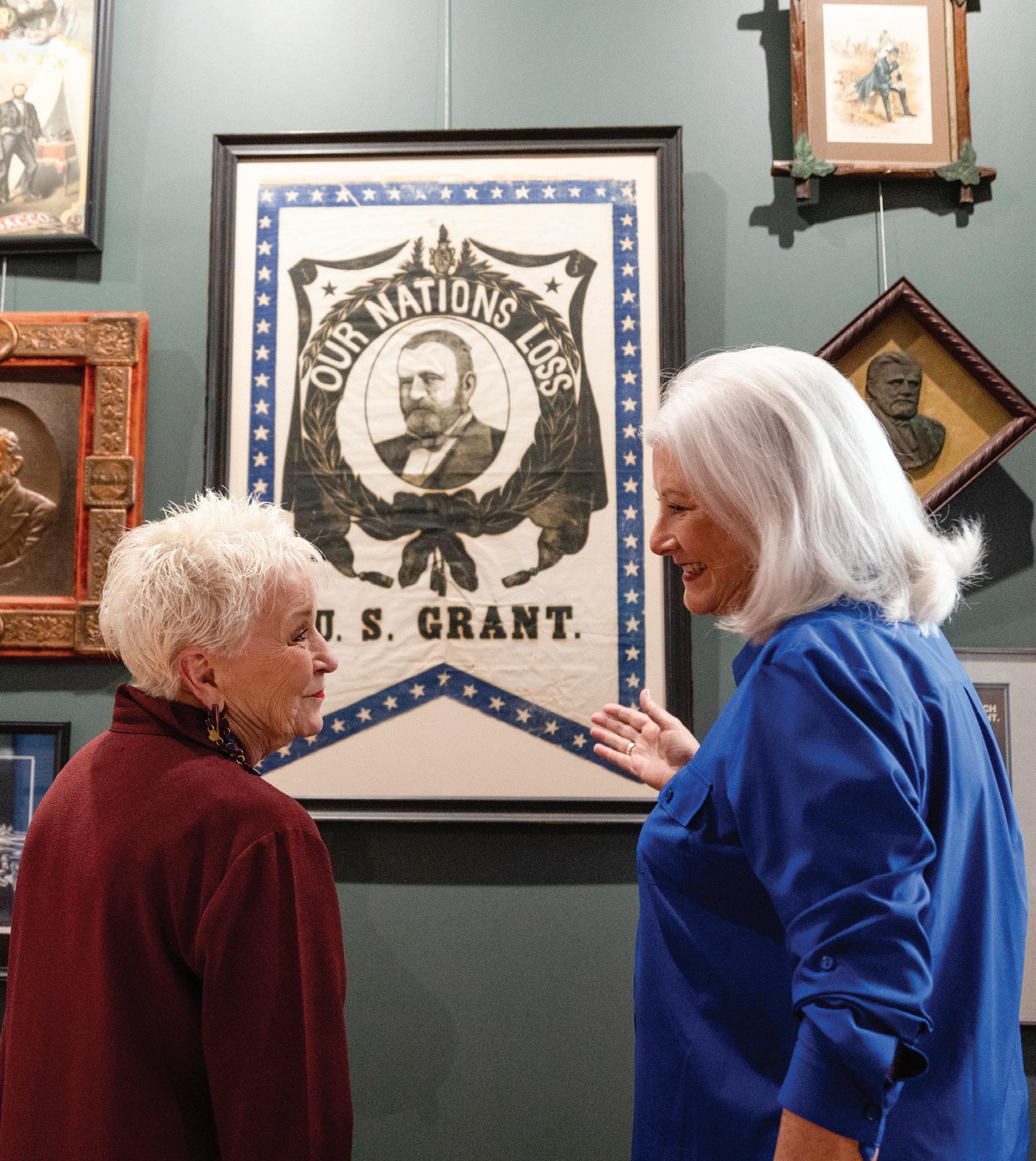

Have a weekend for the record books in Starkville. Get a new perspective on the past at the Ulysses S. Grant Presidential Library. Revel in the moment at the most historic stadium in the SEC. Or write your own story starkville.org History 101
P.O. Box AA
One Hunter Henry Boulevard Mississippi State, MS 39762-5526 www.alumni.msstate.edu
ELECTRONIC SERVICE REQUESTED
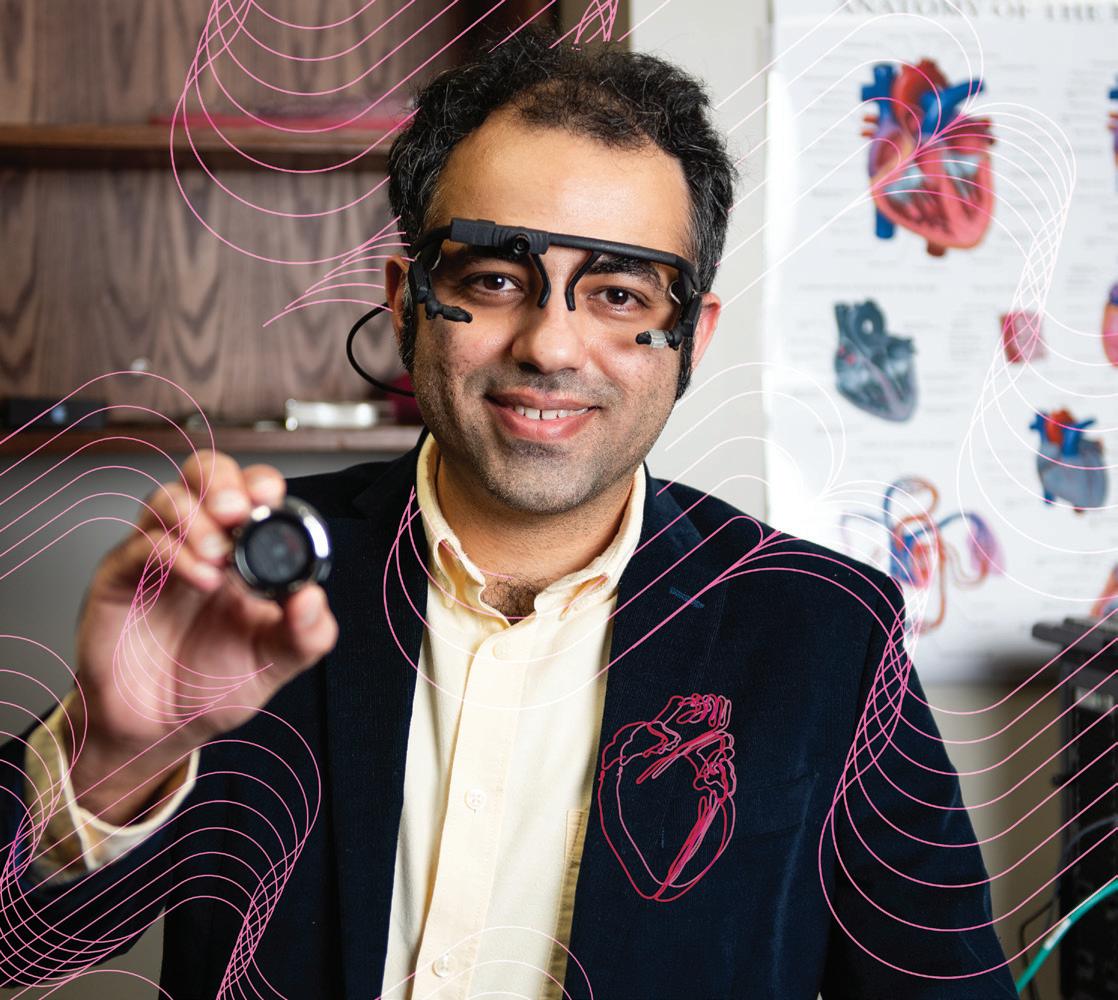
A Mississippi State researcher is developing ways to use noninvasive screening technology and the body’s vibrations to make cardiovascular health care more accessible to rural populations. P. 19
VIBE CHECK
NON-PROFIT ORG US POSTAGE PAID MISSISSIPPI STATE 39762 PERMIT NO. 81




















































































































































































































































